
The Project Gutenberg EBook of Golden Grain, by Various
This eBook is for the use of anyone anywhere in the United States and most
other parts of the world at no cost and with almost no restrictions
whatsoever. You may copy it, give it away or re-use it under the terms of
the Project Gutenberg License included with this eBook or online at
www.gutenberg.org. If you are not located in the United States, you'll have
to check the laws of the country where you are located before using this ebook.
Title: Golden Grain
Garnered from the World's Great Harvest-field of Knowledge
Comprising Selections from the Ablest Modern Writers of
Prose, Poetry, and Legendary Lore
Author: Various
Editor: Joshua C. Chilton
Release Date: December 1, 2014 [EBook #47507]
Language: English
Character set encoding: ISO-8859-1
*** START OF THIS PROJECT GUTENBERG EBOOK GOLDEN GRAIN ***
Produced by Juliet Sutherland, Brian Wilsden and the Online
Distributed Proofreading Team at http://www.pgdp.net

Every effort has been made to replicate this text as faithfully as possible. Obvious typographical errors have been corrected.
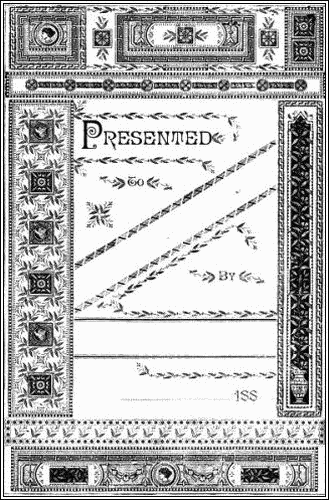
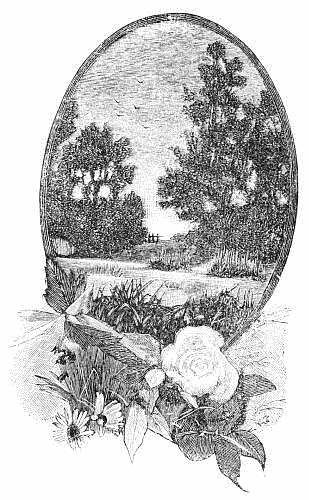
COPYRIGHTED
1884.
J.C. CHILTON & CO.
PRESS OF
RAYNOR & TAYLOR,
75 BATES STREET.
DETROIT.
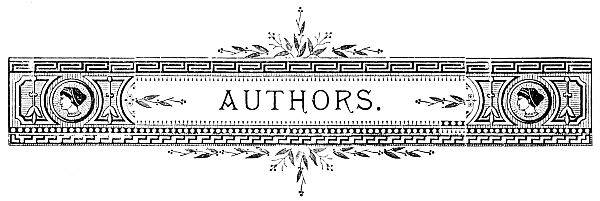


It has been the constant endeavor of the publishers of GOLDEN GRAIN, to produce a book in every respect worthy to be classed among the very best works offered to an intelligent public.
Many of the selections are protected by copyright and for the use of such, special thanks are due to the following publishers, for the courtesies extended.
To Messrs. Houghton, Mifflin & Co., for selections from Longfellow, Whittier, and Miss Cary; Messrs. D. Lothrop & Co., for use of selections from Mrs. Piatt, Paul Hayne, and Mary D. Brine; and to those authors who have furnished special contributions, we are under many obligations.
The volume is sent forth with the belief that such a work will meet with appreciative readers all over the land.


The best introduction to a book is a glance at its pages, an examination of its illustrations and the names of its authors.
In all the essentials which go to make up a work which shall meet with popular favor and a wide range of readers, the Editor and Publishers confidently believe that GOLDEN GRAIN presents a high standard of excellence.
That all tastes might be suited, the literature of all modern nations has been searched and selections of the highest standard made therefrom.
Golden Grain only has been garnered. The great fields of knowledge have been visited, and none but the choicest and ripest kernels have been chosen.
Young Folks must, and will, have something to read—something to feed the mind as well as the body. It therefore becomes a very important duty of parents to make choice of such books as are pure in tone and elevating in sentiment; and it follows also, as night follows day, that if parents fail or neglect this duty the young folks themselves will find something to read, nor will they be so careful in their selections.
In GOLDEN GRAIN will be found a work in every respect worthy of a place in the Family Circle. Its pages lend inspiration to fight life's battles nobly. Those who go out from a home with noble impulses, pure motives, and true hearts will bear the burden of Earth's cares, duties and disappointments with patience and resignation, having
"A heart to resolve, a head to contrive and a hand to execute."


| Harvest Song | John G. Whittier | 13 |
| Minute Men of Liberty | George William Curtis | 14 |
| Kind Hearts | 16 | |
| The Children's Hour | Henry W. Longfellow | 17 |
| The Brook | Alfred Tennyson | 21 |
| Eulogy on Garfield | James G. Blaine | 23 |
| Gems from James A. Garfield | 24 | |
| At the Fireside | John D. Long | 25 |
| The Frost Spirit | John G. Whittier | 26 |
| The Arrow and the Song | Henry W. Longfellow | 29 |
| The Bridge | Henry W. Longfellow | 31 |
| The Responsive Chord | J. William Jones | 34 |
| Grandma's Angel | Sidney Dayre | 35 |
| Cold, Bitter Cold | Hans Christian Andersen | 37 |
| Nobody's Child | Phila H. Case | 42 |
| Snow-White and Rosy-Red | Friederich Grimm | 45 |
| The Song of the Thrush[Pg viii] | Lucy Larcom | 58 |
| The Fox and the Geese | 60 | |
| Count That Day Lost | 61 | |
| The Children in the Moon | 62 | |
| A Night in a Norwegian Forest | P. Chr. Asbjornsen | 65 |
| Two Little Kittens | 88 | |
| Labor of Authorship | 90 | |
| She Was Somebody's Mother | 92 | |
| Dot Lambs What Mary Haf Got | 94 | |
| The Mills of God | Henry W. Longfellow | 95 |
| Bob Cratchit's Christmas | Charles Dickens | 96 |
| Full Many a Gem | Thomas Gray | 103 |
| A Snug Little Island | 104 | |
| Don't Crowd | Charles Dickens | 111 |
| The Boys | Oliver Wendell Holmes | 112 |
| Quarrel Between | ||
| Mountain and Squirrel | Ralph Waldo Emerson | 114 |
| For Fathers Sake | 116 | |
| Backbone | 130 | |
| A Dog Sheep-Stealer | 132 | |
| The Best Answer to Calumny | George Washington | 133 |
| If We Knew | Phœbe Cary | 134 |
| Holiday Song | D. Bethune Duffield | 137 |
| A Queer Duckling | Hans Christian Andersen | 138 |
| Truth[Pg ix] | James Russell Lowell | 156 |
| The Clearin' | 157 | |
| Prince Willful's Three Lessons | J. T. Choate | 161 |
| Miss Edith Helps Things Along | F. Bret Harte | 170 |
| The Giant Who Had No Heart | P. Chr. Asbjornsen | 173 |
| Beauty Everywhere | W. L. Smith | 185 |
| Bread on the Waters | George L. Catlin | 186 |
| The Use of Books | 189 | |
| The Spring | 190 | |
| Gem from "Lalla Rookh" | Thomas Moore | 190 |
| How Bayard Shot the Bear | J. T. Choate | 191 |
| How We Live | Phillip James Bailey | 195 |
| New Year's Eve | Alfred Tennyson | 197 |
| East of the Sun and | ||
| West of the Moon | P. Chr. Asbjornsen | 199 |
| Do; Not Dream | Charles Kingsley | 216 |
| The Baby in the Home | George MacDonald | 217 |
| Saturday Afternoon | N. P. Willis | 220 |
| The King of the Night | Barry Cornwall | 222 |
| A 'Rithmetic Lesson | Phillip James Bailey | 225 |
| Press on | 227 | |
| Fairies or Fireflies | Mrs. S. M. B. Piatt | 228 |
| Speak No Ill | 229 | |
| The Ambitious Twig | Lucie Cobbe | 230 |
| Universal Law | Samuel Rogers | 233 [Pg x] |
| The Turk and the Fiddler | Friederich Grimm | 234 |
| Sober Second Thought | Martin Van Buren | 241 |
| Little Lottie's Grievance | Paul H. Hayne | 242 |
| There is no Death | Lord Lytton | 245 |
| The Siege of Troy | J. C. Chilton | 248 |
| Think for Thyself | Wilson | 251 |
| George Nidiver | F. Brete Hart | 252 |
| March and the Boys | Mary D. Brine | 255 |
| The Crusades | J. C. Chilton | 259 |
| Pride of Native Land | Sir Walter Scott | 262 |
| The Children's Crusade | J. C. Chilton | 263 |
| The Soldier's Reprieve | Rose Hartwick Thorpe | 265 |
| The Maid of Orleans | J. C. Chilton | 269 |
| 'Tis Only Noble to be Good | Alfred Tennyson | 272 |
| A Bird's Story | M. E. B. | 274 |
| The Wolf and the | ||
| Seven Kids | Freiderich Grimm | 276 |
| There is a Day of Sunny Rest | William Cullen Bryant | 280 |
| Birdie and Baby | Alfred Tennyson | 281 |
| The Influence of Books | Edwin P. Whipple | 282 |
| Rock Me to Sleep | Elizabeth Akers | 283 |
| Heroism | Ralph Waldo Emerson | 285 |
| Politeness | 285 | |
| Measuring the Baby | Emma Alice Brown | 286 [Pg xi] |
| Pearl of Thought | Johann Chr. F. Schiller | 288 |
| The Noble Roman | John G. Saxe | 288 |
| The Engineer's Story | 289 | |
| As He Saw Himself | Sir Isaac Newton | 293 |
| The Random Shaft | Sir Walter Scott | 293 |
| Two Brave Boys | Pritt's "Border Life" | 294 |
| Undoubted Evidence | Rev. Laurence Stern | 298 |
| The Flight of Years | George D. Prentice | 299 |
| Airy Nothings | William Shakespeare | 304 |

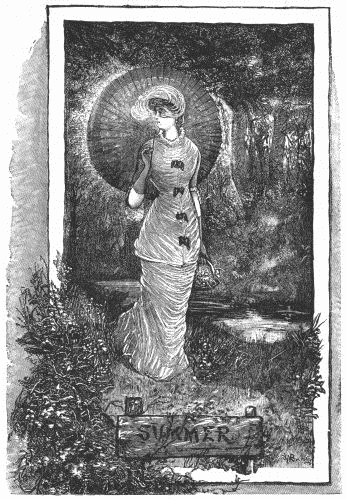
"SUMMER."
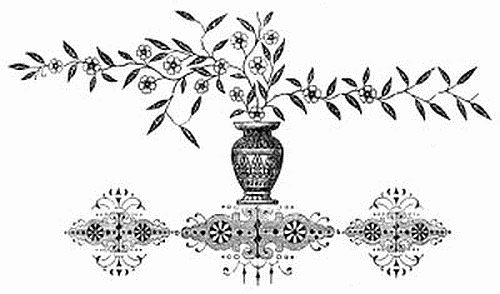
JOHN G. WHITTIER.

O Painter of the fruits and flowers!
We thank Thee for thy wise design
Whereby these human hands of ours
In Nature's garden work with thine.
And thanks that from our daily need
The joy of simple faith is born;
That he who smites the summer weed,
May trust Thee for the autumn corn.
Give fools their gold, and knaves their power;
Let fortune's bubbles rise and fall;
Who sows a field, or trains a flower,
Or plants a tree, is more than all.
For he who blesses most is blest;
[Pg 14]
And God and man shall own his worth,
Who toils to leave as his bequest
An added beauty to the earth.
And, soon or late, to all that sow,
The time of harvest shall be given;
The flowers shall bloom, the fruit shall grow,
If not on earth, at last in heaven!

Delivered on the one-hundredth anniversary of the battle of
Lexington, Mass., by GEORGE WILLIAM CURTIS, April 19, 1875.
After reviewing the leading incidents of the battle of Lexington, in 1775, and the subsequent victories of Washington; and closing with a brilliant picture of the final triumph of the Colonial troops, Mr. Curtis said:
"Not such are our enemies to-day. They do not come proudly stepping to the drum-beat, with bayonets flashing in the morning sun. But wherever party spirit shall strain the ancient guarantees of Freedom, or bigotry and ignorance shall lay their fatal hands upon education, or the ignorance of caste shall strike at equal rights, or corruption shall poison the very springs of national life, there, Minutemen of Liberty are your Lexington-Green and Concord-Bridge, and as you love your country and your kind, and would have your children rise up and call you blessed, spare not the enemy! Over the hills, out of the earth, down from the clouds pour in resistless might.
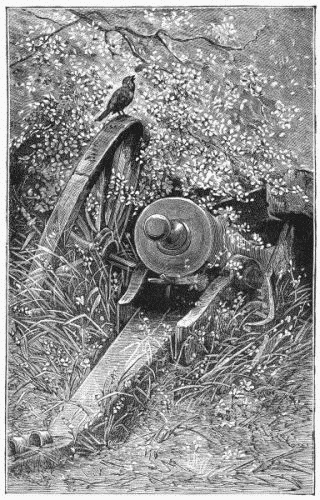
"NOT SUCH ARE OUR ENEMIES TO-DAY."
Fire! fire from every rock and tree, from every door and window, from hearthstone and chamber; hang upon his flank and rear from noon to sunset, and so through a land blazing with holy indignation, hurl the hordes of ignorance, corruption and injustice back, back into utter defeat and ruin!"
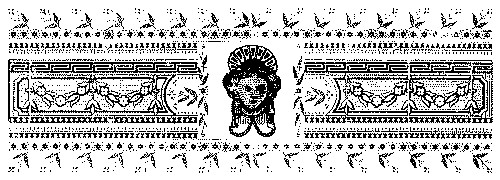
HENRY W. LONGFELLOW.

Between the dark and the daylight,
When night is beginning to lower,
Comes a pause in the day's occupations,
That is known as the children's hour.
I hear in the chamber above me
The patter of little feet,
The sound of a door that is opened,
And voices soft and sweet.
From my study I see in the lamplight,
Descending the broad hall stair,
Grave Alice and laughing Allegra,
And Edith with golden hair.
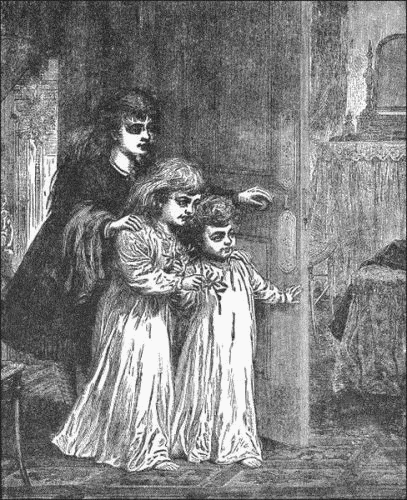
"BLUE-EYED BANDITTI."
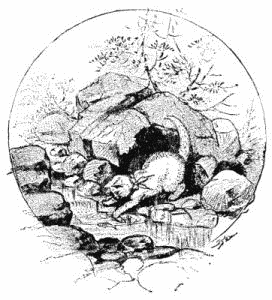
ALFRED TENNYSON.
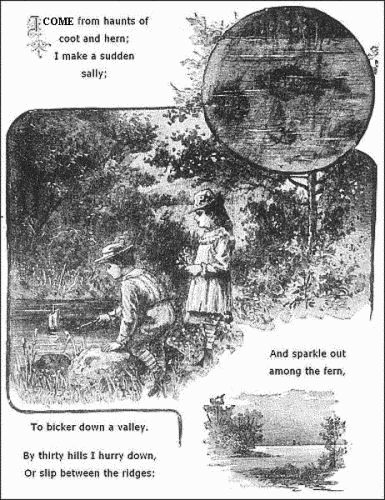


Surely if happiness can ever come from the honors or triumphs of this world, on that quiet July morning, James A. Garfield may well have been a happy man. No foreboding of evil haunted him; no slightest premonition of danger clouded his sky. His terrible fate was upon him in an instant. One moment he stood erect, strong, confident, in the years stretching peacefully out before him. The next he lay wounded, bleeding, helpless, doomed to weary weeks of torture, to silence, and the grave.
Great in life, he was surpassingly great in death. For no cause, in the very frenzy of wantonness and wickedness, by the red hand of murder, he was thrust from the full tide of this world's interest, from its hopes, its aspirations, its victories, into the visible presence of death—and he did not quail. Not alone for the one short moment in which, stunned and dazed, he could give up life, hardly aware of its relinquishment, but through days of deadly languor, through weeks of agony, that [Pg 24] was not less agony because silently borne, with clear sight and calm courage, he looked into his open grave. What blight and ruin met his anguished eyes, whose lips may tell! Before him desolation and great darkness! And his soul was not shaken.
Masterful in his mortal weakness, he became the center of a nation's love, enshrined in the prayers of a world. But all the love and all the sympathy could not share with him his suffering. He trod the wine-press alone. With unfaltering front he faced death. With unfailing tenderness he took leave of life. Above the demoniac hiss of the assassin's bullet he heard the voice of God. With simple resignation he bowed to the divine decree.
If there be one thing upon this broad earth that mankind love and admire, better than another, it is a brave man—it is a man who dares look the Devil in the face and tell him he is a Devil.
Be fit for more than the thing you are now doing.
Things don't turn up in this world till somebody turns them up.
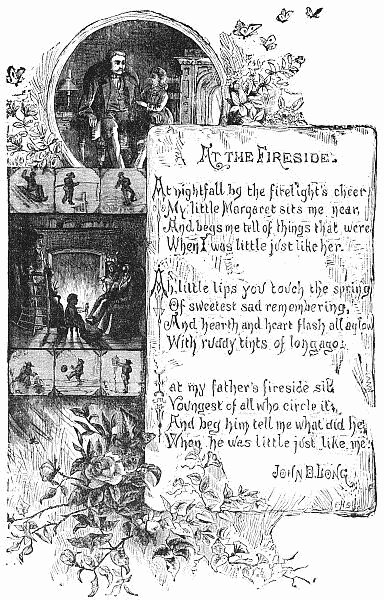
JOHN G. WHITTIER.
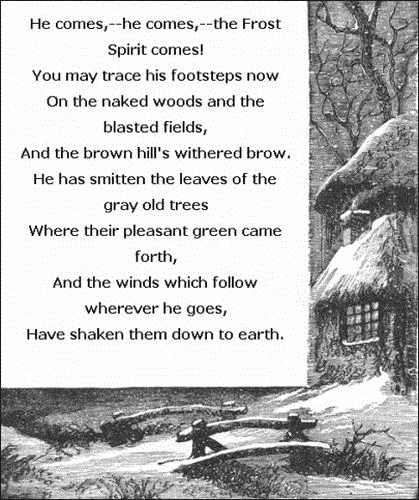
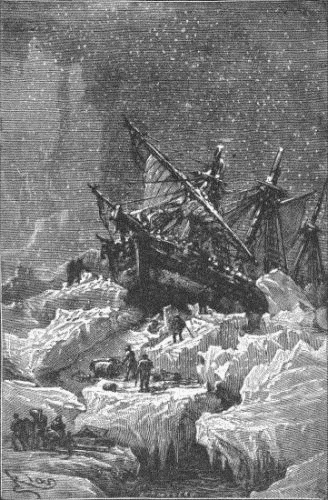
"THE FISHERMAN'S SAIL IS STIFF WITH ICE."
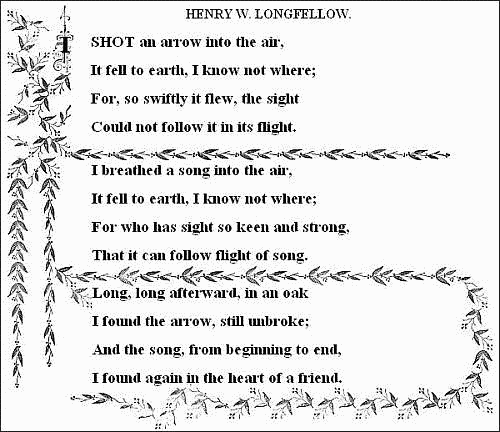
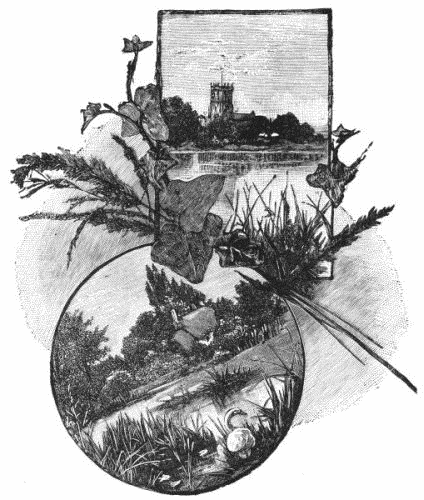

HENRY W. LONGFELLOW.

I stood on the bridge at midnight,
As the clocks were striking the hour,
And the moon rose o'er the city,
Behind the dark church-tower.
I saw her bright reflection
In the waters under me,
Like a golden goblet falling
And sinking into the sea.
And far in the hazy distance
Of that lovely night in June,
The blaze of the flaming furnace
Gleamed redder than the moon.
Among the long, black rafters
The wavering shadows lay,
And the current that came from the ocean
Seemed to lift and bear them away;
As, sweeping and eddying through them.
[Pg 32]
Rose the belated tide,
And, streaming into the moonlight,
The sea-weed floated wide.
And like those waters rushing
Among the wooden piers,
A flood of thoughts came o'er me,
That filled my eyes with tears.
How often; Oh! how often,
In the days that had gone by,
I had stood on that bridge at midnight,
And gazed on that wave and sky!
How often; Oh! how often,
I had wished that the ebbing tide
Would bear me away on its bosom
O'er the ocean wild and wide!
For my heart was hot and restless,
And my life was full of care,
And the burden laid upon me,
Seemed greater than I could bear.
But now it has fallen upon me,
It is buried in the sea;
And only the sorrow of others
Throws its shadow over me.
Yet whenever I cross the river
[Pg 33]
On its bridge with wooden piers,
Like the odor of brine from the ocean,
Comes the thought of other years.
And I think how many thousands
Of care-encumbered men,
Each bearing his burden of sorrow,
Have crossed the bridge since then.
I see the long procession
Still passing to and fro,
The young heart hot and restless,
And the old subdued and slow!
And forever and forever,
As long as the river flows,
As long as the heart has passions,
As long as life has woes;
The moon and its broken reflection
And its shadows shall appear,
As the symbol of love in Heaven,
And its wavering image here.


J. WILLIAM JONES.

One evening in 1863, when the Confederate and Union armies were both near Spottsylvania, two bands chanced, at the same hour, to begin to play on either bank of the river.
The soldiers of both armies gathered to listen, and soon the bands began to answer each other. First the Federal band would play "Hail Columbia" or some other national air, and at its close the "boys in blue" would cheer most lustily. Then the Confederate band would respond with "Dixie" or "Bonnie Blue Flag," and the "boys in gray" would yell their approval. But presently one of the bands struck up, in sweet and sad tones, the grand old tune "Home, Sweet Home." It was caught up by the other band, and at its close there went up a shout from both sides of the river—cheer followed cheer and the hills re-echoed the glad acclaim. A chord had been struck to which all hearts could beat in unison; and, for the time being, their enmity was forgotten.


Mamma said; 'Little one, go and see
If Grandmother's ready to come to tea.'
I knew I must'nt disturb her, so
I stepped as gently along, tiptoe,
And stood a moment to take a peep—
And there was Grandmother, fast asleep.
"I knew it was time for her to wake;
I thought I'd give her a little shake,
Or tap at her door, or softly call;
But I had'nt the heart for that at all—
She looked so sweet and so quiet there,
Lying back in her high arm-chair,
With her dear white hair and a little smile,
That means she's loving you all the while.
"I did'nt make a speck of a noise;
[Pg 36]
I knew she was dreaming of little boys
And girls who lived with her, long ago,
And then went to Heaven—she told me so.
"I went up close, and I did'nt speak
One word, but I gave her on her cheek
The softest bit of a little kiss,
Just in a whisper, and then said this;
'Grandmother dear it's time for tea.'
"She opened her eyes and looked at me,
And said: 'Why, Pet, I have just now dreamed
Of a little angel who came, and seemed
To kiss me lovingly on my face.'
She pointed right at the very place.
"I never told her 'twas only me;
I took her hand and we went to tea."
Sydney Dayre in St. Nicholas.
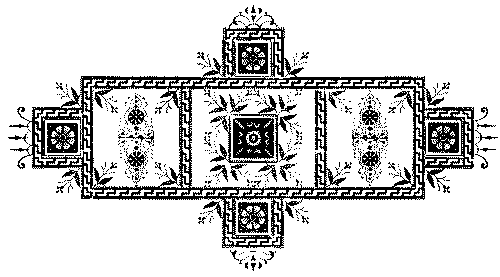

It was dreadfully cold, it snowed, and was getting quite dark, for it was evening—yes, the last evening of the year.
Amid the cold and the darkness, a little girl, with bare head and naked feet, was roaming through the streets. It is true she had on a pair of slippers, when she left home, but that was not of much use, for they were very large slippers; so large, indeed, that they had hitherto been used by her mother; besides, the little creature lost them as she hurried across the street, to avoid two carriages, that were driving at a fearful rate. One of the slippers was not to be found, and the other was pounced upon by a boy, who ran away with it, saying that it would [Pg 38] serve for a cradle when he should have children of his own.
So the little girl went along, with her little bare feet, that were red and blue with cold. She carried a number of matches in an old apron, and she held a bundle of them in her hand. Nobody had bought anything of her the whole livelong day, and nobody had even given her a penny.
She crept along, shivering with cold and hunger, a perfect picture of misery—poor little thing!
The snowflakes covered her long, flaxen hair, which hung in pretty curls round her throat; but she heeded them not.
Lights were streaming from all the windows, and there was a savory smell of roast goose; for it was St. Sylvester's evening.
She now sat down, cowering in a corner formed by two houses, one of which projected beyond the other. She had drawn her little feet under her, but she felt colder than ever; yet she dared not return home, for she had not sold a match, and could not bring back a penny.
Her father would certainly beat her; and it was cold enough at home, besides,—for they had only the roof above them, and the wind came howling through it, though the largest holes had been stopped with [Pg 39] straw and rags.
Her little hands were nearly frozen with cold.
Alas! a single match might do her some good, if she might only draw one out of the bundle, and rub it against the wall, and warm her fingers.
So at last she drew one out. Whist! how it shed sparks, and how it burned! It gave out a warm, bright flame, like a little candle, as she held her hands over it,—truly, it was a wonderful little light! It really seemed to the little girl as if she were sitting before a large iron stove, with polished brass feet, and brass shovel and tongs. The fire burned so blessedly, and warmed so nicely, that the little creature stretched out her feet to warm them likewise, when lo! the flame expired, the stove vanished, and left nothing but the little half-burned match in her hand.
She rubbed another match against the wall. It gave a light, and where it shown upon the wall, the latter became as transparent as a veil, and she could see into the room.
A snow-white table-cloth was spread upon the table, on which stood a splendid china dinner service, while a roast goose, stuffed with apples and prunes, sent forth the most savory fumes. And what was more [Pg 40] delightful still, the goose jumped down from the dish, and waddled along the ground with a knife and fork in its breast, up to the poor girl.
The match then went out, and nothing remained but the thick, damp wall.
She lit another match.
She now sat under the most magnificent Christmas tree, that was larger, and more superbly decked, than even the one she had seen through the glass door at the rich merchant's. A thousand tapers burned on its green branches, and gay pictures, such as one sees on targets, seemed to be looking down upon her. The match then went out.
The Christmas lights kept rising higher and higher. They now looked like stars in the sky. One of them fell down, and left a long streak of fire.
"Somebody is now dying," thought the little girl,—for her old grandmother, the only person who had ever loved her, and who was now dead, had told her, that when a star falls, it is a sign that a soul is going up to heaven.
She again rubbed a match upon the wall, and it was again light all round; and in the brightness stood her old grandmother, clear and shining like a spirit, yet looking so mild and loving.
"Grandmother," cried the little one, "oh! take me with you! I know you will go away when the match goes out,—you will vanish like the warm stove and the delicious roast goose, and the fine, large Christmas tree!"
And she made haste to rub the whole bundle of matches, for she wished to hold her grandmother fast. And the matches gave a light that was brighter than noonday. Her grandmother had never appeared so beautiful nor so large. She took the little girl in her arms, and both flew upwards, all radiant and joyful, far—far above mortal ken—where there was neither cold, nor hunger, nor care to be found; for it was to the land of the blessed that they had flown.
But, in the cold dawn, the poor girl might be seen leaning against the wall, with red cheeks and smiling mouth; she had been frozen on the last night of the old year.
The new year's sun shone upon the little corpse.
The child sat in the stiffness of death, still holding the matches, one bundle of which was burned.
People said: "She tried to warm herself."
Nobody dreamed of the fine things she had seen, nor in what splendor she had entered upon the joys of the new year, together with her grandmother.
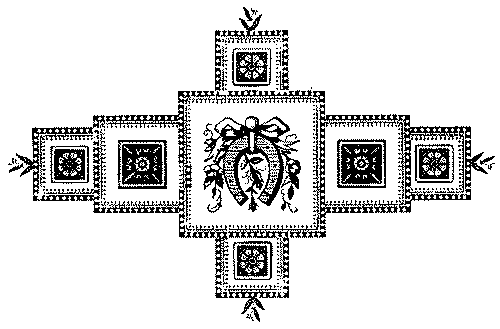
PHILA H. CASE.

Alone, in the dreary, pitiless street,
With my torn old dress and bare, cold feet,
All day I've wandered to and fro,
Hungry and shivering and nowhere to go;
The night's coming on in darkness and dread,
And the chill sleet beating upon my bare head;
Oh! why does the wind blow upon me so wild?
Is it because I'm nobody's child?
Just over the way there's a flood of light,
And warmth and beauty, and all things bright;
Beautiful children, in robes so fair,
[Pg 43]
Are caroling songs in rapture there.
I wonder if they, in their blissful glee,
Would pity a poor little beggar like me;
Wandering alone in the merciless street,
Naked and shivering and nothing to eat.
Oh! what shall I do when the night comes down,
In its terrible darkness, all over the town?
Shall I lay me down 'neath the angry sky,
On the cold, hard pavements, alone, to die?
When the beautiful children their prayers have said,
And mamas have tucked them up snugly in bed.
No dear mother ever upon me smiled—
Why is it, I wonder, that I'm nobody's child.
No father, no mother, no sister, not one
In all the world loves me; e'en the little dogs run,
When I wander too near them; 'tis wondrous to see,
How everything shrinks from a beggar like me!
Perhaps 'tis a dream; but sometimes, when I lie
Gazing far up in the dark, blue sky,
[Pg 44]
Watching for hours some large, bright star,
I fancy the beautiful gates are ajar.
And a host of white-robed, nameless things,
Come fluttering o'er me in gilded wings;
A hand that is strangely soft and fair,
Caresses gently my tangled hair,
And a voice like the carol of some wild bird,
The sweetest voice that was ever heard—
Calls me many a dear pet name,
'Till my heart and spirits are all aflame;
And tells me of such unbounded love,
And bids me come up to their home above,
And then, with such pitiful, sad surprise,
They look at me with their sweet blue eyes,
And it seems to me, out of the dreary night,
I am going up to the world of light,
And away from the hunger and storms so wild—
I am sure I shall then be somebody's child.

GRIMM.
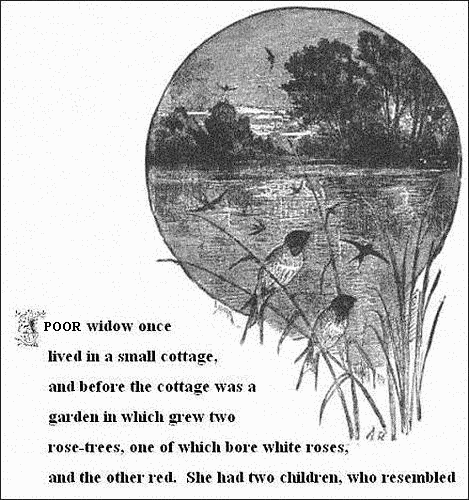
the rose trees—one was named Snow-white, and the other Rosy-red, and they were as pious, kind, and industrious as any two children ever were. Snow-white was quieter and more gentle than her sister, who preferred skipping over the fields, seeking flowers, and catching summer birds; while Snow-white remained at home with her mother, either assisting her in her work, or reading aloud to her when that was done. The two children had the greatest love for each other; they were always seen hand-in-hand, and if Snow-white said to her sister, "We will never separate!" the other replied, "Not while we live!" the mother adding, "what one has, let her always share with the other." They often ran together in the woods, and gathered ripe berries; but not a single animal would have done them an injury—on the contrary, they all felt the greatest regard for the young creatures: the hare came and ate parsley from their hands, the deer grazed by their side, the stag sprang past them unconcerned, the birds likewise stirred not from the branch, but sang in the most perfect security. No mischance befell them; if benighted in the wood, they laid themselves in the moss to repose, and slept until the morning, and their mother was satisfied they were safe, and felt no fear on their account. Once, when they had[Pg 47] passed the night in the wood, and the bright sunrise awoke them, they saw a beautiful child, in a snow-white dress, which shone like diamonds, sitting near the place where they had rested. She stood up when they opened their eyes, and looked kindly at them, but said not a word, and passed from their sight into the wood. When the children looked around, they saw that they had slept on the edge of a high cliff, and would certainly have fallen over, if they had proceeded two steps farther in the darkness. Their mother told them the beautiful child must have been the angel who watches over good children. Snow-white and Rosy-red kept their mother's cottage so clean, that it was a pleasure only to look in. In the summer Rosy-red looked after the house, and placed by her mother's bed every morning, before she awoke, a bouquet, in which was a rose from each of the rose trees. In the winter Snow-white lighted the fire, and put the kettle on, after scouring it, so that it resembled gold in brightness. In the evening, when the snowflakes fell, her mother bade her bolt the door, and then seating themselves by the hearth, the good widow read aloud to them from a large book, while the girls spun; near them lay a lamb, and behind was a white pigeon upon a perch, with its head tucked under its wing.
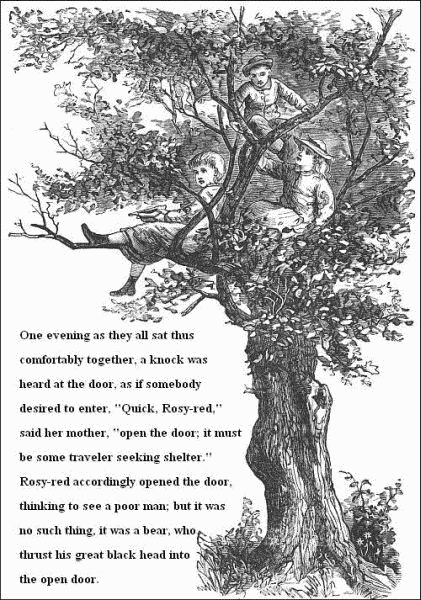
Rosy-red uttered a cry and sprang back, the lamb bleated, the dove fluttered her wings, and Snow-white hid herself behind her mother's bed. The bear began to speak, and said, "Fear not, I will do you no harm; I am half frozen, and only wish to warm myself a little at your fire." "Poor bear," returned the mother, "come and lie by the fire, only take care that your hair does not burn." Then calling Snow-white and Rosy-red, she bade them come out, "The bear," she said, "was kind, and would do them no harm." So they obeyed, and by degrees the lamb and the dove approached also, and had no fear. "Children," said the bear, "knock a little of the snow out of my coat." So they got the broom, and swept the bear's coat quite clean. After which, he stretched himself out before the fire and amused himself with a little growl, just to prove he was happy and comfortable. Before long, they were all quite good friends, and the children began to sport with their unexpected guest, tugging at his thick fur, or putting their feet on his back, or rolling him over and over. Then they took a thin hazel twig, with which they struck his thick fur, and when he growled, they laughed. The bear very kindly allowed them to amuse themselves thus, only sometimes, when it [Pg 50] proceeded a little too far, he called out, "Children, children, leave me an inch of life.
"Snow-white and Rosy-red,
Strike not your lover dead."
When night came, and all prepared to go to bed, the widow said to the bear, "You can stay here, and lie on the hearth if you like, you will then be sheltered from the cold and the bad weather." The offer was accepted, but in the morning, as soon as day broke in the east, the two children let him out, and he trotted over the snow back into the wood. From this time the bear came every evening at the same hour, laid himself by the fire, and permitted the children to amuse themselves with him, so that they became quite attached to their strange playfellow, and the door was never bolted of an evening, until he had made his appearance.
When spring came, and everything around began to look green and bright, the bear said one morning to Snow-white, "I must now leave you, and I shall not be able to return for the whole summer." "Where are you then going, dear bear?" inquired Snow-white. "I must go to the woods, to protect my treasure from the bad dwarfs; in the winter, when the earth is hard frozen, they are obliged to stay underground, and cannot work [Pg 51] their way through; but now the sun has thawed and warmed the earth, they find their way to the surface, and are ever on the watch for what they can steal, and whatever touches their hands, or reaches their caves, rarely, if ever, sees daylight again." Snow-white was very sorrowful when she took leave of the good-natured bear, and unbolted the door, that he might depart; but in passing out, he caught on a hook in the door-post, and a little of his fur being torn, Snow-white thought she saw something shine like gold through the rent; but he passed out so rapidly, that she did not feel sure what it was, and he was soon lost among the trees.
One day the mother sent her children into the wood to collect sticks; they found a large tree lying on the ground, which had been felled, and among the roots they saw something jumping and hopping, which they could not at all understand, it being sometimes hidden among the grass. When they drew nearer, they saw it was a dwarf, with an old withered face and a snow-white beard a yard long. The beard was fastened in a split in the trunk of the tree, and the little fellow was springing backwards and forwards like a dog at the end of a cord, but could not succeed in getting free. He stared at the children with his fiery red [Pg 52] eyes, and cried out, "What are you standing there for? Can you not come and see if you can help me?" "What have you been doing, little man?" asked Rosy-red. "Silly inquisitive goose:" answered the dwarf, "I wanted to split the tree that I might chop it into sticks for the kitchen; thick logs would burn up the small portion of food we cook, for we do not swallow great mountains of provisions, as you coarse greedy folks do. I have driven in the wedge, and should soon have done what I wanted, but the tool sprang out of the split, which closed again so quickly, that my beautiful white beard was caught, and here I am detained for I cannot get away." "You silly white-faced creatures! you are laughing, are you?" Notwithstanding the little man's ill-temper, the girls gave themselves all imaginable trouble, in order to release the dwarf, but in vain—the beard was held too fast.
"I will run and call somebody else," said Rosy-red. "Idiot," replied the dwarf, "who would go and fetch more people? here are already two too many; can you not think of anything better?" "Do not be impatient," said Snow-white, "I will try and consider." Clapping her hands, as if she had found a remedy, she took out her scissors, and instantly released the dwarf by cutting off the end of his beard. Directly the [Pg 53] dwarf felt himself free, he seized a sack filled with gold, which was hidden among the roots of the tree, and raising it, growled out, "Awkward creatures! to cut off a bit of my beautiful beard, of which I am so proud, the cuckoos may pay you for what you have done." With these words, he swung the sack over his shoulder and went away, without even casting a look upon the children.
Shortly after this the two sisters went to fish in the brook, thinking to catch some fish for dinner. As they approached the water, they saw something that looked like a large cricket jumping towards the brook as if it were going in. They ran to see what it could be, and perceived the dwarf. "Where are you going?" asked Rosy-red; "you will not surely jump into the water?" "I am not quite such a simpleton," screamed the dwarf; "do you not see that the confounded fish is pulling me in?" The little man had been sitting on the bank fishing, when unfortunately the wind had entangled his beard in the line, and as a large fish directly afterwards took the bait, the little fellow had not strength to pull it out; the fish therefore got the upper-hand, and was drawing the dwarf after it. It is true, he caught at every stalk and twig near him, but that did not help him much, he was obliged to follow all the movements [Pg 54] of the fish, and was in danger of being drawn into the water.
The girls came up just in time; they held him fast and tried to disentangle his beard from the line, but in vain. Nothing remained but again to use the scissors, so they were taken out, and the part entangled cut off. When the dwarf saw what they were doing, he cried out in a great rage, "Is this the way you spoil my beard? Not content with shortening it before, you are now cutting it the other way, and ruining it entirely. I shall never dare to show my face to my friends. I wish you had lost your way, before you came this road." Then fetching a sack of pearls lying in the rushes, and without another word he hobbled away and vanished behind a large stone.
It happened that soon after this the poor widow sent her children to the town in order to buy thread, needles, ribbon and tape. The road lay over a heath on which large masses of rock were scattered in all directions, and the children's attention was soon drawn to a large bird hovering in the air: they observed that after flying slowly in a circle for some time, and gradually approaching nearer to the earth, it suddenly dashed down among a mass of rock; immediately a pitiable cry pierced their ears, and running hastily to the spot, they saw with horror that the eagle had seized their old acquaintance, the dwarf, [Pg 55] and was preparing to bear him away. The children did not wait for a moment, but taking firm hold of the little man, they disputed so stoutly with the eagle for the possession of his prey, that after much rough handling on both sides, the dwarf remained in the hands of his little friends, and the eagle took to flight.
When the little man had in a degree recovered from his fright, his little thin cracked voice was heard saying, "Could you not handle me more gently? look at my little coat, you have torn and mangled it in a fine fashion, you awkward creatures!" He then took up a sack of precious stones, and slipped out of sight behind a fragment of a rock. The maidens were by this time quite accustomed to his thankless manner, so they thought nothing of it, but continued their way, executed their mother's commission, and then prepared to return to their happy home.
On their road thither, they suddenly came again upon their friend the dwarf; he had emptied out his sack of precious stones upon a clean spot, that he might number or admire them, for he did not expect that any one would be crossing the heath at so late an hour. The setting sun shone upon the bright stones, and their varying hues and brilliant rays induced the children to stop and admire them. "What are you [Pg 56] looking at?" said the dwarf, rudely, at the same time reddening with anger; "and why do you stand there making faces?" It is likely that he might have continued in the same strain, but suddenly a loud growl was heard close to them, and a large black bear joined the party. The dwarf sprang up in the greatest terror, but was unable to reach his hiding-place, the bear was too near him; so he exclaimed in the most evident anguish, "Dear Mr. Bear, pray pardon me, I will give you all my treasure, only look at the valuable stones lying there. Grant me my life! You would not feel me between your teeth; but look at those two children, they would be tender morsels, and are as fat as quails—pray take them, good Mr. Bear, and let me go." The bear, however, was not to be moved with his words; he gave the dwarf one blow with his paw, and he lay lifeless on the ground.
In the meantime the maidens had ran away, and were making the best of their way towards their home, but they were suddenly stopped by a well-known voice, which cried, "Snow-white! Rosy-red! stop, do not be afraid. I will go with you."
The bear rapidly advanced towards them; but as he joined them, the bear-skin suddenly fell to the ground, and there stood before them a [Pg 57] handsome man, entirely dressed in gold. "I am the son of a king," said he, "but was enchanted by the wicked dwarf lying yonder, who stole my treasure, and forced me to run about the woods in the form of a great bear, until I should be set free by his death. He has therefore only met with a well-merited punishment."
After some time, Snow-white married the prince, and Rosy-red his brother; and they divided between them the immense treasure that the dwarf had collected in his cave. The old mother passed many happy years with her children; but when she left her cottage, she carried with her the two rose-trees, and they stood before her window, and continued to bear the most beautiful red and white roses every year.
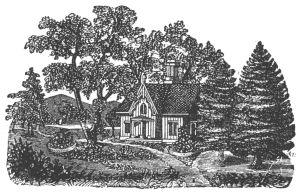
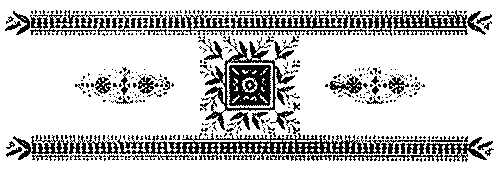
LUCY LARCOM.

There's a merry brown thrush sitting up in the tree.
"He's singing to me! he's singing to me!"
And what does he say, little girl, little boy?
"Oh, the world's running over with joy!
Don't you hear? Don't you see?
Hush! Look! In my tree,
I'm as happy as happy can be!"
And the brown thrush keeps singing, "A nest do you see,
And five eggs, hid by me in the juniper-tree?
Don't meddle! don't touch! little girl, little boy,
Or the world will lose some of its joy!
Now I'm glad! now I'm free!
And I always shall be,
If you never bring sorrow to me."
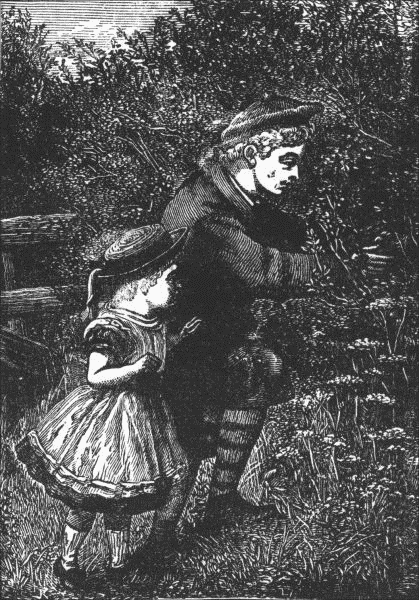
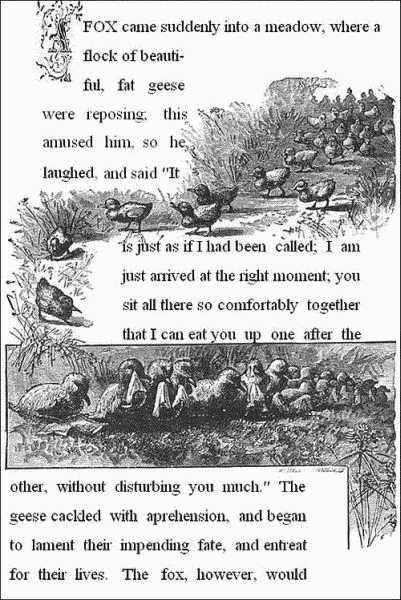
listen to nothing, and said, "There is no mercy for you; you must die!" At last one took courage, and said, "If we poor geese must lose our young, fresh lives, grant us at least this small favor—that we may repeat one prayer, and not die in our sins; after that we will place ourselves in a row, that you may be able to choose the fattest." "Well," said the fox, "perhaps that is only just, it is certainly proper, begin your prayer, and I will wait." The first began with a remarkably long prayer, nothing but "ga, ga," and as it did not seem inclined to leave off, the second would not wait until her turn came, but began likewise, "ga, ga," the third and fourth followed, and they soon all cackled together. (When the prayer is finished you shall have the rest of the story; but as far as I know, they are all still going on.)
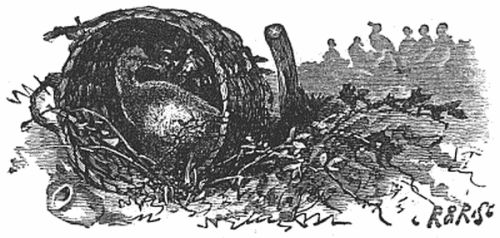
"Count that day lost whose low-descending sun,
Views from thy hand no worthy action done."
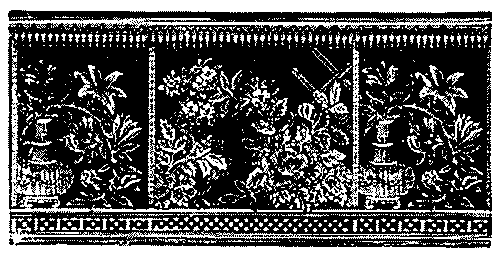

Harken, child, unto a story!
For the moon is in the sky,
And across her shield of silver,
See! two tiny cloudlets fly.
Watch them closely, mark them sharply,
As across the light they pass,—
Seem they not to have the figures
Of a little lad and lass?
See, my child, across their shoulders
Lies a little pole! and lo!
Yonder speck is just the bucket,
Swinging softly to and fro.
[Pg 63]
It is said, these little children,
Many and many a Summer night,
To a little well far northward
Wandered in the still moonlight.
To the wayside well they trotted,
Filled their little buckets there,
And the Moon-man looking downwards,
Saw how beautiful they were.
Quoth the man, "How vexed and sulky
Looks the little rosy boy!
But the little handsome maiden,
Trips behind him full of joy.
To the well behind the hedgerow
Trot the little lad and maiden;
From the well behind the hedgerow
Now the little pail is laden.
How they please me! how they tempt me!
Shall I snatch them up to-night?
Snatch them, set them here forever,
In the middle of my light?
Children, ay, and children's children
Should behold my babes on high,
And my babes should smile forever,
Calling others to the sky?"
[Pg 64]
Thus the philosophic Moon-man
Muttered many years ago,
Set the babes with pole and bucket,
To delight the folks below.
Never is the bucket empty,
Never are the children old;
Ever when the moon is shining
We the children may behold.
Ever young, and ever little,
Ever sweet and ever fair!
When thou art a man, my darling,
Still the children will be there!
Ever young, and ever little,
They will smile when thou art old!
When thy locks are thin and silver,
Theirs will still be shining gold.
They will haunt you from their heaven,
Softly beckoning down the gloom,—
Smiling in eternal sweetness
On thy cradle, on thy tomb!

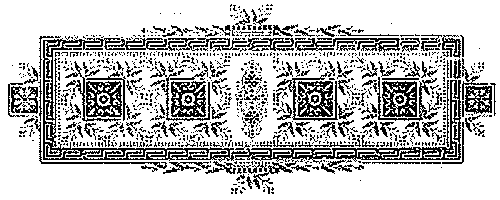
PETER CHRISTIAN ASBJORNSEN.
Geijer.

When I was a boy about fourteen years old, I came one Saturday afternoon in the middle of the summer to Upper Lyse, the last farm in Sorkerdale. I had frequently walked or driven over the main road between Christiania and Ringerike, and I had now, after having been at home on a short visit, taken the road past Bokstad to Lyse for a change, with the intention of making a short cut through the north part of the Krog-wood.
I found all the doors of the farm-house wide open, but I looked in vain in the parlor, in the kitchen, and in the barn, for a human being whom I could ask for a drink and who could give me some direction about the road.
There was no one at home but a black cat, who was sitting quite content and purring on the hearth, and a dazzling white cock, who was walking up and down the passage breasting himself and crowing incessantly, as much as to say: "Now I am the cock of the walk!"
Tired with the heat and my walk, I threw myself down on the grass in the shadow of the house, where I lay half-asleep enjoying a quiet rest, when I was startled by an unpleasant clamour,—the jarring voice of a woman, who was trying by alternately scolding and using pet names to pacify a litter of grunting pigs on the farm. By following the sound I came upon a bare-footed old woman with a yellow dried-up countenance, who was bending down over the pigs' trough, busy filling it with food, for which the noisy little creatures were fighting, tearing, pushing, and yelling, with expectation and delight.
On my questioning her about the road, she answered me by asking me another question, while she, without raising herself up, turned her [Pg 67] head half away from her pets to stare at me.
"Where might you come from?"
When she had got a satisfactory answer to this, she continued, while she repeatedly addressed herself to the young pigs:
"Ah, so!—you are at school at the parson's, eh!—hush, hush! little piggies, then!——The road to Stubdale, do you say?——Just look at that one now! Will you let the others get something as well, you rascal! Hush, hush! Be quiet, will you! Oh, poor fellow, did I kick you then?——Yes, yes, I'll tell you the road directly,—its—its straight on through the wood till you come to the big water-wheel!"
As this direction seemed to me to be rather vague for a road of about fourteen miles length through a forest, I asked her if I could not hire a lad who knew the road, to go with me.
"No, bless you! Is it likely?" she said, as she left the piggery and came out on the slope before the farm. "They are so busy now with the hay-making, that they've scarcely time to eat. But it's straight through the wood, and I'll explain it to you right enough, as if you saw the road before you. First you go up the crag and all the hills over yonder, and when you have got up on the heights, you have the [Pg 68] straight road right before you to Heggelie. You have the river on your left hand all the way, and if you don't see it you'll hear it. But just about Heggelie there is a lot of twistings and turnings, and now and then the road is lost altogether for some distance—if one is a stranger there, it's not an easy thing to find one's way, but you are sure to find it as far as Heggelie, for that's close to the lake. Afterwards you go along the lake, till you come to the dam across a small tarn, just like a bridge, as they call it; bear away to the left there, and then turn off to the right, and you have the road straight before you to Stubdale, in Aasa."
Although this direction was not quite satisfactory, particularly as it was the first time I had started on an excursion off the main road, I set out confidently and soon all hesitation vanished. From the heights a view was now and then obtained between the lofty pine and fir trees of the valley below, with its smiling fields and variegated woods of birch and alder trees, between which the river wound like a narrow silvery streak. The red-painted farm-houses, peculiar to Norway, lay picturesquely scattered on the higher points of the undulating valley where men and women were busy hay-making. From some chimneys rose [Pg 69] columns of blue smoke, which appeared quite light against the dark back-ground of thickly studded pine forests on the mountain slopes.
Over the whole landscape lay a repose and a peace so perfect that no one could have suspected the close proximity of the capital. When I had advanced some distance into the forest, I heard the notes of the bugle and the distant baying of hounds in full cry, which gradually ceased, till nothing but a faint echo of the bugle reached my ear. I now heard the roar of the river, which rushed wildly past at some distance on my left, but as I advanced the road seemed gradually to approach it, and soon the valley in some parts grew narrower and narrower, till I at last found myself at the bottom of a deep, gloomy gorge, the greatest part of which was taken up by the river. But the road left the river again; there were certainly twistings and turnings, as the old woman had said, for at one moment it wound hither and the next thither, and at some places it was almost imperceptible. Now it went up a steep incline, and when I had passed the brow of the hill, I saw between the fir trees a couple of twinkling tarns before me, and on the margin of one of these a dairy on a verdant slope, bathed in the golden light of the evening sun.
In the shady retreat under the hill grew clusters of luxuriant ferns; the wild French willow stood proudly with its lofty crest of red and gorgeous flowers between the pebbles, but the sedate monk's hood lifted its head still higher and looked gloomily and wickedly down on it, while it nodded and kept time to the cuckoo's song, as if it were counting how many days it had to live.
On the verdant slope and down by the edge of the water, the bird-cherry and the mountain ash displayed their flowery garb of summer. They sent a pleasant and refreshing fragrance far around, and shook sorrowfully the leaves of their white flowers over the reflected picture of the landscape in the mirror of the lake, which on all sides was surrounded by pine trees and mossy cliffs.
There was no one at home in the dairy. All doors were locked,—I knocked everywhere, but no answer,—no information as to the road. I sat down on a rock and waited awhile, but no one appeared. The evening was setting in; I thought I could not stay there any longer, and started again. It was still darker in the forest, but shortly I came to a timber-dam across a bit of river between two lakes.
I supposed this was the place where I "should bear off first to the left, and then to the right." I went across, but on the other side [Pg 71] of the dam there were only—as it appeared to me—flat, smooth, damp rocks and no trace of a road; on the opposite side, the right side of the dam, there was a well-trodden path. I examined both sides several times, and although it appeared to be contrary to the direction I had received, I decided on choosing the broader road or path, which was continued on the right hand side of the water. As long as it followed the course of the dark lake, the road was good and passable, but suddenly it turned off in a direction which, according to my ideas, was the very opposite of the one I should take, and lost itself in a confused net of paths and cattle-tracks amid the darkness of the forest.
Inexpressibly tired of this anxious intricate search, I threw myself down on the soft moss to rest for a while, but the fatigue conquered the fears of the lonely forest, and I cannot now tell how long I dozed. On hearing a wild cry, the echo of which still resounded in my ears when I awoke, I jumped to my feet. I felt comforted by the song of the red-breast, and I thought I felt less lonely and deserted as long as I heard the merry notes of the thrush.
The sky was overcast and the darkness of the forest had increased considerably. A fine rain was falling, which imparted renewed life [Pg 72] to the plants and trees, and filled the air with a fresh, aromatic fragrance; it also seemed to call to life all the nocturnal sounds and notes of the forest. Among the tops of the fir trees above me, I heard a hollow, metallic sound, like the croaking of the frog and a penetrating whistling and piping. Round about me was a buzzing sound, as if from a hundred spinning-wheels, but the most terrible of all these sounds was, that they at one time seemed close to your ear, and in another moment far away; now they were interrupted by frolicsome, wild cries, and a flapping of wings,—now by distant cries of distress, on which a sudden silence followed again.
I was seized by an indescribable fear; these sounds sent a chill through me, and my terror was increased by the darkness between the trees, where all objects appeared distorted, moving and alive, stretching forth thousands of hands and arms after the stray wanderer. All the fairy tales of my childhood were conjured up before my startled imagination, and appeared to be realized in the forms which surrounded me; I saw the whole forest filled with trolls, elves, and sporting dwarfs. In thoughtless and breathless fear I rushed forward to avoid this host of demons, but while flying thus still more frightful and distorted shapes appeared,—and I fancied I felt their hands clutching me. Suddenly I heard the heavy tread of some one, who moved over the crackling branches of the underwood. I saw, or fancied I saw, a dark shape, which approached me with a pair of eyes shining like glowing stars. My hair stood on an end; I believed my fate was inevitably sealed, and shouted almost unconsciously as if to give myself new courage:
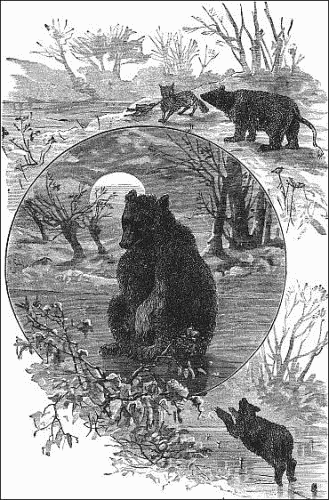
A PAIR OF EYES SHINING LIKE STARS.
"If there's anybody there, tell me the way to Stubdale!" A deep growl was the answer I received, and the bear, for such it was, walked quickly away in the same direction whence he had come. I stood for some time and listened to his heavy steps and the crackling of the branches under his feet. I mumbled to myself: "I wish it was daylight and that I had a gun with me, and you should have had a bullet, Master Bruin, for frightening me thus!"
With this wish and childish threat all fear and thoughts of danger vanished, and I walked on again quite composed, on the soft mossy ground.
When after considerable trouble I had forced my way through the chaos of fallen trees, which the wind had torn up in this exposed wild region, and had ascended the other steep hillside, I had still a good distance to walk across an open wooded heath.
On the outskirt of this wood trickled a small brook, where the alder and the pine trees again sought to maintain their place, and on a small plot on the slope on the other side of a brook burned a great log-fire, which threw its red light far in between the trees. In front of the fire sat a dark figure, which, on account of its position between me and the blazing fire, appeared to me to be of supernatural proportions. The old stories about robbers and thieves in this forest came suddenly back to me, and I was on the point of running away when my eyes caught sight of a hut, made out of fir branches, close to the fire, and two other men, who sat outside it, and the many axes, which were fixed into the stump of a felled tree, and it became evident to me that they were wood-cutters.
The dark figure, an old man, was speaking,—I saw him move his lips; he held a short pipe in his hand, which he only put to his mouth now and then to keep it alight by these occasional puffs. When I approached the group, the story had either come to an end or he had been interrupted; he stooped forward, put some glowing embers in his pipe, smoked incessantly and appeared to be attentively listening to what a fourth person, who had just arrived, had to say. This person, who apparently [Pg 76] also belonged to the party, was carrying a bucket of water from the brook. His hair was red, and he was dressed in a long jersey jacket, and had more the appearance of a tramp than a wood-cutter. He looked as if he had been frightened by something or other.
The old man had now turned round towards him, and as I had crossed the brook and was approaching the party from the side, I could now see the old man plainly in the full glare of the fire. He was a short man with a long hooked nose. A blue skull-cap with a red border scarcely covered his head of bristly grey hair, and a short-bodied but long Ringerike coat of dark grey frieze with worn velvet borders, served to make the roundness and crookedness of his back still more conspicuous.
The new-comer appeared to be speaking about a bear.
"Well, who would believe it?" said the old man, "what did he want there? It must have been some other noise you heard, for there doesn't grow anything on the dry heath hereabout which he would be after. No, not Bruin, not he" he added; "I almost think you are telling lies, Peter! There's an old saying that red hair and firs don't thrive in good soil," he continued half aloud. "If it had been down in the bear's den or in Stygdale, where Knut and I both heard him and saw him the other day—but here?—No, no! he doesn't come so near the fire, he doesn't! You have been frightening yourself!"
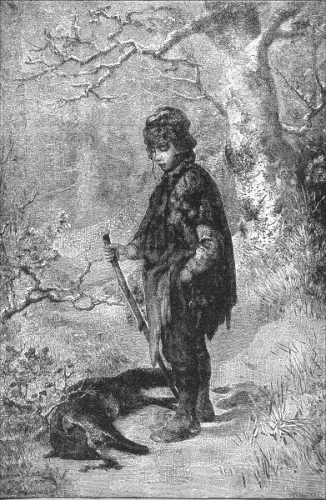
"Frightening myself? Oh, dear no! Didn't I hear him moving and crushing through the underwood, my canny Thor Lerberg?" answered the other, somewhat offended and chagrined at the old man's doubts and taunts.
"Well, well, my boy," continued Thor in his former tone, "I suppose it was something bigger than a squirrel, anyhow!"
I now stepped forward, and said it must have been me that he had heard, and told them how I had lost my way, and the fright I had undergone, and how hungry and tired I was. I asked whereabouts I was now, and if one of them would show me the way to Stubdale.
My appearance created considerable surprise to the party, which however was not so much apparent in their words, as in the attention with which they regarded me and heard my story. The old man, whose name I had heard was Thor Lerberg, seemed particularly interested in it; and as it appeared that he was accustomed to thinking aloud, I [Pg 79] could on hearing some of the remarks which he now and then mumbled to himself, participate in his reflections thus
"No, no that was the wrong way!—He should have gone over the dam there—Stubdale way—he went wrong altogether—he is too young—he isn't used to the woods—ah, that was the woodcock—and the goatsucker—yes, yes! it sounds strange to him, that hasn't heard him—oh, yes! the loon does shriek dreadfully—particularly when there's fine rain—ah, ah! yes, that must have been the bear he met—he is a brave boy after all!"
"Yes!" I said boldly, and gave vent to my awakening youthful courage in about the same words as the man who once came across a bear asleep on a sunny hillside: "If it had been daylight, and if I had been a hunter and had a loaded gun with me, and if I could have made it go off, why, by my faith, the bear should have lain dead on the spot, he should."
"Yes, of course, ha, ha, ha!" laughed old Thor, and chuckled till the others joined in the laughter; "of course he would have lain dead on the spot,—that's plain! ha, ha, ha!"
"But you are now by Storflaaten, the biggest lake in the forest here," he said, addressing himself to me, when I had finished my [Pg 80] story; "towards morning we'll help you on your way, for we have got a boat, and when you have got across the water you haven't far to go to Stubdale then. But I suppose you would like to rest yourself a little now, and get something to eat! I have nothing but some peas-pudding and rancid bacon, and may be you are not used to that kind of food; but if you are hungry, perhaps you would like some fish? I have been out fishing, and fine fish I got too,—yes, in the lake, I mean!"
I thanked him for his offer, and he told one of his companions to take a "regular good 'un" off the string and roast it in the glowing embers of the fire.
In the meantime the old man asked a number of questions about myself, and by the time I had answered all these the fish was ready, and I began my meal with great appetite. He now asked one of his companions to tell us something about what he once said had happened to his father, when he was out cutting timber.
"That was in the spring, just before Easter 1815, when father lived at Oppen-Eie—the snow wasn't gone yet, but he had to set out for the forest to cut and drag home some wood. He went up in the Helling [Pg 81] hill, where he found a withered fir which he commenced cutting down at once. While cutting away at it, he thought he saw withered firs all around him, but while he was staring and wondering at this, up came a procession of eleven horses,—all of a mouse-gray color; it appeared to him to be a wedding-party.
"What people are these, who are coming this way over the hill?" he asked.
"Oh, we are from Osthalla," says one of them, "we are going to the Veien dairy to keep the wedding; the one who drives in front is the parson, next are the bride and bridegroom, and I am his father-in-law. You had better stand behind on my sledge and come along."
"When they had traveled some distance, the father-in-law said: 'Will you take these two bags with you and go to the Veien farm and get two barrels of potatoes in them by the time we go home?'
"My father promised to do this. They came soon to a place which he thought he knew, and so it was. It was just north of the Kill hill, where the old dairy stood; but there was no dairy there then, but a great fine building, and here they all entered. Some one met them on the steps to give the guests a glass of welcome, and they gave father [Pg 82] a glass also, but he said, 'No, thanks!' he would not have anything he said, for he had only his old clothes on, and would not intrude on such fine folks. 'Never mind this man,' said one of them, 'take a horse and see him on his way home,' which they did; they put him in a sledge with a mouse-gray horse before it, and one of them sat up and drove the horse.
When they got as far as the little valley north of Oppenhagen—where the land-slip took place—he thought he sat between the ears of a bucket; but shortly this vanished also, and it was only then he really came to himself again. He began looking for his axe, and found it sticking in the same withered fir-tree he had begun to cut down. When he came home, he was so confused and queer, that he could not tell how many days he had been away; but he was only away from the morning to the evening,—and for some time afterwards he was not himself——"
"Yes, many a queer thing happens hereabout," said old Thor; "and I for my part have also seen a little—well, witchcraft I mean,—and if you like to sit up a little longer, I'll tell you what has happened to me,—in this here forest I mean."
"Yes, they would all like to hear it;—to-morrow was Sunday, and it didn't much matter if they went to bed late.
"Well, it might be about ten or twelve years ago," he answered, "I was burning charcoal over in the Kampenhaug forest. In the winter I had two horses there to cart the coals to the Bærum works. One day I happened to stop too long at the works, for I met some old friends from Ringerike there, and we had a good talk about one thing or another, and a little drop to drink, too,—yes, brandy I mean—and so I did not come back to the kiln before ten o'clock in the evening.
I made a fire, so I could see loading the sledges, for it was terribly dark, and I had to get the carts loaded in the evening, for I had to be off at three o'clock next morning, if I was to get to the works and back again the same day while it was light,—back to the kiln I mean. When I had got the fire to burn up, I began loading the sledges. But just as I was turning round to the fire again a drift of snow came sweeping down upon it and put it out entirely,—the fire I mean. So I thought to myself: 'Why, bless me, the old witch in the hill here is vexed to-night, because I come home so late and disturb her.' I struck a light and made a new fire. But, strange to say, the shovel would [Pg 84] not drop all the coals into the basket,—more than half went over the sides. At last I got the sledges loaded, and I was going to put the ropes round them, but will you believe me, every one of them broke, the one after the other,—the ropes I mean. So I had to get new ropes, and at last got the sledges ready, gave the horses their fodder, and went to bed. But do you think I awoke at three? No, not till long after the sun had risen, and still I felt heavy and queer, both in my head and my body.
Well, I had something to eat and went then to look to the horses, but the shed was empty and the horses were gone. I got rather out of temper at this, and I am afraid I swore a little into the bargain, but I thought I had better try and find some tracks of them. During the night there had fallen a little fresh snow, and I could see they had not gone off in the direction of the valley or the works. I found, however, the track of two horses and of a couple of broad large feet in a northerly direction; I followed these for two or three miles, when the tracks parted, and the foot-marks vanished altogether; one horse had gone to the east, and the other to the west, and after following up one first [Pg 85] for five or six miles, I came upon him at last. I had to take him home to the hut and tie him up, before I could start looking for the other horse. By the time I got hold of him it was near upon noon, and so there was no use going to the works that day. But I promised I should never disturb the old witch any more,—in the evening I mean.
But these promises are strange things sometimes,—if you keep a promise to Christmas you are pretty sure to break it before next Michaelmas. The year after I made a trip to Christiania late in the autumn,—the roads were in a fearful bad condition and it was already very late in the afternoon before I left town, but I wanted to get home that night. I was on horseback and took the road by Bokstad, which is the shortest, as you know,—to Ausfjerdingen, I mean. The weather was wet and ugly, and it was beginning to grow dark when I started. But when I came over the bridge by Heggelie I saw a man coming towards me,—he wasn't very tall, but terribly big; he was as broad as a barn-door across his shoulders, and his hands were nearly a foot across the knuckles. He carried a leather bag in one hand, and seemed to be talking to himself. When I came nearer to him, his eyes glistened like burning cinders, [Pg 86] and they were as big as saucers. His hair stood out like bristles, and his beard was no better; I thought he was a terrible, ugly brute, and I prayed for myself the little I could, and just as I came to the end, down he sank,—in the ground I mean.
"I rode on, humming an old psalm, but suddenly I met him again coming down a hill; his eyes and hair and beard, too, sparkled with fire this time. I began praying again, and had no sooner finished than he was gone. But I had scarcely ridden a mile before I met him once more as I was crossing a small bridge. His eyes flashed like lightning and sparks flew out of his hair and beard, and so he shook his bag, till you could see blue and yellow and red tongues of fire shooting out of it. But then I lost my temper right out, and instead of praying I swore at him, and he vanished on the spot. But as I rode on, I began to be afraid that I should meet this brute again, so when I came to Lovlie, I knocked at the door, and asked for lodgings till daylight, but do you think they would let me in? No. I could travel by day, like other folks, they said, and then I needn't ask for lodgings!—So I guessed the brute had been there before me and frightened them, and I had to set out again. But then I started another old psalm, till the [Pg 87] mountains rang with it, and I came at last safe to Stubdale, where I got lodgings—but it was almost morning then."
The manner in which he told these stories, was like his speech, slow and expressive, and he had the custom of repeating single words, or part of his sentences at the end of these, or adding one or another superfluous explanation. He generally applied these remarks after one of his many exertions to keep his pipe alight, and they had such a comical effect on me, that I had great difficulty to refrain from laughing outright. I was in a merry mood after having safely got through my nocturnal expedition, and to this I must ascribe the fact that his stories did not make the impression upon me which, after what I had gone through, might have been expected.
The dawn of the day was now appearing, and old Thor told one of his companions to row me across the lake, and put me on my right road.

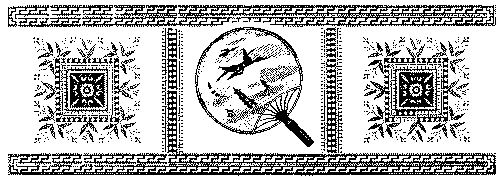

Two little kittens, one stormy night,
Began to quarrel and then to fight,
One had a mouse, the other had none,
And that was the way the quarrel begun.
"I'll have that mouse," said the biggest cat,
"You'll have that mouse, we'll see about that,"
"I will have the mouse" said the eldest son.
"You shan't have that mouse," said the little one.
I told you before 'twas a stormy night,
When these two little kittens began to fight;
The old woman seized her sweeping broom,
And swept the two kittens right out of the room.
[Pg 89]
The ground was covered with frost and snow,
And the two little kittens had nowhere to go,
So they laid them down on the mat at the door,
While the old woman finished sweeping the floor.
Then they both crept in as quiet as mice,
All wet with snow and cold as ice;
For they found it was better, that stormy night,
To lie down and sleep, than to quarrel and fight.
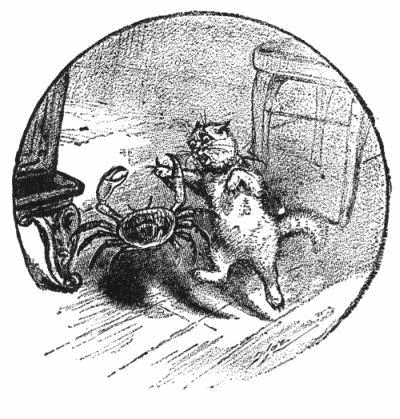
"OUCH!"


David Livingstone said: "Those who have never carried a book through the press can form no idea of the amount of toil it involves. The process has increased my respect for authors a thousand-fold. I think I would rather cross the African continent again than undertake to write another book."
"For the statistics of the negro population of South America alone," says Robert Dale Owen, "I examined more than a hundred and fifty volumes."
Another author tells us that he wrote paragraphs and whole pages of his book as many as fifty times.
It is said of one of Longfellow's poems that it was written in four weeks, but that he spent six months in correcting and cutting it down.
Bulwer declared that he had rewritten some of his briefer productions as many as eight or nine times before their publication. One of Tennyson's pieces was rewritten fifty times. John Owen was twenty years on his "Commentary on the Epistle to the Hebrews;" Gibbon on his "Decline and Fall," twenty years; and Adam Clark on his "Commentary," twenty-six years. Carlyle spent fifteen years on his "Frederick the Great."
A great deal of time is consumed in reading before some books are prepared. George Eliot read one thousand books before she wrote "Daniel Deronda." Alison read two thousand before he completed his history. It is said of another that he read twenty thousand and wrote only two books.
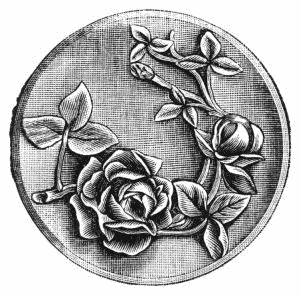


The woman was old, ragged and gray, And bent with the chill of the winter's day; The street was wet with the winter's snow, And the woman's feet were aged and slow. She stood at the crossing and waited long, Alone, uncared for, amid a throng Of human beings who passed her by; None heeded the glance of her anxious eye. Down the street with laughter and shout, Glad in the freedom of school let out, Came the boys like a flock of sheep, Hailing the snow, piled white and deep. Past the woman so old and gray, Hastened the children on their way, Nor offered a helping hand to her, So meek, so timid, afraid to stir, [Pg 93] Lest the carriage wheels or the horses' feet Should crowd her down on the slippery street. At last came one of the merry troop, The gayest laddie of all the group. He paused beside her and whispered low, "I'll help you across if you wish to go." Her aged hand on his strong young arm She placed, and without hurt or harm, He guided the trembling feet along, Proud that his own were firm and strong. Then back again to his friends he went, His young heart happy and well content. "She is somebody's mother, boys, you know, For she is old, and poor, and slow; And I hope some fellow will lend a hand To help my mother, you understand, If she's old, and poor, and gray, When her own dear boy is far away." And "somebody's mother" bowed low her head In her home that night, and the prayer she said Was: "God be kind to the noble boy Who is somebody's son, and pride, and joy."
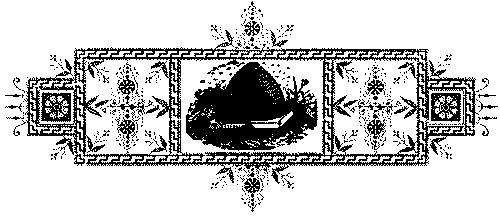

Mary haf got a leetle lambs already;
Dose vool was vite like shnow;
Und efery times dot Mary did vend oud,
Dot lambs vent also out, mit Mary.
Dot lambs did follow Mary von day of der school-house,
Vich was obbosition to der rules of der school-master;
Also, vich it did cause dose schilden to schmile out loud,
Ven dey did saw dose lambs on der insides of der school-house.
[Pg 95]
Und so dot school-master dit kick der lamb gwick oud;
Likewise dot lambs dit loaf around on der outside;
Und did shov der flies mit his tail off patiently aboud,—
Until Mary did come also from dot school-house oud.
Und den dot lambs did run away gwick to Mary,
Und dit make his het gwick on Mary's arms,
Like he would said, "I don't was schared,
Mary would kept me from droubles enahow."
"Vot vos der reason aboud it, of dot lambs und Mary?"
Dose schildren did ask it dot school-master;
"Vell, don'd you know it, dot Mary lofe dose lambs, already,"
Dot school-master did said.
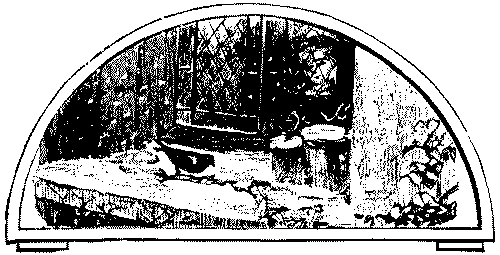
CHARLES DICKENS.

Then up rose Mrs. Cratchit, Cratchit's wife, dressed out but poorly in a twice-turned gown, but brave in ribbons, which are cheap and make a goodly show for six-pence; and she laid the cloth, assisted by Belinda Cratchit, second of her daughters, also brave in ribbons; while master Peter Cratchit plunged a fork into the saucepan of potatoes, and getting the corners of his monstrous shirt-collar (his father's private property, conferred upon his son and heir in honor of the day,) into his mouth, rejoiced to find himself so [Pg 97] gallantly attired, and yearned to show his linen in the fashionable parks.
And now two smaller Cratchits, boy and girl, came tearing in, screaming that outside the baker's they had smelt the goose, and known it for their own; and basking in luxurious thoughts of sage and onion, these young Cratchits danced about the table, and exalted master Peter Cratchit to the skies, while he, (not proud, although his collars nearly choked him,) blew the fire, until the slow potatoes bubbling up, knocked loudly at the saucepan-lid to be let out and peeled.
"What has ever got your precious father, then?" said Mrs. Cratchit, "and your brother, Tiny Tim! and Martha warn't as late last Christmas Day by half-an-hour!"
"Here's Martha, mother!" said a girl, appearing as she spoke.
"Here's Martha, mother!" cried the two young Cratchits.
"Hurrah! there's such a goose, Martha!"
"Why, bless your heart alive, my dear, how late you are!" said Mrs. Cratchit, kissing her a dozen times, and taking off her shawl and bonnet for her with officious zeal.
"We'd a deal of work to finish up last night," replied the girl, "and had to clear away this morning, mother."
"Well, never mind, so long as you are come," said Mrs. Cratchit, "sit ye down before the fire, my dear, and have a warm, Lord bless ye!"
"No, no, there's father coming," cried the two young Cratchits, who were everywhere at once. "Hide, Martha, hide!"
"So Martha hid herself, and in came little Bob, the father, with at least three feet of comforter besides the fringe hanging down before him; and his threadbare clothes darned up and brushed, to look seasonable; and Tiny Tim upon his shoulder.
Alas for Tiny Tim, he bore a little crutch, and had his limbs supported by an iron frame!
"Why, where's our Martha," cried Bob Cratchit, looking round.
"Not coming," said Mrs. Cratchit.
"Not coming!" said Bob, with a sudden falling in his high spirits; for he had been Tim's blood horse all the way from church, and had come home rampant. "Not coming upon Christmas day!"
Martha did not like to see him disappointed, if it were only in joke; so she came out from behind the closet door, and ran into his arms, while the two young Cratchits hustled Tiny Tim, and bore him off to [Pg 99] the wash-house, that he might hear the pudding singing in the copper.
"And how did little Tim behave?" asked Mrs. Cratchit, after Bob had hugged his daughter to his heart's content.
"As good as gold," said Bob, "and better. Somehow he gets thoughtful, sitting by himself so much, and thinks the strangest things you ever heard. He told me, coming home, that he hoped the people saw him in the church, because he was a cripple, and it might be pleasant to them to remember upon Christmas day, who made lame beggars walk and blind men see."
Bob's voice was tremulous when he told them this, and trembled more and more when he said that Tiny Tim was growing strong and hearty.
His active little crutch was heard upon the floor, and back came Tiny Tim before another word was spoken, escorted by his brother and sister to his stool beside the fire; and while Bob, turning up his cuffs—as if, poor fellow, they were capable of being made more shabby—mixed some hot mixture in a jug, with gin and lemons, and stirred it round and put it on the hob to simmer; master Peter and the two young Cratchits went to fetch the goose, with which they soon returned in [Pg 100] high procession.
Such a bustle ensued that you might have thought a goose the rarest of all birds; and in truth it was something very like it in that house.
Mrs. Cratchit made the gravy (ready beforehand in a little saucepan) hissing hot; master Peter mashed the potatoes with wonderful vigor; Miss Belinda sweetened the apple-sauce; Martha dusted the hot plates; Bob took Tiny Tim beside him in a tiny corner at the table; the two young Cratchits set chairs for everybody, not forgetting themselves, and mounting guard, upon their posts, crammed spoons into their mouths, lest they should shriek for goose before their turn came to be helped.
At last the dishes were set on, and grace was said. It was succeeded by a breathless pause, as Mrs. Cratchit, looking slowly all along the carving-knife, prepared to plunge it in the breast; but when she did, and when the long-expected gush of stuffing issued forth, one murmur of delight rose all round the board, and even Tiny Tim, excited by the two young Cratchits, beat on the table with the handle of his knife, and feebly cried "Hurrah!"
There never was such a goose! Bob said he didn't believe there ever was such a goose cooked. Its tenderness and flavor, size and cheapness, [Pg 101] were the themes of universal admiration. Eked out by apple-sauce and mashed potatoes, it was a sufficient dinner for the whole family; indeed, as Mrs. Cratchit said with great delight (surveying one small atom of a bone upon the dish), they hadn't ate it all at last! Yet every one had had enough, and the youngest Cratchits in particular, were steeped in sage and onion to the eyebrows.
But now, the plates being changed by Miss Belinda, Mrs. Cratchit left the room alone—too nervous to bear witnesses—to take the pudding up and bring it in.
Suppose it should not be done enough! Suppose it should break in turning out! Suppose somebody should have got over the wall of the backyard and stolen it, while they were merry with the goose—a supposition at which the two young Cratchits became livid! All sorts of horrors were supposed.
Hallo! A great deal of steam! The pudding was out of the copper. A smell like a wash-day! That was the cloth. A smell like an eating-house and a pastry cook's next door to each other, with a laundress's next door to that! That was the pudding!
In half-a-minute Mrs. Cratchit entered—flushed, but smiling proudly,—with the pudding, like a speckled cannon-ball, so hard and firm, blazing in half of half-a-quartern of brandy, and bedight with Christmas holly stuck into the top.
Oh, a wonderful pudding! Bob Cratchit said, and calmly too, that he regarded it as the greatest success achieved by Mrs. Cratchit since their marriage. Mrs. Cratchit said that now the weight was off her mind, she would confess she had her doubts about the quantity of flour.
Everybody had something to say about it, but nobody said or thought it was at all a small pudding for a large family. It would have been flat heresy to do so. Any Cratchit would have blushed to hint at such a thing.
At last the dinner was all done, the cloth was cleared, the hearth swept, and the fire made up. The compound being tasted, (the gin and lemons) and considered perfect, apples and oranges were put upon the table, and a shovel full of chestnuts on the fire.
Then all the Cratchit family drew round the hearth, in what Bob Cratchit called a circle, meaning half a one; and at Bob Cratchit's elbow stood the family display of glass,—two tumblers and a custard [Pg 103] cup without a handle.
These held the hot stuff from the jug, however, as well as golden goblets would have done; and Bob served it out with beaming looks, while the chestnuts on the fire sputtered and cracked noisily.
Then Bob proposed "A Merry Christmas to us all, my dears, God bless us!" which all the family re-echoed.
"God bless us every one!" said Tiny Tim, the last of all.
Thomas Gray: 'Elegy'


If you examine a map of Europe you will notice, not without difficulty, a little speck in the North Sea some thirty-six miles northwest of the mouth of the river Elbe. This little almost invisible speck is an island called Heligoland.
It belongs to Great Britain, having been ceded to this country by the Danes in 1814. Denmark in an evil hour identified herself with the cause of the first Napoleon, and the loss of Heligoland was only one of the results of her misguided policy. The island is to-day known chiefly as the favorite seaside resort of the Hamburghers, and though it is a British possession no English is spoken by the natives. Its name is supposed to mean the Holy Island, tradition affirming that at one period of its existence—many centuries ago—the isle was covered with temples for pagan worship that have long since disappeared. [Pg 105] Hel-i-go-land is one mile in length, about half a mile broad, and triangular in shape. It consists of an Upper and Lower Town, and is surrounded on all sides by steep red cliffs, except at the part upon which the Lower Town is built. Nearly a quarter of a mile east of the main island is a long, low-lying, sandy hill or "dune," which affords splendid bathing. Access from the Lower to the Upper Town, on the Cliffs above, is obtained by means of a wooden stair of 190 steps. Naturally enough, since there is constant need to travel between the two "Towns," this stair is a prominent feature in Heligoland existence. It is the test alike of youthful vigour and of failing strength.
The island children cannot conceive of a country without a stair, and the lads of the colony—like boys all the world over—often adopt the dangerous practice of accomplishing the descent by sliding down the balusters, a pastime that is sometimes indulged in by people of maturer years. The flat-topped rock is occupied by a lighthouse, a battery, a powder magazine, and pasture for 200 sheep. From one end to the other there runs a footpath called the "Highway," or "Potato Lane."
The streets, clean and paved with red brick, are excessively narrow, [Pg 106] the only vehicles being perambulators and wheelbarrows, while horse or ass is never—or scarcely ever—seen in the island. The two or three cows which supply the milk during the season duly retire with the last of the visitors to Hamburg, 100 miles distant. The houses of the poorer folk resemble ship cabins, the beds being nailed against the wall like berths, or built in recesses in the walls.
The inhabitants love liberty and independence. They are proud of their "right little, tight little" island, and when business calls them away from it, they always weary to get back home. The rhyme which finds most favor amongst the people is one which, being interpreted, asserts that—
"Green is the land,
Red is the strand,
White is the sand,
These are the colors of Heligoland."
This rhyme indeed, Dr. Robert Brown suggests, may be regarded as their "national anthem."
The Heligolanders earn their livelihood from the harvest of the sea, though a fair amount of business is done by letting lodgings during "the season." From June to October hundreds of visitors besiege it, [Pg 107] and during this period it may be described as a suburb of Hamburg, the bulk of the strangers hailing from that prosperous city. In winter the natives have the little island all to themselves.
The Heligoland men are tall, strong, with regular features and are superior in build to their relatives on the mainland. The women are rather handsome, with small feet, well-shaped slender hands, and long hair, for which, indeed, they are famous. As compared with the German or Dutch peasant women, they easily bear the palm.
In their dress they rather affect gay colors, the younger ones especially, like the "Rose" whom the artist has depicted on this page. The dress consists of a scarlet skirt, with a "body" and apron, generally of some light brown "stuff." The bonnet is a product peculiar to the island. It is a piece of pasteboard bent in the shape of a bonnet, over which is fastened a square piece of silk, satin or poplin, occasionally embroidered behind with lace.
The population numbers about 3,000 souls. As already noted, the men are fishers and pilots. The yearly value of the fisheries—which comprise mainly lobsters, crabs, herring, cod, and flat fish—amounts to upwards of $25,000. Trade is carried on by barter, the fish being exchanged with the merchants of Hamburg and Bremen for the goods which the Heligolanders require. The natives are keen, shrewd and honest.
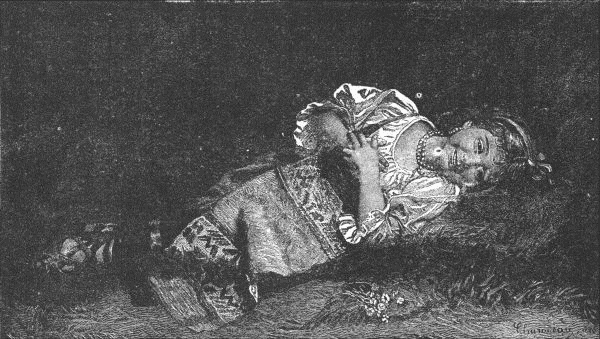
"THE ROSE."
Theft is practically unknown, and the few cases with which the magistrate is troubled arise from the street brawls which now and then take place. The men are usually serious, and rarely joke among themselves or with strangers, and, oddly enough, all the young men are particularly reserved.
Of course the women are not nearly so grave. They are all more lively as well as talkative. Though they are rather good-looking, they get aged and weatherbeaten early, owing to the anxiety of household affairs and other causes. For the men are addicted to the vile habit—common among all uncivilized and too many civilized races—of allowing the women to do very nearly the whole of the manual labor of the house, field and garden. Accordingly we find that the females have to pay in premature age the penalty of their lords' laziness.
The climate is very bracing, but the winters are wet and stormy. The air is so saturated with saline spray that the rain will leave a slight deposit of salt after it has evaporated. During the winter, communication with the mainland is maintained by boat once a week, though the island is often completely isolated for a considerable [Pg 110] period by rough weather, drift ice, and various other causes.
Rats and mice are found in Heligoland in plenty, but the oft-quoted story about the rabbits, and the ruin which their burrowing was fast bringing upon the doomed isle is declared by a competent authority to be pure romance. The sea is making rapid inroads upon parts of the Holy Isle, and it is not unlikely that at some far-distant period all that will remain of this out-of-the-world spot will be a wave-lashed rock, the haunt of the gull and the cormorant.
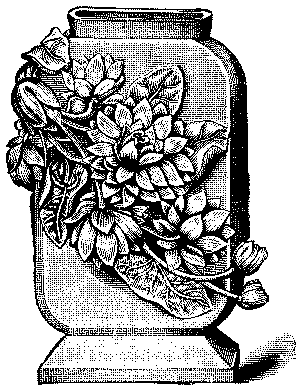

CHAS. DICKENS.

Don't crowd; the world is large enough
For you as well as me;
The doors of all are open wide—
The realm of thought is free.
In all earth's places you are right
To chase the best you can—
Provided that you do not try
To crowd some other man.
Don't crowd the good from out your heart
By fostering all that's bad,
But give to every virtue room—
The best that may be had:
To each day's record such a one
That you might well be proud:
Give each his right—give each his room,
And never try to crowd.

OLIVER WENDELL HOLMES.

You hear that boy
laughing?—You think he's all fun;
But the angels laugh, too, at the good he has done.
The children laugh loud as they troop to his call,
And the poor man that knows him laughs loudest of all!
Yes, we're boys,—always playing with tongue or with pen,—
And I sometimes have asked,—Shall we ever be men?
Shall we always be youthful, and laughing, and gay,
Till the last dear companion drops smiling away?
Then here's to our boyhood, its gold and its gray!
[Pg 113]
The stars of its winter, the dews of its May!
And when we have done with our life-lasting toys,
Dear Father, take care of thy children, the BOYS!
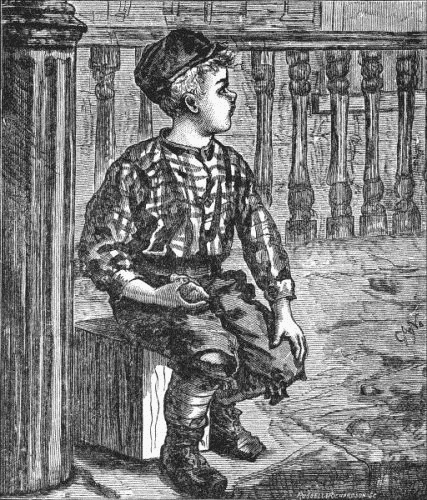
"YOU THINK HE'S ALL FUN."
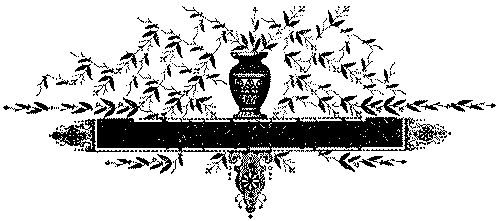
RALPH WALDO EMERSON.

The mountain and the squirrel Had a quarrel, And the former called the latter "Little prig;" Bun replied, "You are doubtless very big, But all sorts of things and weather Must be taken in together To make a year. And a sphere: And I think it no disgrace To occupy my place. If I'm not so large as you, [Pg 115] You are not so small as I, And not half so spry; I'll not deny you make A very pretty squirrel track. Talents differ: all is well and wisely put; If I cannot carry forests on my back, Neither can you crack a nut.
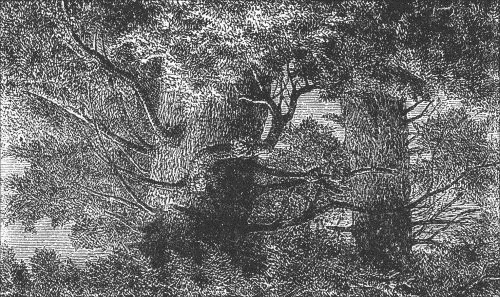
OR, RIGHT AND MIGHT.
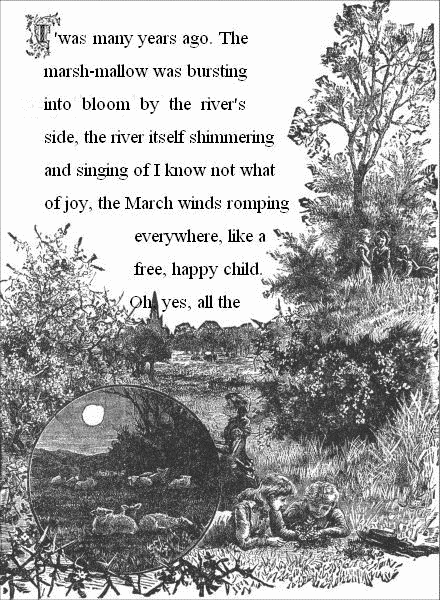
earth seemed glad, though a poor weakling of a [Pg 117] lamb lay on the sunny hillside, among its fellows, panting and sighing, as if it would fain sob out its wee life and be at rest. It had been born late; its mother was dead; none of the other ewes took kindly to it: what could the shepherd do but lay it aside in hopeless despair, and attend to the robust and hardy among his large family?
"With powers of tending, I think he'd pull through," said Jasper, his son—or Jep, as he was called—bending over the lamb in boyish pity, and speaking more to himself than to his companions. These were the squire, his master, and John Sharp, his father—both bathed in the radiance of a fair March day.
"Think you so, my lad? Then give the creature powers of tending, and if it pulls through it shall be yours." So spoke Squire Barlow.
"Do ye mean it, squire?"
"Mean it, yes! Did you ever hear me say what I didn't mean?"
Ah! true; squires were great men in those days, and a very great man was Squire Barlow in the village; his word was law. So Jep gathered up the little outcast, and scudded down to the little cottage he called home, where wee Margaret, his sister, and his gentle-faced mother gave [Pg 118] him and his charge a warm welcome; lavished their care and love upon the lamb, until, at last, even the shepherd himself said he would live.
"Spottie"—that was the name the children gave him, because of a mark on his forehead—soon learnt to know his master and mistress, and, oh! their life flowed on, as the fair spring days lengthened, like a happy dream. He was such a dear little romp, and yet so gentle, gamboling in the small orchard behind the house among the pink apple-blossoms, as they drifted down on the sunlit air, going and coming as the young folk called him, and never seemingly wishing to join his kind, as they went down from the high pastures to the green meadows. The squire's son, master Ru, as he was called, came to see "Jep's wonder," so he expressed himself.
Master Ru was a spoilt lad of about Jep's age, (eleven years), overbearing and not very generous; still he was prankish, and full of boyish frolics.
"Well, he's more mine than yours, after all, Jep," said he, one day, an envious sneer on his lips, "as t'was my father's lamb in the first place." But Jep replied, "No, he's mine; the squire gave the little chap to me, and I mean to keep him, Master Ru;" to which speech the [Pg 119] young gentleman made no reply, but turned on his heel.
One fine day in autumn, Ru strayed away to the sheep-folds; he often visited them, to have some fun with Jep—to run races with him over the downs, or hunt for squirrels and dormice in the old plantation. Then, hard by this miniature wood, there were some old ruins, with a wonderful echo chamber, where all they uttered was wafted hither and thither as by many weird voices. This was a never-failing source of amusement to them. More than once they had decoyed Jep's father across the downs thereby, thinking he was called, and that urgently.
On that day John Sharp was elsewhere; only Jep and Nip, their dog, were left in trust.
"Let's go and have a round with the old echoes this morning, Jep," proposed the young gentleman, a merry twinkle in his eyes.
"Nay, Master Ru, I must mind the sheep."
"Pooh! what minding do they want, gorging themselves with clover as they are?"
"Ay, that's where 'tis, Master Ru; father's afraid they'll gorge too much; he's told me to watch 'em."
"Well, and what will watching do?"
"I must turn 'em into t'other fold in an hour's time—see, he gave me his watch to reckon by," and Jep held up a bumping, old-fashioned [Pg 120] ticker, in his pride of possession.
"Well, an hour is a long time; we could have lots of fun in an hour." Ah! there was mighty persuasion in the boy's tone and dark, handsome face, and Jep, like many another before, faltered between duty and his love of fun.
"Come, your father need never know."
It was very plausible, all that Master Ru said that morning, and Jep never divined the half of what lay in the depths of his prankish, perhaps deceitful, heart.
He hung the watch on a hurdle stake, lest he might smash it in his games, by the side of Nip, sitting a pattern of fidelity and wary watchfulness there; then he accompanied his companion up the sunny hillside, and away to the ruins. Who could estimate the length of an hour, amid the excitement of fun and frolics? Not those two lads. Oh! high revel they held that morning; and when the echoes in the weird old chamber seemed furious at the noise they made, what did Ru do but step outside, shoot the rusty springbolt across the door, thus shutting in poor Jep.
"Upon my word I didn't half intend it," he protested; then Jep cried, with sudden compunction, "Oh! master Ru, how could ye; and the sheep [Pg 121] there feedin' and feedin'? What shall I do?
"Do—why climb out of the window, like a man of sense," returned the other with selfish coolness.
"You know I can't do it—I'd break my neck."
"Nonsense! try it on."
As well tell poor Jep to fly as to scale a perpendicular wall, and that his tormenter knew. Oh! it was fun to him to hear the poor lad run about and rave, the echoes catching every sorrowful tone, and tossing them out to him, a legion of words. What a strange waywardness is in the half of us, to find amusement in that which is another's suffering! When at last master Ru let his prisoner out, with much ado, pretended or real, the sun was past its meridian, and the sheep—ah! the sheep—one, two, many of them were beyond the shepherd's tending and doctoring.
"They must e'en die," said he before sundown, with tears in his eyes—and that night Jep wept in the dewy orchard, one hand in wee Margaret's, the other stroking Spottie, with a sore smarting back and the squire's angry dismissal making his heart equally sore and smarting. Master Ru received a reprimand, but then he was a spoilt only son, and a gentleman, while Jep was a poor lad, and should have stuck to duty—so said the squire.
This escapade was but the beginning of troubles, for, as the winter deepened, Jep's father fell ill, and the squire frowned and fumed, and never spoke civilly to Jep when he called at the cottage, where the lad hung about in disgraced idleness.
"We shall have to sell Spottie!" said his mother, in her downheartedness at the expense and poverty falling on her, and the words hung like a weight at her son's heart. Sell Spottie! the children's souls clung to him.
"Father, that pet lamb of Jep Sharp's is more mine than his, you know," is what the squire's son said to him about that time.
"No my son, I gave it to him, and a gift is a gift," spoke the squire in his justice.
"Then buy him for me, father."
"I doubt if the lad would sell it," said the squire.
"Yes, he would; you could make him." His son was importunate; this was his cry, morning, noon, and night; and, at last, his indulgent parent walked to the cottage, to see what could be done.
"I want to buy your son's lamb for mine," said the great man, loftily, to Jep's mother.
"I doubt if he'd sell it, squire; 'twould go hard with him if he did," returned she, her motherly heart throbbing fast.
"He's my father's already," put in young Ru.
"Nay, Sir, the creature was a gift to my son."
"And I offer a fair price for it, so it is doubly mine, as it were."
"Yes, but I can't say yes or no without speaking to the lad," pleaded the gentle mother.
"Well, speak to him," returned squire Barlow, which she did, and the boy shed such a torrent of tears over his pet, that night, when he shut him up in the outhouse, as fairly to startle him.
Sorrowful days followed, after sending his refusal to the Hall, while they waited, and dared not mention the matter to the shepherd, sick nigh to death. And oh! frost and snow lay on the ground, but Spottie nestled and revelled in his hay.
"If you refuse to sell the lamb, you quit my cottage," this was the threat the angered squire sent them.
"The lad simply defies me—it is not the first ill turn he has played me," so he reasoned in his blindness and loftiness, while poor Jep's heart was well-nigh breaking. Still he never flinched or yielded, but locked the innocent lamb into the outhouse, and carried the key in his pocket.
"He'll be sending one of these days to take him away, and he shan't [Pg 124] have him—he can't know how I love him," so said the poor boy.
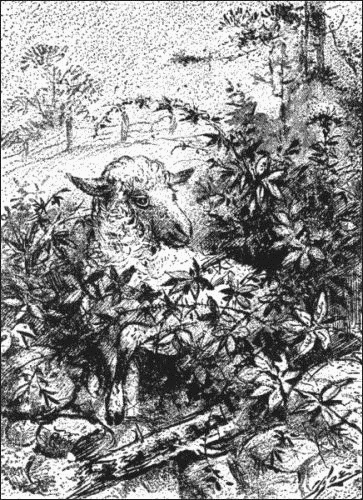
SPOTTIE."
"The squire's servant and Master Ru have been here, lad, for the lamb; and they're coming again to-morrow, and'll burst the outhouse door [Pg 125] if ye lock him in. 'Tis all over, lad; ye mustn't resist—surely a roof over your father's head is better than any lamb." These were his mother's tidings, when he came in tired, after a long journey to the doctor's for medicine, one cold spring evening, and Jep bowed his head.
"Mother, I must be with Spottie a while," said he, when it was time for him and wee Margaret to go to bed; and then he stole out into the outhouse, there in the cold and the darkness to weep and ponder over his great trouble. Could he give the darling up? Could he? A sense of wrong, of cruel injustice, made his heart bitter. He had locked himself in, and well he had, for, as he wept, some one tried the outhouse door.
"I'd let it be till to-morrow, Master Ru: 'tis mean, and very like thieving, to steal upon poor folk so, and try to break their locks." It was James, the footman at the Hall, who spoke, and it was Ru who answered him.
"Yes, and he's bound to let me have him, because of his sick father and the house. You see we're offering him a good price, and 'tis my father's lamb, you know."
"Yes; but maybe Jep doesn't think so; still, a fair price is a fair [Pg 126] price, and once the money is his, the lamb is yours," returned the servant, and then there was silence again.
"I must e'en bear it like a man, for father's sake," said he, as he stood at the door, under the quiet stars, locking his pet in for the last time. And, on the morrow, before it was light, he led the lamb away over the crisp, frosty grounds, his woolly coat wet with his and Margaret's tears; but the boy was very calm and brave now, with his great sorrow and resolve upon him.
"No, it shall be a free gift; I can't take money for Spottie," said he to the footman, who came out to receive the unconscious animal, and offered him the price of it.
It was very like a miserable dream, that the deed of separation was done; but, anon, the spring smiled itself into bright, glowing days; John Sharpe took to his shepherd duties again, and Jep worked in the garden and longed for he knew not what. He heard that Master Ru had tired of his pet, and that the lamb was to be washed and sheared with the flocks, and then sold. Still, it came to both children as a terrible reality, when they saw him driven down the lane, past their cottage, to the place of shearing—their Spottie, who would be so startled and terrified at rough handling. Their very hearts [Pg 127] seemed to cry out in their yearning, as they watched from afar the poor creature's ordeal, his first shearing; and they shivered in the night, as they heard the chill wind of early summer blow, and thought of Spottie bereft of his coat. And on the morrow—ah! those to-morrows, which sadden us or bring us gladness when we least expect it—to-morrow, as they went along the shady lane, what should they espy but Master Ru's pony riderless. No—yes, riderless, for he, poor lad, was being dragged along by one foot in the stirrup, over the hard road.
"Oh, my!" cried Jep, and then he held his breath and felt ready to die. Should he dash in and try to save him—he who had robbed him of Spottie, only to tire of him and cast him off? Yes, yes—all that was noble in the boy's soul cried—yes; and a low, soft voice stealing as from afar whispered—yes; so he sprang to the rescue, as the horse came up.
"Margaret, could ye dare to get near and loose his foot?" said he to his scared little sister—and she dared, like the small brave woman she was.
Once captured, the pony was gentle as a lamb. Jep tied him to a strong hedge-stake, and then came to his prostrate master. The poor fellow was in a sad maze of pain and half insensibility; it was not till the next [Pg 128] day that they were sure he was not seriously hurt. And then? Well, the squire walked up to the shepherd's cottage, and made its inmates glad with the words he spoke.
"I thank your children for what they did for my son, and he thanks them also. I bought their lamb and never paid for it, which I do now, and my son gives it back to them, as—as—" the proud man faltered, "as a peace-offering, if you like to call it so; and Jep may take his old place with the sheep."
Oh! the joyful bringing of meek Spottie to his home again. The poor bewildered animal understood not the half of what was happening, but he gazed gratefully around at them when they covered his shorn back with Jep's jacket, thinking he must be cold.
"What did the squire call him, Jep—a peace-offering?" asked wee Margaret.
"Yes, that's about the word."
"And what's that?"
"Some'at as makes all smooth and above board, you know, when everything was wrong."
"Is it like"—an awe crept into the child's eyes and voice—"like Jesus?"
"Ah, like him," returned Jep, soberly.
"Oh! Jep, and He's called a Lamb in the Bible."
Was this lamb of earth shadowing forth to the minds of the simple children somewhat of the heavenly? If so, then the trouble that had come to Spottie's master was not in vain. Certainly he was a bond between the cottage and the Hall, and Jep was Master Ru's head shepherd years afterwards, when John Sharp and his old master had passed away.
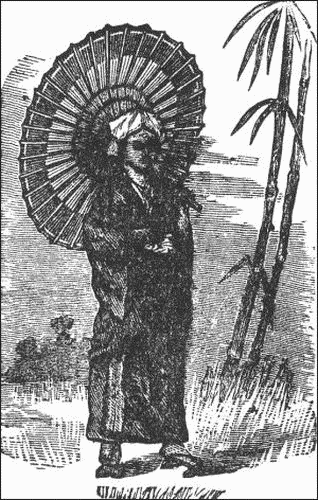


When you see a fellow mortal
Without fixed and fearless views,
Hanging on the skirts of others,
Walking in their cast off shoes,
Bowing low to wealth or favor,
With abject, uncovered head,
Ready to retract or waver,
Willing to be drove or led;
Walk yourself with firmer bearing,
Throw your moral shoulders back,
Show your spine has nerve and marrow,
Just the things which his must lack.
A stranger word
Was never heard,
In sense and tone,
Than this backbone.
When you see a politician
[Pg 131]
Crawling through contracted holes,
Begging for some fat position,
In the ring or at the polls,
With no sterling manhood in him,
Nothing stable, broad or ballast,
Double-sided all around;
Walk yourself with firmer bearing,
Throw your moral shoulders back,
Show your spine has nerve and marrow,
Just the things which his must lack.
A modest song and plainly told—
The text is worth a mine of gold;
For many men most sadly lack,
A noble stiffness in the back.
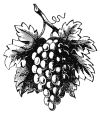
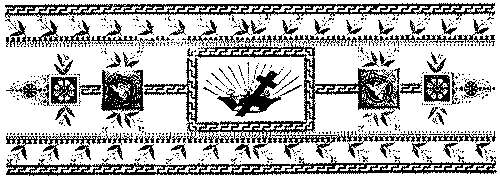

Sir Walter Scott immortalized the sagacity of a dog named Yarrow, who was the accomplice of his master, Millar, a shepherd, and of Murdison, a farmer, in the sheep-stealing expeditions which they carried on, more than a century ago, in the Tweed country. All that Millar had to do was to show Yarrow during the day the sheep which were to be stolen, and at night the dog made straight for the flock, got together the marked members of it, and drove them by roundabout paths to Murdison's farm.
Two things were particularly remarkable. In the first place, if Yarrow when thus employed met his master, he observed the utmost caution in recognizing him, lest he might make him the object of suspicion; [Pg 133] in the second, the dog seemed to have an idea that his practice was dishonest, and that darkness was the fittest season for such deeds. In the event of the sheep proving unwilling to leave their pasture, Yarrow would use every effort to urge them onwards, but whenever day began to break, he abandoned the attempt.
The dog was said to have been hanged with his master, for sheep-stealing, but Sir Walter Scott states that this was not the case, and that he survived Millar a long time, though he did not exhibit any of his wonderful instinct when in his second master's possession. Of course it was a great crime to put his skill to such a bad use, but there can be no doubt that Yarrow's sagacity fully justified Sir Walter in describing him as an "accomplished" dog.
To persevere in one's duty, and to be silent, is the best answer to calumny.
GEORGE WASHINGTON.
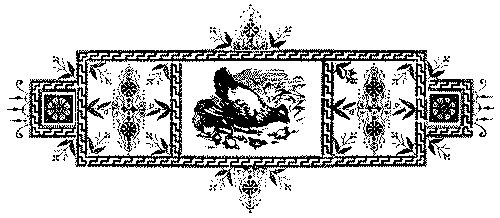
PHOEBE CARY.

If we knew the woe and heartache
Waiting for us down the road,
If our lips could taste the wormwood,
If our backs could feel the load—
Would we waste the day in wishing
For a time that ne'er can be;
Would we wait in such impatience
For our ships to come from sea?
If we knew the baby fingers
Pressed against the window pane,
Would be cold and stiff to-morrow—
Never trouble us again—
Would the bright eyes of our darling
Catch the frown upon our brow?
Would the prints of rosy fingers
Vex us then as they do now?
Ah, those little ice-cold fingers,[Pg 135]
How they point our memories back
To the hasty words and actions
Strewn along our backward track!
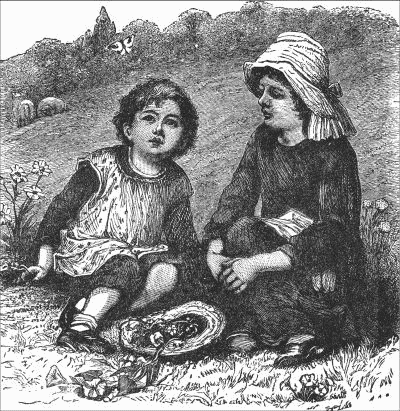
D. BETHUNE DUFFIELD.
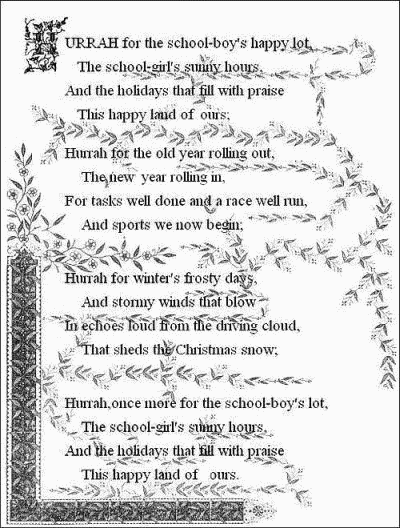


How beautiful looked everything out in the fields! It was summer, and the corn was yellow, the oats were green, the hay-ricks were standing in the verdant meadows, and the stork was walking about on his long, red legs, chattering away in Egyptian—the language he had learned from his lady-mother. The corn-fields and meadows were surrounded by large forests, in the middle of which lay deep lakes. Oh! it was lovely indeed to walk abroad in the country just then.
In a sunny spot stood an old country-house, encircled by canals. Between the wall and the water's edge there grew huge burdock-leaves, that had shot up to such a height that a little child might have stood [Pg 139] upright under the tallest of them; and this spot was as wild as though it had been situated in the depths of a wood.
In this snug retirement a duck was sitting on her nest to hatch her young: but she began to think it a wearisome task, as the little ones seemed very backward in making their appearance; besides, she had but few visitors; for the other ducks preferred swimming about in the canals, instead of being at the trouble of climbing up the slope, and then sitting under a burdock leaf to gossip with her.
At length one egg cracked, and then another. "Peep! peep!" cried they, as each yolk became a live thing, and popped out its head.
"Quack! quack!" said the mother, and they tried to cackle like her, while they looked all about them under the green leaves; and she allowed them to look to their hearts' content, because green is good for the eyes.
"How large the world is, to be sure!" said the young ones. And truly enough, they had rather more room than when they were still in the egg-shell.
"Do you fancy this is the whole world?" cried the mother. "Why, it reaches far away beyond the other side of the garden, down to the parson's field; though I never went such a distance as that! but are [Pg 140] you all there?" continued she, rising. "No, faith! you are not; for there still lies the largest egg. I wonder how long this business is to last—I really begin to grow quite tired of it." And she sat down once more.
"Well, how are you getting on?" inquired an old duck, who came to pay her a visit.
"This egg takes a deal of hatching," answered the sitting duck, "it won't break; but just look at the others, are they not the prettiest ducklings ever seen? They are the image of their father, who, by-the-bye, does not trouble himself to come and see me."
"Let me look at the egg that won't break," quoth the old duck. "Take my word for it, it must be a guinea-fowl's egg. I was once deceived in the same way, and I bestowed a deal of care and anxiety on the youngsters, for they are afraid of water. I could not make them take to it. I stormed and raved, but it was of no use. Let's see the egg. Sure enough, it is a guinea-fowl's egg. Leave it alone, and set about teaching the other children to swim."
"I'll just sit upon it a bit longer," said the duck; "for since I have sat so long, a few days more won't make much odds."
"Please yourself," said the old duck, as she went away.
At length the large egg cracked. "Peep! peep!" squeaked the youngster, as he crept out. How big and ugly he was, to be sure! The duck looked at him, saying: "Really this is a most enormous duckling! None of the others are like him. I wonder whether he is a guinea-chick after all? Well, we shall soon see when we get down to the water; for in he shall go, though I push him in myself."
On the following morning the weather was most delightful, and the sun was shining brightly on the green burdock-leaves. The mother duck took her young brood down to the canal. Splash into the water she went. "Quack! quack!" cried she, and forthwith one duckling after another jumped in. The water closed over their heads for a moment; but they soon rose to the surface again, and swam about so nicely, just as if their legs paddled them about of their own accord; and they had all taken to the water; even the ugly, gray-coated youngster swam about with the rest.
"Nay, he is no guinea-chick," said she, "only look how capitally he uses his legs, and how steady he keeps himself—he's every inch my own child! And really he's very pretty when one comes to look at him [Pg 142] attentively. Quack! quack!" added she; now come along, and I'll take you into high society, and introduce you to the duck-yard; but mind you keep close to me, that nobody may tread upon you; and above all, beware of the cat."
They now reached the farm-yard, where there was a great hubbub. Two families were fighting for an eel's head, which, in the end, was carried off by the cat.
"See, children, that's the way with the world!" remarked the mother of the ducklings, licking her beak, for she would have been very glad to have had the eel's head for herself. "Now, move on!" said she, "and mind you cackle properly, and bow your head before that old duck yonder; she is the noblest born of them all, and is of Spanish descent, and that's why she is so dignified; and look! she has a red rag tied to her leg, which is the greatest mark of distinction that can be bestowed upon a duck, as it shows an anxiety not to lose her, and that she should be recognized by both beast and man. Now cackle—and don't turn in your toes; a well-bred duckling spreads his feet wide apart, like papa and mamma, in this sort of way. Now bend your neck and say 'Quack!'"
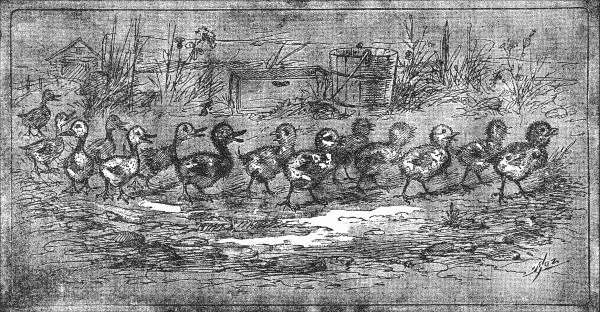
"WHAT A QUEER LOOKING CHAP ONE OF THE DUCKLINGS IS TO BE SURE!"
The ducklings did as they were bid; but the other [Pg 144] ducks, after looking at them, only said aloud; "Now look! here comes another set, as if we were not numerous enough already. And bless me! what a queer looking chap one of the ducklings is to be sure—we can't put up with him!" And one of the throng darted forward and bit him in the neck.
"Leave him alone," said the mother, "he did no harm to anyone."
"No; but he is too big and uncouth," said the biting duck, "and therefore he wants a thrashing."
"Mamma has a sweet little family," said the old duck with the rag about her leg; "they are all pretty except one, who is rather ill-favored. I wish mamma could polish him a bit."
"I'm afraid that will be impossible, your grace," said the mother of the ducklings. "Its true, he is not pretty, but he has a very good disposition, and swims as well, or perhaps better than all the others put together. However, he may grow prettier, and perhaps become smaller; he remained too long in the egg-shell, and therefore his figure is not properly formed." And with this she smoothed down the ruffled feathers of his neck, adding: "At all events, as he is a male duck, it won't matter so much. I think he'll prove strong, and be able to fight his way through the world."
"The other ducklings are elegant little creatures," said the old duck. "Now, make yourself at home; and if you should happen to find an eel's head, you can bring it to me."
And so the family made themselves comfortable.
But the poor duckling who had been the last to creep out of his egg-shell, and looked so ugly, was bitten, pushed about, and made game of, not only by the ducks, but by the hens. They all declared he was much too big; and a guinea-fowl who fancied himself at least an emperor, because he had come into the world with spurs, now puffed himself up like a vessel in full sail and flew at the duckling, and blustered till his head turned completely red, so that the poor little thing did not know where he could walk or stand, and was quite grieved at being so ugly that the whole farm-yard scouted him.
Nor did matters mend the next day, or the following ones, but rather grew worse and worse. The poor duckling was hunted down by everybody. Even his sisters were so unkind to him, that they were continually saying, "I wish the cat would run away with you, you ugly creature!" While his mother added: "I wish you had never been born!" And the ducks pecked at him, the hens struck him, and the girl who fed the poultry used to kick him.
So he ran away, and flew over the palings. The little birds in the bushes were startled, and took wing. "That is because I am so ugly," thought the duckling as he closed his eyes, though he ran on further till he came to a large marsh inhabited by wild ducks. Here he spent the whole night—and tired and sorrowful enough he was.
On the following morning when the wild ducks rose and saw their new comrade, they said: "What sort of a creature are you?" Upon which the duckling greeted them all round as civilly as he knew how.
"You are remarkably ugly," observed the wild ducks, "but we don't care about that so long as you do not want to marry into our family." Poor, forlorn creature! He had truly no such thoughts in his head. All he wanted was to obtain leave to lie among the rushes, and drink a little of the marsh water.
He remained there for two whole days, at the end of which there came two wild geese, or more properly speaking, goslings, who were only just out of the egg-shell, and consequently very pert.
"I say, friend," quoth they, "you are so ugly, that we should have no objection to take you with us for a traveling companion. In the neighboring marsh there dwell some sweet, pretty female geese, all of [Pg 147] them unmarried, and who cackle most charmingly. Perhaps you may have a chance to pick up a wife amongst them, ugly as you are."
Pop! pop! sounded through the air, and the two wild goslings fell dead amongst the rushes, while the water turned as red as blood. Pop! pop! again echoed around, and whole flocks of wild geese flew up from the rushes. Again and again the same alarming noise was heard.
It was a shooting party and the sportsmen surrounded the whole marsh, while others had climbed into the branches of the trees that overshadowed the rushes. A blue mist rose in clouds and mingled with the green leaves, and sailed far away across the water; a pack of dogs next flounced into the marsh. Splash, splash they went, while the reeds and rushes bent beneath them on all sides.
What a fright they occasioned the poor duckling! He turned away his head to hide it under his wing, when lo! a tremendous looking dog, with his tongue lolling out, and his eyes glaring fearfully, stood right before him, opening his jaws and showing his sharp teeth, as though he would gobble up the poor little duckling at a mouthful!—but splash! splash! on he went without touching him.
"Thank goodness!" sighed the duckling, "I am so ugly that even a dog won't bite me."
And he lay quite still, while the shot rattled through the rushes, and pop after pop echoed through the air.
It was not till late in the day that all became quiet, but the poor youngster did not yet venture to rise, but waited several hours before he looked about him, and then hastened out of the marsh as fast as he could go. He ran across fields and meadows 'till there arose such a storm that he could scarcely get on at all.
Towards evening he reached a wretched little cottage, that was in such a tumble-down condition, that if it remained standing at all, it could only be from not yet having made up its mind on which side it should fall first. The tempest was now raging to such a height, that the duckling was forced to sit down to stem the wind, when he perceived that the door hung so loosely on one of its hinges, that he could slip into the room through the crack, which he accordingly did.
The inmates of the cottage were a woman, a tom-cat, and a hen. The tom-cat, whom she called her darling, could raise his back and purr; and he could even throw out sparks, provided he were stroked against [Pg 149] the grain. The hen had small, short legs, for which reason she was called Henny Shortlegs; she laid good eggs and her mistress loved her as if she had been her own child.
Next morning they perceived the little stranger, when the tom-cat began to purr and the hen to cluck.
"What's that?" said the woman, looking round. Not seeing very distinctly, she mistook the duckling for a fat duck that had lost its way. "Why, this is quite a prize!" added she; "I can now get duck's eggs, unless indeed it be a male! we must wait a bit and see."
So the duckling was kept on trial for three weeks, but no eggs were forthcoming. The tom-cat and the hen were the master and mistress of the house, and always said "We and the world"—for they fancied themselves to be the half, and by far the best half too, of the whole universe. The duckling thought there might be two opinions on this point; but the hen would not admit of any such doubts.
"Can you lay eggs?" asked she.
"No."
"Then have the goodness to hold your tongue."
And the tom-cat inquired: "Can you raise your back, or purr, or throw out sparks?"
"No."
"Then you have no business to have any opinion at all, when rational people are talking."
The duckling sat in a corner very much out of spirits, when in came the fresh air and the sunshine, which gave him such a strange longing to swim on the water, that he could not help saying so to the hen.
"What's this whim?" said she. "That comes of being idle. If you could either lay eggs or purr, you would not indulge in such fancies."
"But it is so delightful to swim about on the water!" observed the duckling, "and to feel it close over one's head when one dives down to the bottom."
"A great pleasure, indeed!" quoth the hen. "You must be crazy, surely! Only ask the cat—for he is the wisest creature I know—how he would like to swim on the water, or to dive under it. To say nothing of myself, just ask our old mistress, who is wiser than anybody in the world, whether she'd relish swimming and feeling the waters close above her head."
"You can't understand me!" said the duckling.
"We can't understand you? I should like to know who could. You don't suppose you are wiser than the tom-cat and our mistress—to say nothing of myself? Don't take these idle fancies into your head, child; but [Pg 151] thank Heaven for all the kindness that has been shown you. Have you not found a warm room, and company that might improve you? But you are a mere chatterbox, and there's no pleasant intercourse to be had with you. And you may take my word for it, for I mean you well. I say disagreeable things, which is a mark of true friendship. Now, look to it, and mind that you either lay eggs, or learn to purr and emit sparks."
"I think I'll take my chance and go abroad into the wide world," said the duckling.
"Do," said the hen.
And the duckling went forth, and swam on the water, and dived beneath its surface; but he was slighted by all other animals, on account of his ugliness.
Autumn had now set in. The leaves of the forests had turned first yellow, and then brown; and the wind caught them up, and made them dance about. It began to be very cold in the higher regions of the air, and the clouds looked heavy with hail and flakes of snow; while the raven sat on a hedge, crying "Caw! caw!" from sheer cold; and one began to shiver, if one merely thought about it. The poor duckling had a bad time of it.
One evening, just as the sun was setting in all its glory, there came [Pg 152] a whole flock of beautiful large birds from a large grove. The duckling had never seen any so lovely before. They were dazzlingly white, with long, graceful necks; they were swans. They uttered a peculiar cry, and then spread their magnificent wings, and away they flew from the cold country, to warmer lands across the open sea. They rose so high—so high that the ugly duckling felt a strange sensation come over him. He turned round and round in the water like a wheel, stretched his neck up into the air towards them, and uttered so loud and strange a cry, that he was frightened at it himself.
Oh! never could he again forget those beautiful, happy birds; and when they were quite out of sight, he dived down to the bottom of the water, and when he once more rose to the surface, he was half beside himself. He knew not how these birds were called, or whither they were bound; but he felt an affection for them, such as he had never yet experienced for any living creature. Nor did he even presume to envy them; for how could it have ever entered his head to wish himself endowed with their loveliness? He would have been glad enough if the ducks had merely suffered him to remain among them—poor, ugly animal that he was!
And the winter proved so very, very cold! The duckling was obliged to keep swimming about, for fear the water should freeze entirely; but every night, the hole in which he swam grew smaller and smaller. It now froze so hard that the surface of the ice cracked again; yet the duckling still paddled about, to prevent the hole from closing up. At last he was so exhausted, that he lay insensible, and became ice-bound.
Early next morning, a peasant came by, and seeing what had happened, broke the ice to pieces with his wooden shoe, and carried the duckling home to his wife, so the little creature was revived once more.
The children wished to play with him; but the duckling thought they meant to hurt him, and in his fright he bounced right into a bowl of milk, that was spirted all over the room. The woman clapped her hands which only frightened him still more, and drove him first into the butter-tub, then down into the meal-tub, and out again. What a scene then ensued! The woman screamed and flung the tongs at him; the children tumbled over each other in their endeavors to catch the duckling, and laughed and shrieked. Luckily, the door stood open, and he slipped through, and then over the fagots, into the newly-fallen snow, where he lay quite exhausted.
But it would be too painful to tell of all the privations and misery that the duckling endured during the hard winter. He was lying in a marsh, amongst the reeds, when the sun again began to shine. The larks were singing, and the spring had set in, in all its beauty.
The duckling now felt able to flap his wings: they rustled much louder than before, and bore him away most sturdily; and before he was well aware of it, he found himself in a large garden, where the apple-trees were in full blossom, and the fragrant elder was steeping its long, drooping branches in the waters of a winding canal. Oh, how beautiful everything looked in the first freshness of spring! Three magnificent white swans now emerged from the thicket before him; they flapped their wings, and then swam lightly on the surface of the water. The duckling recognized the beautiful creatures, and was impressed with feelings of melancholy peculiar to himself.
"I will fly towards those royal birds—and they will strike me dead for daring to approach them, so ugly as I am! But it matters not. Better to be killed by them, than to be pecked at by the ducks, beaten by the hens, pushed about by the girl that feeds the poultry, and to suffer want in the winter." And he flew into the water, and swam towards these splendid swans, who rushed to meet him with rustling wings, the [Pg 155] moment they saw him. "Do but kill me!" said the poor animal, as he bent his head down to the surface of the water, and awaited his doom. But what did he see in the clear stream? Why, his own image, which was no longer that of a heavy-looking dark grey bird, ugly and ill-favored, but of a beautiful swan!
It matters not being born in a duck yard, when one is hatched from a swan's egg!
He now rejoiced over all the misery and the straits he had endured, as it made him feel the full depth of the happiness that awaited him. And the large swans swam around him, and stroked him with their beaks.
Some little children now came into the garden, and threw bread-crumbs and corn into the water; and the youngest cried: "There is a new one!" The other children were delighted, too, and repeated: "Yes, there is a new one just come." And they clapped their hands, and capered about, and then flew to their father and mother, and more bread and cake was flung into the water; and all said: "The new one is the prettiest. So young and so lovely!" And the elder swans bowed before him.
He then felt quite ashamed, and hid his head under his wings. He did not himself know what to do. He was more than happy, yet none the prouder; for a good heart is never proud. He remembered how he had been pursued, and made game of; and now he had heard everybody say he was the most beautiful of all beautiful birds. Even the elder-bush bent its boughs down to him in the water, and the sun appeared so warm, and so mild! He then flapped his wings, and raised his slender neck, as he cried, in the fulness of his heart: "I never dreamed of such happiness while I was an ugly duckling."
LOWELL: "A GLANCE BEHIND THE CURTAIN."
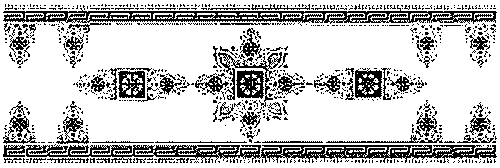

Then why do I sell it? you ask me again,
"Big cabin an' clearin, an' all?"
Well, stranger, I'll tell you, though may be you'll think
It ain't any reason at all.
There's plenty of hardship in pioneer life,
A hard workin' stint at the best;
But I'd stick to it yet, if it wasn't for this,
A heart like a log in my breast.
D'ye see, over there by the cotton-wood tree,
A climbin' rose, close by a mound,
Inside of a fence made of rough cedar boughs?—
Prairie wolves ain't too good to come round—
Well, Hetty, my darling old woman, lies there;
[Pg 158]
Not very old either, you see;
She wa'n't more'n twenty the year we come West;
She'd a been—comin' grass—thirty-three.
What a round little face an' a cheek like a peach
She had, little Hetty, be sure!
What courage to take me—she knew all the while
I was friendless and terrible poor!
How she worked with a will at our first little hut,
In the field and among garden stuff,
Till her forehead was burned, and her poor little hand,
Through its hardships, got rugged and rough.
But many a time, when I come in the door
Quite sudden, I've found her just there,
With eyelids all red, an' her face to the east
—You see, all her own folks was there.
I cheered her, an' told her we'd go by and by,
When the clearin' and plowin' was through;
And then came the baby—he wa'n't very strong,
So that Hetty had plenty to do.
But after awhile she got gloomy again;
[Pg 159]
She would hide in the corn-field to cry.
We hadn't no meetin' to speak of, you see,
No woman to talk to was nigh.
An' she wanted to show little Joe to the folks;
She was hungry, I s'pose, for the sight
Of faces she'd seen all the days of her life.
That was natteral, stranger, an' right.
But just when she thought to go over the Plains
The devils of Sioux was about;
So poor Hetty waited a harvest or two,
Through the summer of locusts and drought.
That left us poor people. The next coming spring
Such a wearisome fever came round;
An', stranger—hold on till I tell you—there now,
It laid little Joe in the ground.
I know'd then I'd got to send Hetty off East,
If I cared about keepin' her here:
She pined to a shadder, an' moped by his grave,
Though her eyes brighter grew, and more clear.
If you'd seen her poor face, when I told her I'd go
[Pg 160]
And take her home visitin'! Well,
I'll never forget how she put out her hands
Into mine, an', fur joy, cried a spell.
She didn't feel strong though, that week or the next,
An' the cough an' the fever increased;
While softly she whispered—she couldn't speak loud—
"You'll take me by'm-by to the East?"

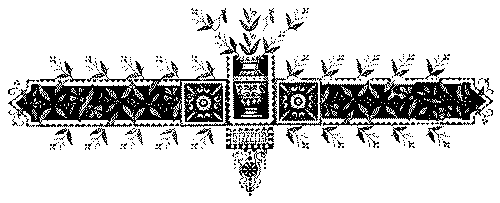

Many years ago there was a young prince named Willful, who was, as his name indicates, a very willful boy. He was lazy and careless, and would not go to school or learn his lessons if he could help it.
His father, whose name was Felix, was a great and good king. He had reigned many years, had filled his treasury with gold, and made many wise laws for the welfare of his people. He was very anxious that his son should grow up an educated and refined man; and he tried by kind words and wholesome advice to show him the necessity of work and the folly of idleness. But Willful paid no heed to his father's words, and daily grew more indolent.
At last the king could bear it no longer; and he said that if the prince would not learn from books, he should be taught in a way not so pleasant. Accordingly he called Willful to him one day and told him that he was going to send him away from home, and that he could not return until by watching the birds, the beasts and the insects he had learned the three lessons most necessary for a prince to know.
He did not say what these lessons were, but left that for the boy to find out himself. Then he gave Willful a golden cross to protect him from harm, a magic glass to magnify even the tiniest creatures, and a curious fan-shaped instrument, by which the languages of the animal-world might be understood.
With these to assist him, Willful started on his journey. He visited many countries and saw many wonderful things, but it was a long time before he learned anything from what he saw, for he was so proud that he thought nothing could teach him.
But one day he was lying down in the shade of a tree, and was looking around for some object of interest, when he saw a number of ants going up and down the tree in great haste. He further noticed that when two ants met they would stop and touch each other with the little horns on their heads, just as people shake hands.
This amused Willful, and he wished to know its meaning, so he took out his hearing fan, and placing it to his lips he found that one ant said to the other, "Good morning, Mr. Ant; fine day. Been to breakfast?" to which the other replied pleasantly, and passed on.
While he was watching these tiny creatures, he saw one which appeared very much excited over something. It stopped one of its friends who was going up the tree, and said, "Have you seen my goats this morning? I went up to milk them a few moments ago; and can not find them anywhere." "Yes," replied the other, "They got over into my pasture; come with me and I will find them for you." Then the two went up the tree and disappeared.
Willful's curiosity was thoroughly aroused; so he climbed the tree, and, crawling out upon one of the branches, took out his magic glass and looked around to see what the ants meant by their "goats."
Soon he found the two ants, with a herd of tiny plant lice feeding on a large leaf. Then he knew what the ant meant by his "goats."
The lost goats were soon picked out, and their master proceeded to milk them.
Willful was so interested by these singular creatures that he determined to study their habits; so, descending from the tree he [Pg 164] searched for the anthills. Then he spent hours in watching their occupants, and he learnt many things of benefit to him.
He found that they had a regular government, which was as well organized as any human kingdom; and that in some respects they surpassed mankind, for they had reached the point where everything was held in common, yet quarrels over the right of property were unknown. Each had its own labor to perform and none were allowed to be idle. In fact, Willful thought he had never seen, even in his own country, so peaceable, happy, and contented a people as were these occupants of the sand-hills.
"Surely," thought he, "I know now the value and importance of industry." After this the prince was not so proud as he once had been; but was more ready to learn from whatever he saw.
One day he had the misfortune to tear his cloak, and he was at a loss to mend it, for he had never even seen anyone sew. All his clothes were made for him by the king's tailors, and he had no thought of how it was done.
He was sore perplexed and was wondering what he should do, when he was startled by hearing a sharp, shrill voice utter these words,—
"Come here, children, you are now too large to spend your entire time in play; you must learn to make your house."
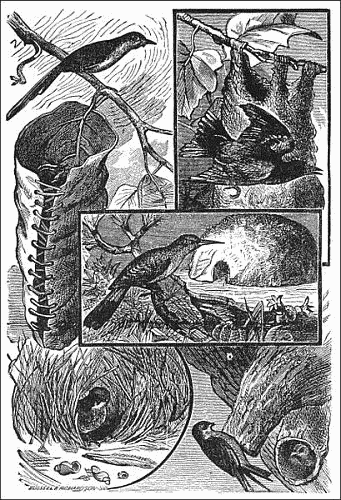
WHAT WILLFUL SAW.
At first Willful thought it was a woman calling,—for he had forgotten that he had his magic fan in his hand—but looking around, he saw a bird perched upon a limb, and several birdlings flitting around her. At the words of their mother, they all clustered around her, and the lesson began.
She first selected some fibers, and then quickly twisted them into a good, stout thread, holding one end with her claws. Then she ran it through a little hole in her beak, and thus she had a needle and thread. With these she proceeded to sew together a few leaves, so as to form a little pocket or nest, and lining it with some moss which was gathered near by, she had a capital nest, large enough for herself and little ones.
Willful watched this queer bird with great interest, the more so because it taught him a valuable lesson.
Following the bird's example he contrived to find a needle and thread, consisting of a sharp, stout thorn, and some long, tough grass, with which he mended his torn garment. Willful thought that he had learned from the habits of these creatures, another and valuable lesson, but he was now anxious to see something of methods of warfare among animals.
He did not have to wait very long, for in a little while after the sewing lesson, he traveled over a very level country, which seemed to be mostly inhabited by large herds of buffalo.
The pest of these creatures was the prairie wolves, which were found in great numbers. Often, driven by hunger, they would scent their prey, and a large pack of them would attack the buffalo in great fury.
When the buffalo herd was approached by these hungry packs, some old bull would give a great bellow of warning and the whole mass would prepare for defense.
The cows, calves, and weaker ones would huddle together and the strong bulls would form a circle around them with their heads outward; their horns making such a defense against attack as soldiers with bayonets.
The wolves would try to break through the circle, but if one came too near, he was sure to be tossed high into the air, howling and bleeding. They would gather in a body and all rush at one bull, but many were sure to be gored by his fierce horns before they could bring him down, and no sooner was he down than his place was filled by another bull, ready to receive the next attack of the wolves.
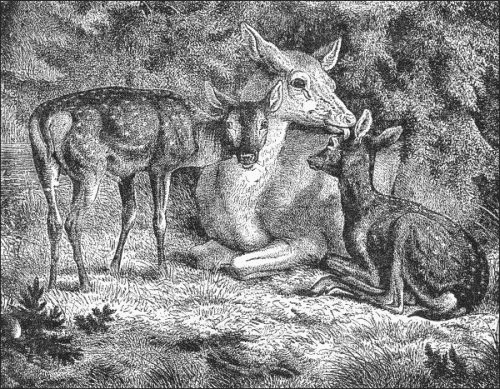
HID IN THE FOREST.
After awhile the whole pack would get tired of [Pg 169] such costly fighting and leave the buffaloes in peace.
Willful witnessed several of these battles, and he was much impressed with the skill and bravery of the horned tribe.
He learned much of great importance on the art of warfare; and this he thought was the last of the three lessons. So he turned his journey homewards and in due season reached his father's palace, where he was welcomed with joy.
On the day after his return he was summoned to a meeting of the wise men of the kingdom, and in their presence was asked by the king what three lessons he had learned.
Then Willful in an humble manner, unlike his former character, replied:—"These, my father, are the lessons that my observation has taught me: First,—That even a prince may learn from the smallest of God's creatures. Second—That a government is strong only when each citizen has some honest means of earning a living, and receives a suitable reward for his labor. Third—That it is best to fight only when attacked, and then to die, if need be, in defense of what we love."
Then the people applauded him, for they saw that he had grown in wisdom and had become a fit king for his people.
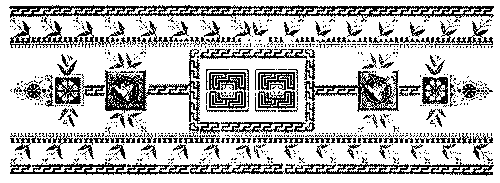
F. BRET HARTE.

"My sister'll be down in a
minute, and says you're to wait, if you please;
And says I might stay till she came, if I'd promise her never to tease,
Nor speak 'till you spoke to me first,
But that's nonsense; for how would you know
What she told me to say, if I didn't?
Don't you really and truly think so?
"And then you'd feel strange here alone,
And you wouldn't know just where to sit;
For that chair isn't strong on its legs, and we never use it a bit;
We keep it to match with the sofa; but Jack says it would be like you
[Pg 171]
To flop yourself right down upon it, and knock out the very last screw.
"Suppose you try! I won't tell. You're afraid to! Oh! you're afraid they would think it mean!
Well, then, there's the album; that's pretty, if you're sure that your fingers are clean.
For sister says sometime, I daub it; but she only says that when she's cross.
That's her picture. You know it? Its like her; but she ain't good-looking, of course.
"This is me." Its the best of 'em all. Now tell me, you'd never have thought
That once I was as little as that? Its the only one that could be bought;
For that was the message to pa from the photograph man when I sat,—
That he wouldn't print off any more, till he first got his money for that.
"What? Maybe you're tired of waiting. Why, often she's longer than this.
There's all her back hair to do up, and all her front curls to friz.
But its nice to be sitting here talking like grown people, just you and me!
[Pg 172]
Do you think you'll be coming here often?
Oh, do! But don't come like Tom Lee,—
"Tom Lee, her last beau, why, my goodness! he used to be here day and night,
Till the folks thought he'd be her husband; and Jack says that gave him a fright.
You won't run away then, as he did? for you're not a rich man, they say.
Pa says you're as poor as a church-mouse. Now, are you? and how poor are they?
"Ain't you glad that you met me? Well, I am; for I know now your hair isn't red;
But what there is left of it's mousy, and not what that naughty Jack said.
But there I must go; sister's coming!
But I wish I could stay, just to see
If she ran up to you, and she kissed you, in the way that she used to kiss Lee."



There was once upon a time a king who had seven sons. He loved them all so much that he could never do without them all at once; one had always to be with him. When they were grown up, six of them set out to woo. But the father kept the youngest son at home, and for him the others were to bring back a princess to the palace. The king gave the six the finest clothes you ever set your eyes upon, and you could see the glitter of them a long way off, and each had his own horse, which cost many, many hundred dollars, and so they set out on the journey.
After having been to many royal palaces and seen all the princesses there, they came at last to a king who had six daughters; such lovely princesses they had never seen, and so each of them began wooing one [Pg 174] of the six sisters, and when they had got them for sweethearts, they set out for home again; but they quite forgot to bring a princess with them for Ash-ie-pat-tle, [1] who was left at home, so busy were they making love to their sweethearts.
When they had journeyed a good bit of the way, they passed close to the side of a steep mountain, where there was a giant's castle. As soon as the giant saw them, he came out and turned them all, princes and princesses, into stone. But the king waited and waited for his six sons, but no sons came. He was very sad, and said that he should never be glad again.
"Had you not been left to me," he said to Ash-ie-pat-tle, "I should not care to live any longer. I am so sad because I have lost your brothers."
"But I have been thinking to ask for leave to set out and find them, I have," said Ash-ie-pat-tle.
"No, I cannot let you go," said his father; "I shall lose you as well."
But Ash-ie-pat-tle would go, and he begged and prayed till the king gave him leave to go. The king had no other horse to give him but an old jade, for his six brothers and their men had taken all the other [Pg 175] horses, but Ash-ie-pat-tle did not mind that; he mounted the shabby old nag.
"Good-bye, father," said he to the king, "I shall come back, sure enough, and who knows but I shall have my six brothers with me as well," and off he started.
Well, when he had got a bit on his way, he came to a raven, which was lying in the road flapping his wings, and was unable to get out of his way, it was so famished. "Oh, dear friend, give me something to eat, and I will help you in your utmost need," said the raven.—"very little food have I," said the prince, "and you don't look as if you could help me much either, but a little I must give you for you want it badly, I see," and then he gave the raven some of the food he had with him.
When he had traveled some distance further he came to a stream. There he saw a big salmon, which had got ashore and was dashing and knocking itself about and could not get into the water again, "Oh, dear friend, help me into the water again," said the salmon to the prince, "and I will help you in your utmost need."—"I don't suppose it can be much of a help you can give me," said the prince, "but it is a pity you should lie there and very likely perish," so he shoved the fish into the stream again.
So he traveled a long, long way, till he met a wolf, which was so famished that he was only able to drag himself along the road. "Dear friend, give me your horse," said the wolf. "I am so hungry, I hear the wind whistling in my empty stomach. I have had nothing to eat for two years."
"No," said Ash-ie-pat-tle, "I can't do it; first I came to a raven which I had to give all my food to; then I came to a salmon which I had to help back into the water; and now you want my horse. But that is impossible, for then I should have nothing to ride upon."
"Yes, yes, my friend, but you must help me," said the wolf, "you can ride on me instead; I shall help you again in your utmost need."
"Well, the help you can give me will not be great; but I suppose you must have the horse then, since you are so needy," said the prince. And when the wolf had finished the horse Ash-ie-pat-tle took the bridle and put the bit in the wolf's mouth and the saddle on his back, and the wolf felt now so strong and well after what he had had to eat, that he set off with the prince as if he were nothing at all; Ash-ie-pat-tle had never ridden so fast before.
"When we get a little bit further I will show you a giant's castle," said the wolf, and in a little while they came there. "See, here is [Pg 177] the giant's castle," said the wolf again, "and there you see all your six brothers, whom the giant has turned into stone, and there are their six brides. Over yonder is the door of the castle, and you must go in there."
"I dare not," said the prince, "the giant will kill me."
"Not at all," answered the wolf; "when you go in there you will meet a princess. She will tell you what to do to make an end of the giant. Only do as she tells you."
Well, Ash-ie-pat-tle went into the castle, but to tell the truth he felt rather afraid. When he got inside, he found the giant was out; but in a chamber sat the princess, just as the wolf had said. Such a lovely maiden Ash-ie-pat-tle had never seen before.
"Good heavens! what has brought you here?" said the princess as soon as she saw him. "It's sure to be your death; no one can kill the giant who lives here, for he hasn't got any heart."—"But now when I am here, I suppose I had better try my strength with him," said Ash-ie-pat-tle, "and I must see if I can't release my brothers who are standing outside here, turned into stone, and I will try to save you as well."
"Well, since you will stop, we must try and do the best we can," said the princess. "You must creep under the bed over there and listen well to what he says when I speak with him, and be sure to lie as quiet as you can."
So Ash-ie-pat-tle crept under the bed, and no sooner had he done so than the giant came home. "Ugh, what a smell of Christian blood there is here," shouted the giant.—"Yes, a magpie flew over the house with a man's bone and let it fall down the chimney," said the princess; "I made haste to throw it out, but the smell doesn't go away so soon."
So the giant said no more about it, and when evening came, they went to bed. When they had lain awhile, the princess said: "There is one thing I wanted so very much to ask you about, if I only dared."
"Well, what can that be?" asked the giant.
"I should so like to know where your heart is, since you don't carry it about you," said the princess.
"Oh, that's a thing you needn't know anything about," said the giant, "but if you must know, it's under the stone slab in front of the door."—"Ah, ha! we shall soon see if we can't find that," said Ash-ie-pat-tle to himself under the bed.
Next morning the giant got up very early and set out for the wood, but no sooner was he out of sight than Ash-ie-pat-tle and the princess commenced looking for the heart under the door-slab, but although they dug and searched all they could, they could not find anything. "He has made a fool of me this time," said the princess; "but I must try him again." So she picked all the prettiest flowers she could find and strewed them over the door-slab, which they put in its right place again.
When the time came for the giant to return home, Ash-ie-pat-tle crept under the bed, and he had scarcely got well under before the giant came in. "Ugh, what a smell of Christian blood there is here," screamed the giant.—"Yes, a magpie flew over the house and dropped a man's bone down the chimney," said the princess; "I made haste to clear it away, but I suppose the smell hasn't gone away yet."
So the giant said no more about it, but in a little while he asked who it was that had been strewing flowers around the door-slab. "Why, I, of course," said the princess.—"And what's the meaning of it?" asked the giant.—"Well, you know I am so fond of you," said the princess, "that I couldn't help doing it when I knew that your heart was lying under [Pg 180] there."—"Ah, indeed," said the giant, "but it isn't there after all."
When they had gone to bed in the evening, the princess asked again where his heart was, because she was so very fond of him, she said, that she would so like to know it. "Oh, it's over in the cupboard on the wall there," said the giant. Ah, ha, thought both Ash-ie-pat-tle and the princess, we will soon try to find it.
Next morning the giant was early out of bed, and made for the wood again, but the moment he was gone Ash-ie-pat-tle and the princess were looking in the cupboard for the heart, but they looked and searched and found no heart.
"Well, we must try once more," said the princess. She hung flowers and garlands around the cupboard, and when the evening came Ash-ie-pat-tle crept under the bed again. Shortly the giant came in. "Ugh, Ugh!" he roared,"what a smell of Christian blood there is here."—"Yes, a magpie flew past here just now, and dropped a man's bone down the chimney," said the princess; "I made haste to throw it out, but I suppose that's what you still smell."
When the giant heard this, he said no more about it; but as soon as he saw the cupboard decked out with flowers and garlands, he asked who it was that had done that. It was the princess, of course.
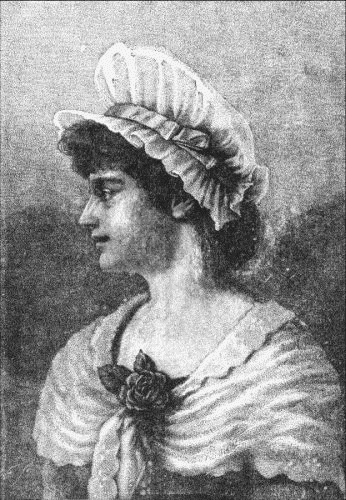
ASH-IE-PAT-TLE'S PRINCESS.
"But what's the meaning of all this foolery?" asked the giant.
"Well, you know how fond I am of you," said the princess, "I couldn't help doing it, when I knew your heart was there."
"How can you be so foolish to believe it?" said the giant.—"Well, how can I help believing it when you say so?" answered the princess.—"Oh, you are a foolish creature," said the giant, "you can never go where my heart is!"
"Ah, well," said the princess.—"but I should like to know for all that where it is."—So the giant could not refuse to tell her any longer, and he said: "Far, far away in a lake lies an island,—on that island stands a church,—in that church there is a well,—in that well swims a duck,—in that duck there is an egg,—and in the egg—well, there is my heart."
Early next morning, almost before the dawn of day, the giant set out for the wood again. "Well, I suppose I had better start as well," said Ash-ie-pat-tle; "I wish I only knew the way!"
He said farewell to the princess for a time, and when he came outside the castle there was the wolf still waiting for him. He told the wolf what had happened inside, and that he was now going to set out for the [Pg 183] well in the church, if he only knew the way. The wolf asked him to jump on his back,—he would try and find the way, sure enough, he said, and away they went over hills and mountains, over fields and valleys, while the wind whistled about them.
When they had traveled many, many days, they came at last to the lake. The prince did not know how he should get across it; but the wolf asked him only not to be afraid, and then he plunged into the water with the prince on his back and swam across to the island.
When they came to the church, they found the key for the church-door hanging high, high up on the steeple, and at first the young prince did not know how to get hold of it. "You will have to call the raven," said the wolf, which the prince did. The raven came at once, and flew up for the key, and so the prince got inside the church.
When he came to the well, the duck was there sure enough. It was swimming about just as the giant had said. He commenced calling and calling, and at last he lured her up to him and caught her. But just as he was lifting her out of the water, the duck let the egg fall in the well; and Ash-ie-pat-tle didn't know how to get it up again. "You had better call the salmon," said the wolf, which the prince did. The [Pg 184] salmon came and fetched the egg from the bottom of the well.
The wolf then told him to squeeze the egg, and as soon as Ash-ie-pat-tle squeezed it, they heard the giant screaming. "Squeeze it once more," said the wolf, and when the prince did so, the giant screamed still more piteously, and prayed so nicely and gently for himself; he would do all the prince wished, if he only wouldn't squeeze his heart to pieces.
"Tell him, that if he will give you back again alive your six brothers and their brides, which he turned into stone, you will spare his life," said the wolf, and Ash-ie-pat-tle did so.
Yes, the giant would do that at once, and he restored the six princes and the six princesses to life.—"Now, squeeze the egg to pieces," said the wolf. Ash-ie-pat-tle squeezed it flat between his hands, and the giant burst.
So when Ash-ie-pat-tle had got rid of the giant, he rode back again on his friend, the wolf, to the giant's castle, and there stood all his six brothers and their brides, all alive, and then Ash-ie-pat-tle went into the mountain for his own bride, and they all set out for their home, the royal palace. The old king was pleased, I can tell you, when all his seven sons came back, each with his bride. "But the loveliest [Pg 185] of all the princesses is Ash-ie-pat-tle's bride after all," said the king, "and he shall sit at the top of the table with her."
And then the wedding came off, and the king gave a grand feast which lasted for many a day, and if they have not done feasting by this, why they are still at it.
Footnote
[1] The favorite hero of most Norwegian fairy tales is called "Askeladen," a sort of male "Cinderella" and is always the youngest son of the family.
W. L. SMITH.

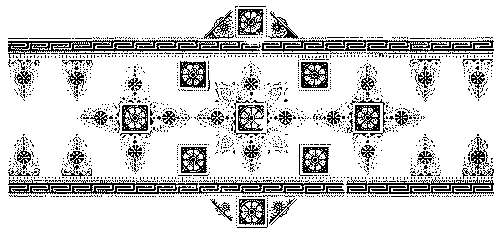
GEORGE L. CATLIN.

Mister," the little fellow said,
"Please give me a dime to buy some bread."
I turned to look at the ragged form,
That, in the midst of the pitiless storm,
Pinched, and haggard, and old with care,
In accents pleading, was standing there.
'Twas a little boy not twelve years old;
He shivered and shook in the bitter cold,
His eyes were red—with weeping, I fear—
And adown his cheeks there rolled a tear
E'en then.
We should make the same use of books that the
bee does of a flower: he
gathers sweets from it, but
does not injure it.
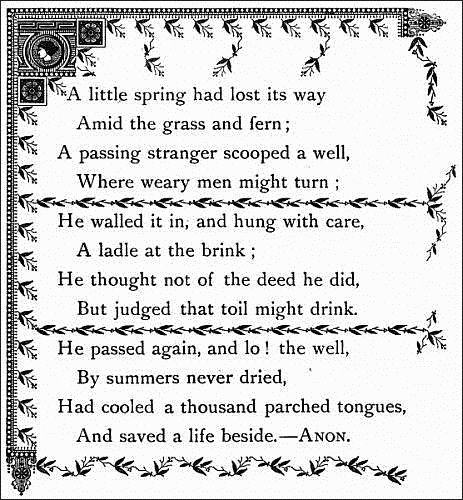
THOMAS MOORE: "LALLA ROOKH."
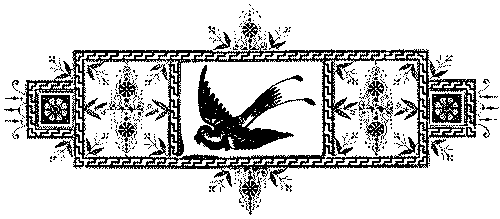

It was a hot summer day and Bayard was tired of playing horse with Ethel, or of swinging in the hammock; so he thought he would take a stroll in the fields back of the house, and, perhaps, go down as far as the creek. So he took his gun and started off.
Why he took the gun, Bayard himself could hardly have told; yet it was lucky he did take it, as we shall presently see.
The sun's rays were so scorching, and he got so warm walking, that when he arrived at the creek he thought he would lie down and rest. How cool it was under the trees, and how still it seemed! Not a sound was heard save the twittering of the birds, the babbling of the water over the stones, and the sound of the cow-bells in the neighboring pasture.
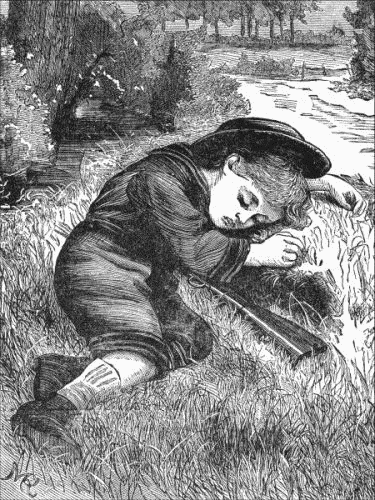
"LOST."
How Bayard wished he could see something to shoot. To be sure there [Pg 193] were the birds; but they looked so happy and sang so sweetly, that it seemed a pity to kill them, and then—they were so common! Anyone could shoot a bird, a squirrel, or a rabbit. Bayard wanted game of a larger kind. He would never waste powder on a bird. No, indeed!
Oh! if he were only in a country where there were plenty of lions and tigers! But then, he wasn't; yet he had heard his father tell about seeing bears in that neighborhood, and might be there was one roaming around even then.
What if one should come out of the woods! Wouldn't he kill it, though! The bear would be dead in less time than it takes to tell it. To doubt that would be rank heresy.
Halloa! What was that! Only a twig snapping. There it is again! Twig snaps some more,—heavy body. Bushes move! See there! See that brown thing! What's that, that gleams so,—eyes?
It—it's—a bear!
Sure enough,—just what Bayard has been wanting to see. Old Bruin comes out from the bushes and sniffs around.
Bayard's heart beats fast, and he trembles; but not from fear. Oh, no! Perish the man who would suggest such a thing.
Bruin sees Bayard and shows his teeth.
Bayard picks up his gun. Bear growls, and stands upon his hind legs.
Bayard raises his gun to his shoulder, his finger on the trigger. Bear comes nearer.
Bayard aims. Bang!
Has he killed it? Smoke clears away. No, the bear is still there; and he is thoroughly angry, too. Perhaps some of the shot has lodged in his side.
Bear utters a loud growl, and springs forward. Bayard now thoroughly frightened; but too much excited to run.
Bang! bang! Another shot.
Bear nearer; and now he has Bayard in his claws. Tight,—tighter, the bear hugs him,—Oh, dear!
Bayard can't get away! Can't breathe! Almost dead! Oh! Oh! Help! Help!
"Bayard!" "Bayard!"
What was that?
Bayard starts up; rubs his eyes, yawns; stretches; yawns again.
What! Has he been asleep? Yes, for there he is, safe and sound, his [Pg 195] gun on the grass, no bear in sight; and his mother is calling him to dinner.
And that is how Bayard shot the bear!
Indeed, he couldn't have shot it otherwise with his gun, for, don't you see, it was only a toy gun which Cousin Guy had given him as a birthday present.
PHILIP JAMES BAILEY: "FESTUS."
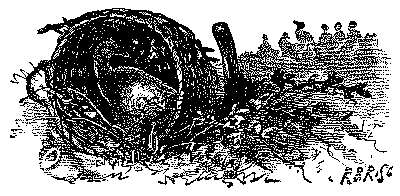
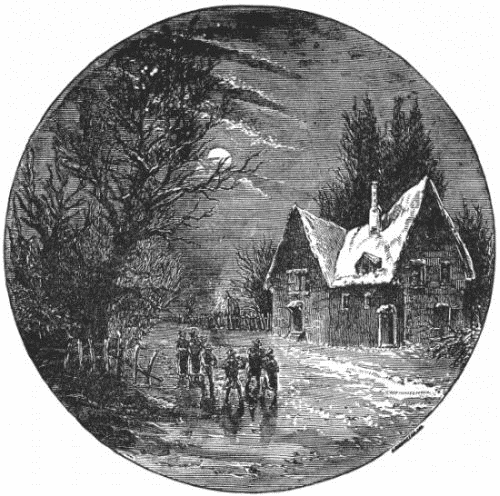

ALFRED TENNYSON.

Ring out, wild bells, to the wild sky,
The flying cloud, the frosty light;
The year is dying in the night;
Ring out wild bells, and let him die.
Ring out the old, ring in the new;
Ring, happy bells, across the snow;
The year is going, let him go;
Ring out the false, ring in the true.
Ring out the grief that saps the mind,
For those that here we see no more;
Ring out the feud of rich and poor,
Ring in redress to all mankind.
Ring out a slowly dying cause,
And ancient forms of party strife;
Ring in the nobler modes of life,
With sweeter manners, purer laws.
Ring out false pride in place and blood,
[Pg 198]
The civic slander and the spite;
Ring in the love of truth and right,
Ring in the common love of good.
Ring out old shapes of foul disease,
Ring out the narrowing lust of gold;
Ring out the thousand wars of old
Ring in the thousand years of peace.
Ring in the valiant man and free,
The larger heart, the kindlier hand;
Ring out the darkness of the land;
Ring in the Christ that is to be.

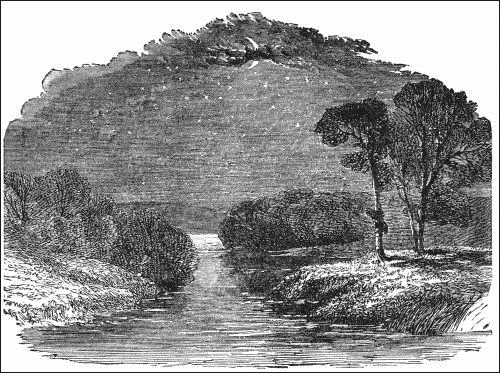
P. C. ASBJORNSEN.

There was once a poor tenant who had many children, but very little food or clothes to give them; they were all pretty children, but the prettiest was the youngest daughter, who was so lovely that there was almost too much of her loveliness.
So one Thursday evening, late in the autumn, when there was terrible weather and it was dreadfully dark out of doors, and it rained and blew as well till the wall creaked, they were all sitting by the hearth busy with something or other. All at once some one knocked three times on the window-pane. The good-man went out to see what was the matter; when he came outside he saw a great big white bear.
"Good evening!" said the white bear.
"Good evening!" said the man.
"Will you give me your youngest daughter, and I will make you as rich as you now are poor," said the bear.
Yes; the man thought it would be very nice to be so rich, but he must speak with his daughter first; so he went in and told her that a great white bear was outside, who promised that he would make them all rich if he could only get her. She said "No," and would not agree to any such arrangement; so the man went out and arranged with the white bear that he should come again next Thursday evening for an answer.
In the meantime they talked her round, and told her of all the riches they would come in possession of, and how fine she herself would have it in her new home; so at last she gave in to their entreaties and [Pg 201] began washing and mending her few rags and made herself look as well as she could, and was at last ready for the journey. Her baggage of course, was not much to speak of.
Next Thursday evening the white bear came to fetch her; she got up on his back with her bundle, and away they went. When they had gone some distance the white bear said: "Are you afraid?"—No, she wasn't afraid.—"Well, only hold tight by my coat and there's no danger," said the bear.
And so she rode far, far away, and came at last to a big mountain. The white bear knocked at it and a gate was opened, and they came into a castle where there were a great many rooms all lit up and gleaming with silver and gold, and amongst these was a great hall, where a table stood ready laid; in fact, all was so grand and splendid that you would not believe it unless you saw it. So the white bear gave her a silver bell, which she was to ring whenever there was anything she wanted, and her wishes would be attended to at once.
Well, when she had eaten, it was getting late in the evening, and she became sleepy after the journey so she thought she would like to go to bed. She rang the bell, and had scarcely touched it, before she was in a room, where she found such a beautiful bed as anyone could wish for, [Pg 202] with silken pillows and curtains, and gold fringes; everything else in the room was made of gold and silver. But when she had gone to bed and put out the light, she heard someone coming into the room and sitting down in the big arm-chair near the bed. It was the white bear, who at night could throw off his shape, and she could hear by his snoring as he sat in the chair that he was now in the shape of a man; but she never saw him, because he always came after she had put out the light, and in the morning before the day dawned he was gone.
Well, for awhile everything went on happily, but then she began to be silent and sorrowful, for she went about all day alone, and no wonder she longed to be home with her parents and her sisters and brothers again. When the white bear asked what ailed her, she said she was so lonely there, she walked about all alone, and longed for her home and her parents and brothers and sisters, and that was the reason she was so sad.
"But you may visit them, if you like," said the white bear, "if you will only promise me one thing. You must never talk alone with your mother, but only when there are others in the room. She will take you by the hand and try to lead you into a room to speak with you all by [Pg 203] yourself; but you must not do this by any means, or you will make us both unhappy, and bring misfortune over us."
One Sunday the white bear came and told her that they were now going to see her parents. Away they went, she sitting on his back, and they traveled far and long; at last they came to a grand white farm-house, where her sisters and brothers were running about. Everything was so pretty that it was a pleasure to see it.
"Your parents are living there," said the bear; "but mind you don't forget what I have said, or you will make us both unhappy." No, she would not forget it. When they came to the farm, the bear turned around and went away.
There was such a joy when she came in to her parents that there was no end to it. They said they did not know how to thank her fully for what she had done for them. They had everything they wanted, and everybody asked after her and wanted to know how she was getting on, and where she was living. She said that she was very comfortable and had everything she wished for; but what she otherwise answered I don't know, but I believe they did not get much out of her.
But one day after dinner it happened exactly as the white bear had said; her mother wanted to speak with her alone in her chamber. But she recollected what the bear had told her, and would not go with her. "What we have got to talk about, we can do at some other time," she said.
But somehow or other her mother talked her round at last, and so she had to tell her everything. She told her how a man came into her room every night as soon as she had put out the light, and how she never saw him, for he was always gone before the day dawned. She was sorrowful at this, for she thought she would so like to see him; and in the day-time she walked about there all alone and felt very lonely and sad.
"Oh, dear me!" said her mother, "it may be a troll for all we know! But I will tell you how you can get a sight of him. You shall have a piece of candle from me, and this you must take with you home in your bosom. When he is asleep, light that candle, but take care not to drop any of the tallow on him."—Yes, she took the candle and hid it in her bosom, and in the evening the white bear came and fetched her.
When they had gone some distance of the way the bear asked her if everything hadn't happened as he had said. Yes, she couldn't deny [Pg 205] that.—Well, if you have listened to your mother's advice you will make us both unhappy and all will be over between us," said the bear.—No, that she hadn't!
When she came home and had gone to bed, the same thing occurred as before. Some one came into the room and sat in the arm-chair by her bedside, but in the middle of the night when she heard that he was asleep, she got up and struck a light, lit the candle, and let the light fall on him. She then saw that he was the loveliest prince anyone could wish to see, and she fell at once in love with him; she thought that if she could not kiss him there and then she would not be able to live. And so she did, but she dropped three hot drops of tallow on him and he woke up.
"What have you done?" he said, "you have now made us both unhappy for ever, for if you had only held out one year I should have been saved. I have a stepmother who has bewitched me, and I am now a white bear by day and a man by night. But now all is over between us, and I must leave you and go back to her; she lives in a castle which lies east of the sun and west of the moon, and in the same castle there is a princess with a nose two yards long, and now I must marry her."
She wept and cried, but there was no help for it; he must go and leave her. So she asked him if she might not go with him. No, that was impossible!—"But if you will tell me the way, I will try and find you," she said. "I suppose I may have leave to do that!"—Yes, she could do that, he said, but there was no road to that place; it lay east of the sun and west of the moon, and she could never find her way there.
Next morning when she awoke, both the prince and the castle were gone; she lay on a little green field far in the middle of the dark, thick forest, and by her side lay the same bundle with her old rags, which she had brought with her from home. When she had rubbed the sleep out of her eyes and wept till she was tired, she set out on her way and walked for many, many a day, till she at last came to a big mountain.
Close to it an old woman sat and played with a golden apple. She asked her if she knew the way to the prince who lived with his stepmother in a castle that lay east of the sun and west of the moon, and who was going to marry a princess with a nose two yards long.
"How do you know him?" asked the old woman, "perhaps it was you who should have had him?"
Yes, it was she. "Ah, indeed! is that you?" said the woman; "well, all I know is that he lives in that castle which lies east of the sun and west of the moon, and thither you will come late or never; but I will lend you my horse and on him you can ride to my neighbor, an old friend of mine; perhaps she can tell you. When you have got there, just give my horse a blow with your whip under the left ear and ask him to go home again;—and you had better take this golden apple with you."
So she got up on the horse and rode a long, long time till she at last came to a mountain, where an old woman was sitting with a golden carding-comb. She asked her if she knew the way to the castle which lay east of the sun and west of the moon. She answered like the first old woman, that she didn't know anything about it, but it was sure to be east of the sun and west of the moon, "and thither you will come, early or late, but I will lend you my horse as far as my neighbor; perhaps she can tell you. When you have got there, just give my horse a blow under the left ear and ask him to go home again." And the old woman gave her the golden carding-comb, which might come in useful for her.
The young girl got up on the horse and rode for a long, long, weary time, and came at last to a large mountain, where an old woman was [Pg 208] sitting and spinning on a golden spinning-wheel. She asked her if she knew the way to the prince, and where the castle was that lay east of the sun and west of the moon. And so came the same question: "Perhaps it is you who should have had the prince?"—Yes, it was! But the old woman knew the way no better than the other two. It was east of the sun and west of the moon,—She knew that,—"and thither you will come, early or late," she said, "but I will lend you my horse, and I think you had better ride to the east wind and ask him. Perhaps he is known about those parts and can blow you there. When you have got there, just touch the horse under the ear and he'll go home again." And so she gave her the golden spinning-wheel. "You might find use for it," said the old woman.
She rode on many days for a long, weary time before she got to the east wind, but after a long time she did reach it, and so she asked him if he could tell her the way to the prince, who lived east of the sun and west of the moon. Yes, he had heard tell of that prince, said the east wind, and of the castle too, but he didn't know the way thither, for he had never blown so far. "But if you like, I'll go with you to my brother, the west wind. Perhaps he may know it, for he is much [Pg 209] stronger. Just get up on my back and I'll carry you thither."
Yes, she did so, and away they went at a great speed. When they got to the west wind, they went in to him, and the east wind told him that his companion was the one who should have had the prince who lived in the castle, which lay east of the sun and west of the moon; she was now on her way to find him again, and so he had gone with her to hear if the west wind knew where that castle was.
"No, I have never blown so far," said the west wind, "but if you like I'll go with you to the south wind, for he is much stronger than any of us, and he has been far and wide; perhaps he may tell you. You had better sit up on my back and I'll carry you thither."
Well, she got on his back, and off they started for the south wind; they weren't long on the way, I can tell you! When they got there, the west wind asked his brother if he could tell him the way to that castle which lay east of the sun and west of the moon. His companion was the one who should have had the prince who lived there.
"Oh, indeed!" said the south wind, "is that she? Well, I have been to many a nook and corner in my time, but so far I have never blown. But if you like, I'll go with you to my brother, the north wind; he is the [Pg 210] oldest and strongest of all of us, and if he doesn't know where it is you will never be able to find any one who can tell you. Just get up on my back and I'll carry you thither."
Yes, she sat up on his back, and away they went at such a rate, that the way didn't seem to be very long.
When they got to where the north wind lived he was so wild and unruly that cold gusts were felt a long way off. "What do you want?" he shouted from far away, but still it made them shiver all over.
"Oh, you needn't be so very harsh," said the south wind, "it's I, your own brother; and then I have got her with me who should have had the prince who lives in that castle which lies east of the sun and west of the moon, and she wants to ask you if you have ever been there and if you can tell her the way. She is very anxious to find him again."
"Well, yes, I do know where it is," said the north wind; I once blew an aspen leaf thither, but I was so tired that I wasn't able to blow for many days after. But if you really intend going there and you are not afraid to come with me, I will take you on my back and try if I can blow you so far."—Yes, she was willing; she must go thither, if it were possible, one way or another, and she wasn't a bit afraid, go how [Pg 211] it would.
"Very well!" said the north wind, "you must stop here to-night then, for we must have a whole day before us and perhaps more, if we are to reach it."
Early next morning the north wind called her, and then he blew himself out and made himself so big and strong that he was terrible to look at. Away they went, high up through the air at such a fearful speed, as if they were going to the end of the world. There was such a hurricane on land that trees and houses were blown down, and when they came out on the big sea, ships were wrecked by hundreds. And onwards they swept, so far, far, that no one would believe how far they went, and still farther and farther out to sea, till the north wind got more and more tired and so used up that he was scarcely able to give another blow, and was sinking and going down more and more; and at last they were so low that the tops of the billows touched their heels.
"Are you afraid?" said the north wind.—"No," she said, she wasn't a bit afraid. But they were not so very far from land either, and the north wind had just sufficient strength left to reach the shore and put her off just under the windows of the castle which lay east of the sun and west of the moon; but he was then so tired and worn out that he [Pg 212] had to rest for many days before he could start on his way home again.
Next morning she sat down under the castle windows, and began playing with the golden apple, and the first one she saw was the princess with the long nose, whom the prince was going to marry.
"What do you want for that golden apple of yours?" she asked, and opened the casement.—"It is not for sale, neither for gold nor money," said the girl.—"If it isn't for sale for gold or money, what do you want for it then?" said the princess; "I'll give you what you ask!"—"Well, if I to-night may sit in the arm-chair by the bedside of the prince who lives here, you shall have it," said the girl who came with the north wind.—Yes, she might do that, there would be no difficulty about that.
So the princess got the golden apple; but when the girl came up into the prince's bedroom in the evening, he was fast asleep; she called him and shook him, and now and then she cried and wept; but no, she could not wake him up so that she might speak to him. Next morning, as soon as the day dawned, the princess with the long nose came and turned her out of the room.
Later in the day she sat down under the castle windows and began carding with her golden carding-comb, and then the same thing happened again. The princess asked her what she wanted for the carding-comb, and she told her that it wasn't for sale, neither for gold nor money, but if she might get leave to sit in the arm-chair by the prince's bedside that night, she should have it. But when she came up into the bedroom she found him fast asleep again, and for all she cried and shook him, for all she wept, he slept so soundly that she could not get life into him; and when the day dawned in the early morning, in came the princess with the long nose and turned her out of the room again.
So as the day wore on, she sat down under the castle windows and began spinning on the spinning-wheel, and that the princess with the long nose wanted also to have. She opened the casement and asked the girl what she wanted for it. The girl told her, as she had done twice before, that it was not for sale, either for gold or money, but if she might sit in the arm-chair by the prince's bedside that night, she should have it. Yes, she might do that. But there were some Christian people who had been carried off and were imprisoned in the room next to the prince's, and they had heard that some woman had been in his room [Pg 214] and wept and cried and called his name two nights running, and this they told the prince.
In the evening, when the princess came and brought him his drink, he made appear as if he drank, but he threw it over his shoulder, for he felt sure she had put a sleeping draught in his drink.
So when the girl came into his room that night she found the prince wide awake, and then she told him how she had come there. "You have just come in time," said the prince, "for to-morrow I was to be married to the princess; but I won't have that Long-nose, and you are the only one that can save me. I will say that I want to see what my bride can do, and if she is fit to be my wife; then I will ask her to wash the shirt with the three tallow stains on it. She will try, for she does not know that it is you who dropped the tallow on the shirt; but that can only be done by Christian folks, and not by a pack of trolls like we have in this place; and so I will say that I will not have anybody else for a bride except the one who can wash the shirt clean, and I know you can do that." And they felt very glad and happy, and they went on talking all night about the joyful time in store for them.
The next day, when the wedding was to take place, the prince said: "I think I must see first what my bride can do!"—"Yes, quite so!" said the stepmother.
"I have got a very fine shirt, which I am going to use for my wedding shirt; but there are three tallow stains on it which I want washed out; and I have made a vow that I will not take any other woman for a wife than the one who is able to do that; if she cannot do that, she is not worth having," said the prince.
"Well, that was easy enough," said the stepmother and agreed to this trial. Well, the princess with the long nose set to washing the best she could, but the more she washed the bigger grew the stains. "Why, you cannot wash," said the old witch, her stepmother; "let me try!"—but no sooner did she take the shirt than it got still worse, and the more she washed and rubbed the bigger and blacker the stains grew.
So did the other trolls try their hands at washing, but the longer they worked at it the dirtier the shirt grew, till at last it looked as if it had been up the chimney. "Ah, you are not worth anything, the whole lot of you!" said the prince; "there's a poor girl under the window just outside here, and I am sure she can wash much better than any of [Pg 216] you. Come in, my girl!" he shouted out to her.—Yes, she would come in.—"Can you wash this shirt clean?" asked the prince.—"Well, I don't know," she said, "but I will try."
And no sooner had she taken the shirt and dipped it in the water, than it was as white as the driven snow, if not whiter. "Yes, you shall be my wife," said the prince. But the old witch flew into such a rage that she burst; and the princess with the long nose and all the trolls must have burst also, for I never heard of them since. The prince and his bride then set free all the people who had been carried off and imprisoned there, and so they took as much gold and silver with them as they could carry, and moved far away from the castle which lay east of the sun and west of the moon.
CHARLES KINGSLEY.
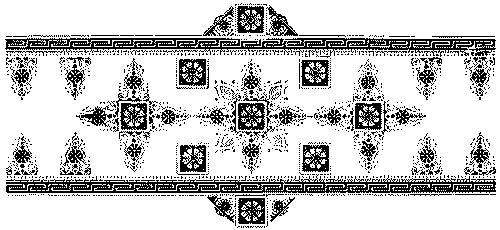
GEO. MAC DONALD.

Where did you come from, baby, dear?
Out of the everywhere into here.
Where did you get the eyes so blue?
Out of the sky as I came through.
Where did you get that little tear?
I found it waiting when I got here.
What makes your forehead so smooth and high?
A soft hand stroked it as I went by.
What makes your cheek like a warm, white rose?
I saw something better than anyone knows.
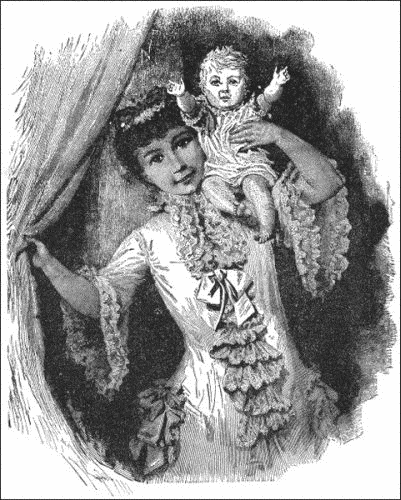
"FEET, WHENCE DID YOU COME."
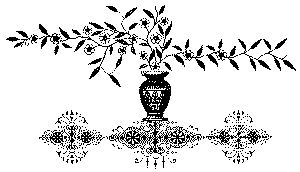
N. P. WILLIS.
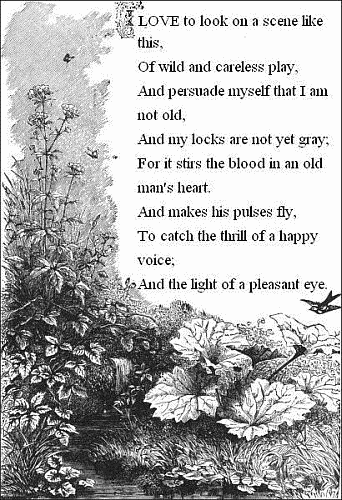
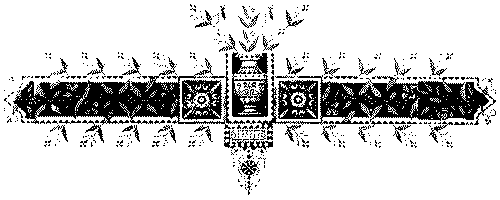
BARNEY CORNWALL.

In the hollow tree, in the old gray tower, The spectral owl doth dwell; Dull, hated, despised, in the sunshine hour, But at dusk he's abroad and well; Not a bird of the forest e'er mates with him, All mock him outright by day; But at night, when the woods grow still and dim, The boldest will shrink away; O, when the night falls, and roosts the fowl, Then, then, is the reign of the horned owl.
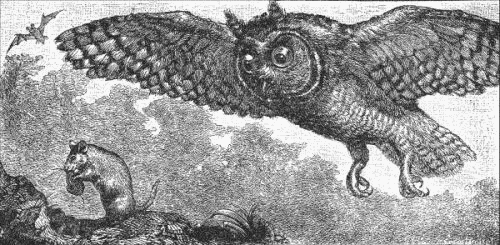
"THE KING OF THE NIGHT."
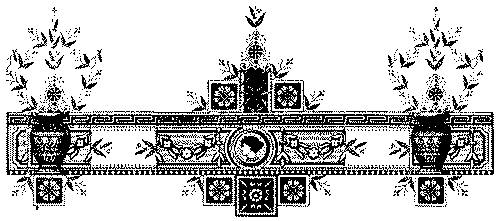
PHILLIP BAILEY.

OH, ho, hum! my sakes alive! Where is my old 'rithmetic? Here 'tis: five times one are five. This most makes a fellow sick! Let me see: well, four times eight, Guess I'll have to take a look; I'm so sick of this old slate. Wish the scamp that made this book Had to sleep on stacks of rules, Covered up with multiplication! Don't see who invented schools— Meanest things in all creation!
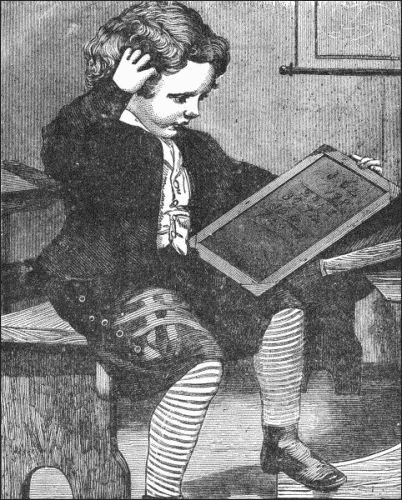
KEPT IN FOR STUDY.
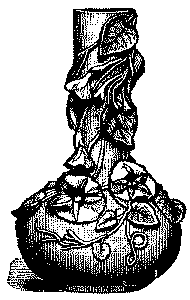
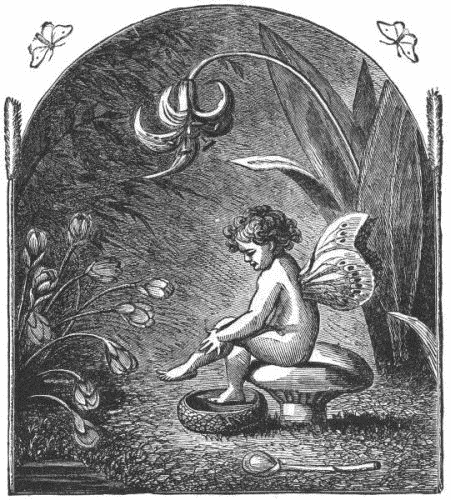
MRS. S. M. B. PIATT.

Let's see. We believe in wings,
We believe in the grass and dew,
We believe in the moon—and other things,
That may be true.
But are there any? Talk low.[Pg 229]
(Look! What is that eery spark?)
If there are any—why, there they go,
Out in the dark.
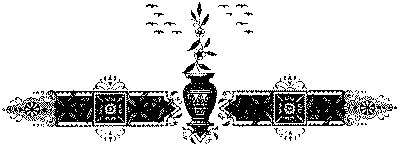
AN ALLEGORY.
LUCIE COBBE.


Many years ago, two little branches grew in a hedgerow; they were brothers, but their tastes were different. The younger one was lazy, and liked to stay in the shade; but the elder one kept pushing steadily upwards, and making all the haste to grow that he could.
He had seven leaves each side, but his brother had only three.
"Why can't you stay where you are?" said the younger one; "you are well in the middle of the hedge."
"I want to get higher," sighed the elder twig; "there is plenty to be seen outside."
And he kept growing taller and taller.
"You are going beyond us," cried his sister twigs, "bend down a little, brother."
"If I bent my back I should stop growing," said the twig; and he listened to catch their voices.
"Conceited fellow! he is trying to grow the tallest!" said some of the twigs; and a murmuring swept through the hedge.
One day more of pushing and striving, and he was nearly at the top of the hedge. He could no longer see his brother, but he called to him down through the branches.
"Brother, where are you?" he cried, "and what do you see down there?"
"I am wrapped up in softness," said the fair younger brother; "the green boughs are round me, the wind does not touch me—all round me is nothing but green. Just down below me grows a round, white daisy—oh, such a beautiful daisy! All the day long I am looking at her."
The first brother felt a little lonely when he heard all this, but the sun still drew him upward. The next day he was quite at the top of the hedge, and a head and shoulders taller than any of his brothers. The voice of his younger brother came up to him, but it sounded very faint and far away.
"Are you happy, brother, and what can you see up there?"
"I see the sky," said the elder twig; "there is blue all round me instead of green. I see trees that are taller than our hedge a great deal, and hills that are higher than all. I see white clouds like pillows, and birds that are lost in the clouds. Ah, I have longed for this! I feel a great joy and rapture to the end of my smallest leaf!"
"We don't know what you mean," said the younger one, "and there can't be anything higher than this hedge. And why do you speak so softly? We cannot hear half that you say."
"Insolent fellow! he is taller than any of us!" cried some of the twigs; but by this time he was too far off to hear their voices at all.
"I shall have a prize," said the twig to himself, "because I have grown so tall. What will it be? I will ask the swallow. Swallow, shall I have a gold crown?"
"No, not a crown," said the swallow, but something as good, I dare say. Far away down in the country I know of a twig like you. He grew far away from his fellows—so tall, and so strong, and so fair. He saw the world and all that was passing. He stretched right over the stile, and shaded those who sat there. He was painted by an artist, because he [Pg 233] was so lovely. And last of all a fair wild rose came and rested on his bosom."
"I shall get my reward," said the little twig; "my white rose will come at last."
Just then there came walking around the garden, the gardener with his great long shears.
"The hedge is growing uneven," he said; "here's a twig much longer than the rest."
Clip, clip, clip, went the great big shears, and the tallest twig lay broken in the dust!
"They are all of one size now, I am glad to see," said the gardener, and he went away contented to his work.
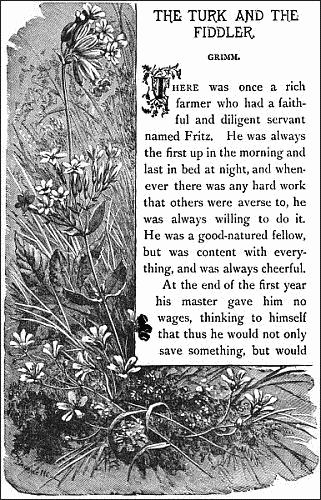
not only save something, but would also [Pg 235] retain the man in his service. To this Fritz never said a word, but stayed another year with him, working as hard as he had the first; and when at the close of the second twelve-month he still received no wages, he submitted to that too, and continued to serve on.
At the end of the third year his master bethought himself, and put his hand into his pocket as if to give him something, but took out nothing. Then Fritz said, "Master, I have worked hard for you these three years; pray give me now what is right for my trouble; I want to go out into the wide world, and look about me," The miser answered, "Yes, my good man, you have served me honestly and faithfully, and for this I will now reward you generously."
He then put his hand into his pocket, and took out three farthings, which he gave him, saying, "Here is a farthing for each year; this is a great and generous reward, such as you would not have got from any other master." The simple-hearted fellow, who knew very little about money, put the sum into his pocket, thinking to himself, "Now that my pocket is full of money, why should I plague myself with hard work any longer?"
So he set out, and roamed over hill and dale, singing and dancing with joy. One day, when passing by a bush, a dwarf popped out of it, and [Pg 236] accosted him, saying, "Whither away my merry fellow? I see your load of cares is not heavy to bear."
"Why should I be melancholy?" answered Fritz; "I have plenty of money; I have my three years' earnings safe in my pocket."
"How much may your treasure be?" said the dwarf. "How much? Three whole farthings," replied Fritz. "I wish you would give them to me," said the other; "I am very poor and needy, and can earn nothing; but you are young, and can easily work for your bread."
Then Fritz, who was very kind-hearted, took pity on the dwarf, and gave him his three farthings, saying, "Take them, I shall not be the worse off for the want of them," The dwarf then said, "As you have such a kind heart, I will grant you three wishes, one for each farthing; so choose whatever you like."
"My first wish," said Fritz, "is to have a fowling-piece that will bring down everything I shoot at; secondly, a fiddle that will set everyone dancing that hears me play on it; and thirdly, I should like to be able to make everyone grant me whatever I ask."
"All your wishes shall be fulfilled," said the dwarf. He thrust his hand into the bush, and only think! there lay the fiddle and the fowling-piece ready, as if they had been put there on purpose. So he [Pg 237] gave them to Fritz, adding, "And whatever you ask for, nobody in the world shall ever refuse you."
"What else can my heart wish for?" said Fritz to himself; "I now have everything that I can desire;" and so he journeyed merrily on his way. He had not gone far before he met an old Turk, bearded like a goat, who was standing near a tree, listening to the sprightly song of a bird perched on its topmost branch.
"Oh, what a wonderful bird!" exclaimed the Turk; "how can such a little creature have such a powerful voice? Oh, if he were only mine! If one could but put salt on his tail and catch him!"
"If that's all," said Fritz, "I will soon bring him down."
So he took up his fowling-piece, and fired, when down came the bird into the thorn bushes that grew at the foot of the tree. "I will pick it up and keep it for myself, as you have hit it," said the Turk; and, laying himself down upon the ground, he began to work his way into the bush. But as soon as he had got into the middle of it, a fit of wanton playfulness seizing Fritz, he took up his fiddle, and gave him a tune, and the Turk began to dance and spring about; and the more lively the [Pg 238] fiddler scraped, the more lively grew the dance.
The thorns soon began to tear the Turk's shabby clothes, comb his goat's beard, and scratch and wound him all over. "Oh, dear!" cried he, "mercy, mercy, master! pray stop your fiddling! I do not want to dance." But Fritz paid no heed, and only struck up another tune, thereby making the Turk cut and caper higher than ever, so that pieces torn out of his clothes, hung about the thorn.
"Oh, mercy!" cried the Turk, "do stop your fiddling, master! I will give you whatever you ask, a bagfull of gold, if you only will!"
"Ah! if you are as generous as that," said the man, "I will put up my fiddle; but I must say you are a capital dancer." He then took the offered purse, put up his fiddle, and traveled onward.
The Turk stood still looking after his tormentor for some time, and when he was almost out of sight, began to cry as loud as he could, "You miserable fiddler! you ale-house scraper! take care, if I get hold of you I will make you take to your heels; you beggarly knave! you ragamuffin!" And he went on loading him with all manner of abuse.
After having thus given vent to his feelings, he went to the judge, saying, "See, your honor, how I have been robbed and ill-used by a [Pg 239] rascal on the highway! the very stones might pity me. Do but look at the deplorable state I am in. My clothes are torn, my body is wounded and scratched; the little money I had is gone, purse and all! nothing but ducats, one piece finer than the other. For Heaven's sake, do have the fellow caught and imprisoned!"
The judge then asked him whether it was a soldier who had put him in that plight with his sword. "By no means," said the Turk; "he had no sword, but he had a fowling-piece hanging on his back, and a fiddle round his neck. The fellow may easily be recognized."
So the judge sent out his bailiffs in search of the man. They met the honest fellow walking slowly and carelessly on, and, on searching him, found the money-bag in question.
When he was taken before the judge he said, "I have not touched the Turk, nor have I taken away his money; he offered it me of his own free will, if I would but leave off playing the fiddle, as he could not bear my music."
"Not a word of truth in it!" cried the Turk, "those are bare-faced lies." And the judge not believing it either, said, "That is a very poor excuse;" and sentenced the poor man to the gallows for highway [Pg 240] robbery.
As he was being taken away, the Turk cried after him, "You lubber! you shall now get your well-deserved punishment!" The poor man ascended the ladder very composedly, accompanied by the executioner; but when he had got up to the top of it, he turned round and addressed the judge, saying, "May it please your honor to grant me but one last request before I die!"
"Anything but your life," replied the other.
"I do not ask my life," said Fritz; "only let me play one tune upon my fiddle for the last time."
The Turk cried out, "Oh, no, no! for pity's sake don't let him! don't let him!" But the judge said, "Why should I not grant him this last request? He shall do so." The fact was, he could not say no, because the dwarf's third gift enabled Fritz to make everyone grant whatever he asked. Then the Turk said, "Bind me fast, bind me fast, bind me fast, for pity's sake!" But the condemned man seized his fiddle and struck up a merry tune; and at the first note, judge, clerks, and jailor were set agoing; at the second note, all began capering and the hangman let his prisoner go, and prepared to dance; at the third note all were dancing and springing together, and the judge and the Turk took the lead and [Pg 241] sprang the highest.
In a little while all the market people who were looking on, old and young, stout and lean, were dancing together; even the very dogs that had come along with them were up on their hind legs, and were leaping along with the rest. And the longer the fiddler played, the higher the dancers capered, so that they knocked their heads together and began to cry out piteously.
At last the judge exclaimed, quite out of breath, "I grant you your life; do but give over playing." Then Fritz suffered himself to be persuaded, stopped playing, and, hanging his fiddle round his neck, came down the ladder. Then, stepping up to the Turk, who was lying breathless on the ground, he said, "You scoundrel! now confess where you got that money from, or I will take my fiddle down and make you dance to another tune." "I stole it, I stole it!" cried he; "but it is you who have won it fairly." The judge then had the Turk taken to the gallows and hung as a thief.
The sober second thought is always essential, and seldom wrong.
MARTIN VAN BUREN.

PAUL H. HAYNE.

Mamma's in Heaven! and so, you see,
My sister Bet's mamma to me.
Oh! yes, I love her!...that's to say,
I love her well the whole bright day;
For Sis is kind as kind can be,
Until, indeed, we've finished tea—
Then (why did God make ugly night?)
She never, never treats me right.
But always says, "Now Sleepy-Head,
'Tis getting late! come up to bed!"
Just when the others, Fred and Fay,
Dolly and Dick, are keen for play,—
Card-houses, puzzles, painted blocks,
Cat-corner, and pert Jack-in-the-box—
I must (it's that bad gas, I think,
[Pg 243]
That makes me, somehow, seem to wink!)
Must leave them all, to seek the gloom
Of sister Bet's close-curtained room,
Put on that long, stiff gown I hate,
And go to bed—oh, dear! at eight!
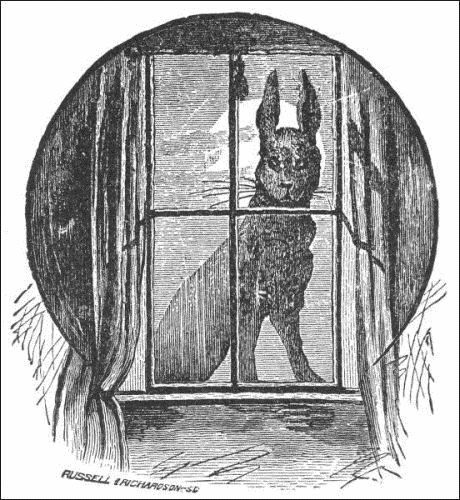
"GHOSTS."
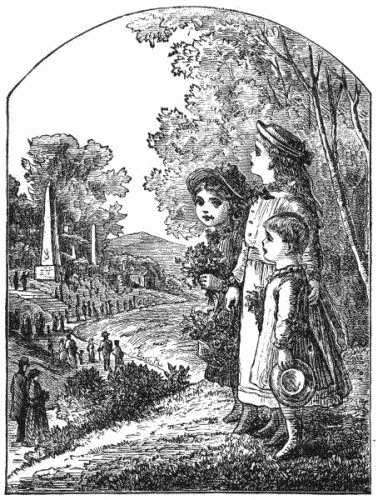
LORD LYTTON.

There is no death! The stars go down
To rise upon some fairer shore;
And bright in Heaven's jeweled crown
They shine forevermore.
There is no death! The dust we tread
[Pg 246]
Shall change beneath the summer showers
To golden grain or mellowed fruit,
Or rainbow-tinted flowers.
The granite rocks disorganize,
And feed the hungry moss they bear;
The forest leaves drink daily life,
From out the viewless air.
There is no death! The leaves may fall,
And flowers may fade and pass away;
They only wait through wintry hours,
The coming of the May.
There is no death! An angel form
Walks o'er the earth with silent tread;
He bears our best loved things away;
And then we call them "dead."
He leaves our hearts all desolate,
He plucks our fairest, sweetest, flowers;
Transplanted into bliss, they now
Adorn immortal bowers.
The bird-like voice, whose joyous tones,
Made glad these scenes of sin and strife,
Sing now an everlasting song,
Around the tree of life.
Where'er he sees a smile too bright,
[Pg 247]
Or heart too pure for taint and vice,
He bears it to that world of light,
To dwell in Paradise.
Born unto that undying life,
They leave us but to come again;
With joy we welcome them the same—
Except their sin and pain.
And ever near us, though unseen,
The dear immortal spirits tread;
For all the boundless universe
Is life—there are no dead.
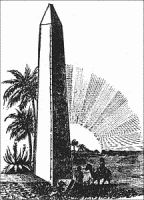
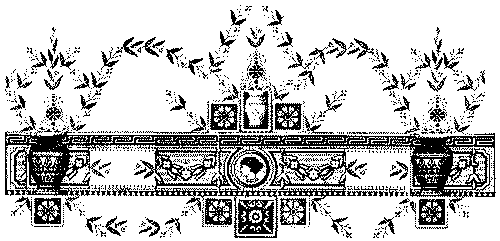
OR THE STORY OF THE WOODEN HORSE.

Troy was one of the most noted cities of ancient times, and was situated in the northwestern part of Asia Minor.
Much of its history is obscured by uncertainty and mystery, yet Homer in his Iliad has told the most interesting part of the history of this great city.
At the time of which Homer wrote, Priam was king of Troy, and Paris, his son, was, like many young men, always getting his father into trouble; the one of which we now write resulting in the complete destruction of Troy.
Paris went to visit the Grecian princes and kings, all of whom treated him in the most hospitable manner.
Helen, the most beautiful woman of the age, was the wife of Men-a-la-us, king of Sparta, and one day when her husband was away, she eloped with the handsome Paris, who took her to Troy.
When Men-a-la-us discovered what Paris had done, he called upon all the Greek princes and heroes to make war upon Troy and assist him in recovering the faithless Helen.
The command of the expedition was given to Ag-a-mem-non, brother of Men-a-la-us. The whole army set sail in twelve hundred ships and soon arrived at the port of Troy. The war lasted for ten years, and it was not till the last year that the Greeks succeeded in taking the city, and then only by strategy.
Paris was killed long before the war was over, but the Trojans would not then give up Helen, for two of his brothers had fallen in love with her, and so the war went on.
There was in Troy an image called the Pal-la-di-um, and the gods, some of whom helped the Greeks and some the Trojans, had decreed that so long as this image remained within the walls, Troy should never be [Pg 250] taken.
When the Greeks found this out, they set to work to obtain the image. One night, Ulysses, the great hero, scaled the wall and stole the wonderful Pal-la-di-um. Still the city held out and it seemed impossible to take it.
At last the Greeks pretended to abandon the siege; their ships sailed away and it really seemed as though the long and bloody war was at an end.
The Trojans were filled with joy, and rushed out of the city and down to the shore. Judge of their surprise at finding an immense wooden horse, built of strong timbers and so large that it would require several thousand men to move it. Of course they did not understand it, but an old man named Sinon, who had been left on purpose by the Greeks, falsely said that the wooden horse was a sacred image and that if it were taken into Troy it would be the same to them as the image Ulysses stole at night.
Though warned of this man Sinon, they set to work and by means of rollers and pulleys the great horse was taken inside the walls.
Then followed one of the most dreadful massacres. The horse was full of Greeks armed with torches and lances. As soon as night fell, they [Pg 251] opened a secret door in the horse and were quickly upon the sleeping Trojans. The Greek ships, which really were hiding along the coast, returned, and the soldiers poured in at the gates, which had been opened by their allies from the great horse. With torch and lance the city was soon in flames, and its defenders struggling against fearful odds.
The morning found Troy in ashes, her wealth in the hands of the Greeks, and her inhabitants dead or in slavery.
Priam was slain at his own family altar, and the beautiful but perfidious Helen, the cause of so much bloodshed and misery, the cause of the overthrow of one of the greatest cities of ancient times, was taken captive by her former people.
WILSON.

BRET HARTE.

Men have done brave deeds,
And bards have sung them well:
I, of good George Nidiver,
Now the tale will tell.
In California mountains,
A hunter bold was he.
Keen his eye and sure his aim
As any you should see.
A little Indian boy
Followed him everywhere,
Eager to share the hunter's joy,
The hunter's meal to share.
And when the bird or deer,
[Pg 253]
Fell by the hunter's skill,
The boy was always near
To help with right good will,
One day, as through the cleft,
Between two mountains steep,
Shut in both right and left,
Their weary way they keep;
They see two grizzly bears,
With hunger fierce and fell,
Rush at them unawares,
Right down the narrow dell.
The boy turned round, with screams,
And ran with terror wild;
One of the pair of savage beasts
Pursued the shrieking child.
The hunter raised his gun;
He knew one charge was all;
And through the boy's pursuing foe
He sent his only ball.
The other on George Nidiver,
Came on with dreadful pace;
The hunter stood unarmed
And met him face to face.
I say unarmed he stood:
[Pg 254]
Against those frightful paws
The rifle-butt or club of wood
Could stand no more than straws.
George Nidiver stood still,
And looked him in the face;
The wild beast stopped amazed,
Then came on with slackening pace.
Still firm the hunter stood
Although his heart beat high;
Again the creature stopped,
And gazed with wondering eye.
The hunter met his gaze,
Nor yet an inch gave way:
The bear turned slowly round,
And slowly moved away.
What thoughts were in his mind,
It would be hard to spell;
What thoughts were in George Nidiver's,
I rather guess than tell.
But sure that rifle's aim,
Swift choice of generous part,
Showed in its passing gleam
The depth of a brave heart.

MARY D. BRINE.

March, you're a jolly old fellow, I know;
They may call you a blustering old chap, but you blow
For us boys and our kites and we don't care a fig,
For the hats and the dust that go dancing a jig.
Puff out, you old fellow, blow hard or blow high,
At our kites you may bluster, and "blow them sky-high!"
Nobody will find any fault, but the girls—
And they make a fuss 'cause you "blow out their curls!"
You're just our own season—we've waited for you;
[Pg 256]
And our kites are all ready, so strong and so new,
You jolly old fellow, if you were a boy,
You'd know why the March-month gives us such joy.
It is fun to stand high on the top of a hill,
And pay out your string—let it run with a will;
It is fun to "hold hard" while your kite pulls away,
And the wind blows a gale! ah! kite-flying is gay.
The ladies complain that you "blow off their veils,"
But never you mind, give no heed to their tales,
Devote yourself wholly to boys and their kites,
And trust to the boys to fight hard for your rights.
For, March, you're the jolliest old fellow we know,
[Pg 257]
And we like you the better, the harder you blow!
When you marched in upon us, we gave you a shout,
And we'll miss you at last, when 'tis time to march out.

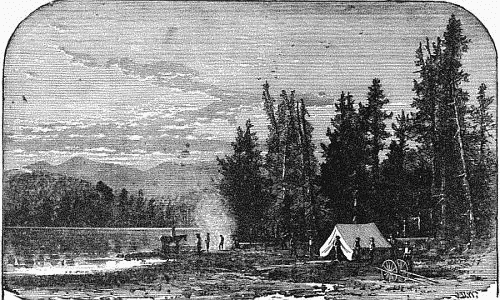
"BIVOUAC OF CRUSADERS."

OR THE WARS OF THE CROSS.
Adapted from Joseph F. Michaud's History of the Crusades.

It was for a long time the custom among the devout Christians of France, Germany, Italy and England, to make pilgrimages to Jerusalem and pray at the many spots made sacred by the events in the life of Jesus, especially at the Holy Sepulchre.
The people who lived there did not object to these pilgrimages, especially as those who came, spent money and increased their trade.
But about the year A. D. 1020 the Saracen king Hakem, over-ran all of Palestine, destroyed the Christian churches and persecuted the Christians. Pilgrims returning to Europe, spread the news abroad and [Pg 260] the whole Christian world became alarmed. But matters grew better for awhile and Christians were not molested, until in 1076 the Turks came into possession of Jerusalem, when they were again subject to all kinds of dangers, and made to pay for the privilege of visiting the Holy Land.
In 1094, Peter the Hermit, a monk, returned from a pilgrimage and began to preach a Holy War—a Crusade, throughout Europe. He went from town to town, calling upon everyone, with fiery eloquence, to join the army.
The effect was magical. People of all classes took the vow to protect the Holy Sepulchre of Jesus;—Kings, knights, nobles, lords, laborers, and even women and children.
Each one bound to his shoulders a red cross, as a pledge. By-and-bye they were all ready to march. Over 900,000 were in the vast army. But in their religious zeal, they forgot that they must eat on the way. No food was provided; still they marched on, seeming to expect to be fed in some miraculous manner.
Their route lay through a region very well supplied with provisions, and as they went along, they managed to beg and take by force, enough [Pg 261] to supply their necessities.
At last, after many battles and defeats, they reached Jerusalem. Of the 900,000 who started from Europe only 40,000 remained;—the rest had fallen in battle, or died of disease and starvation.
The city was finally taken, "and," says one historian, "Seventy thousand Turks were put to the sword. The Christian knights rode in blood to their horses' knees."
Having recovered the Holy Sepulchre, and established a Christian kingdom at Jerusalem, the greater number went back to Europe and the First Crusade was ended.
The Christian kingdom set up did not last long. There were one thousand Turks to every Christian in Palestine.
A SECOND CRUSADE was organized in 1146, but it resulted in defeat, and so might it be said of six other Crusades, the last of which ended in the complete overthrow of Christians in 1291.
Hundreds of thousands of noble lives had been sacrificed, in a blind fury, to accomplish what might have been done by one army well supplied and equipped.
Without believing that these holy wars did either all the good or all the harm that is attributed to them, it must be admitted that they were a source of bitter sorrow to the generations that saw them or took part in them; but like the ills and tempests of human life, which render man better, and often assist the progress of his reason, they have forwarded the progress of nations.

Breathes there the man, with soul so dead, Who never to himself hath said, "This is my own, my native land!" If such there breathe, go, mark him well; For him no Minstrel raptures swell; High though his titles, proud his name, Boundless his wealth as wish can claim; Despite those titles, power, and pelf, The wretch concenter'd all in self, Living, shall forfeit fair renown, And, doubly dying, shall go down To the vile dust, from whence he sprung, Unwept, unhonor'd, and unsung.
WALTER SCOTT:
"LAY OF THE LAST MINSTREL."
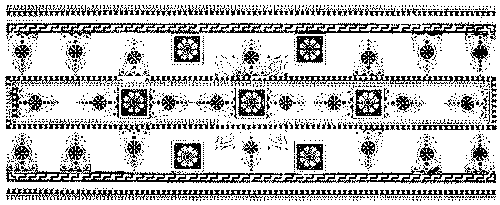
A STRANGE PIECE OF HISTORY.

So great was the religious zeal during this period that even the children were also enlisted in the cause.
At the close of the Fifth Crusade, these little ones were taught that the warriors had failed because of their sins and that it now remained for the weak and innocent to make an effort.
In 1212 not less than 50000 children in France and Germany, braving the anger of parents, gathered together in cities and countries, singing these words; "Lord Jesus, restore to us your holy cross."
They were led by two boys, Stephen of Colyes, and Nicholas of Hungary, though it is probable that older leaders were also present.
When they were asked where they were going, or what they intended to do, they replied, "We are going to Jerusalem to deliver the Sepulchre of our Saviour."
A great portion of them tried to cross the Alps near Mt. Cenis and nearly all perished. Others took another route, and crossing, at an easier pass, arrived in Italy, while most who came from France went to Marseilles.
They had been made to believe that the year 1213 would be very dry and that the heat of the sun would be so great as to dry up the waters of the sea; thus an easy road for pilgrims would be opened across the bed of the Mediterranean sea to Jerusalem.
Finding no dry sea, seven vessels were provided and those who embarked were either ship-wrecked or taken prisoners by the Saracens. Many were lost in the forests then so abundant and large, others perished with heat, hunger, thirst, and fatigue,—and of the fifty thousand who started, few, if any, ever reached home or trod the sands of Palestine.
The narrative of the children's crusade seems too strange to be true, but the facts are stated by the most truthful authors and are worthy of being believed.
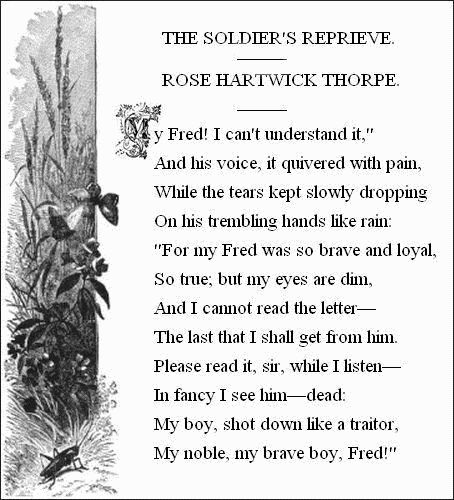

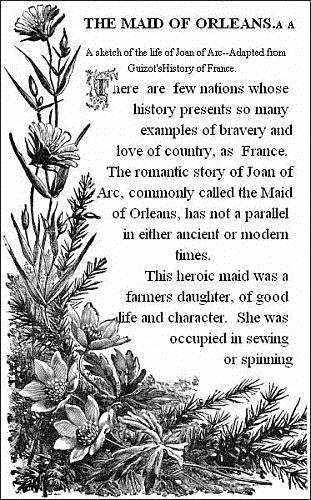
with her mother, or driving her [Pg 270] father's sheep afield, and tending them, a little shepherdess in fact.
In 1428, the English army had laid siege to Orleans, a city of France, and in spite of all their efforts, the French troops found themselves unable to hold the city.
Hearing of the great danger of the army of her country, Joan, though but 16 years of age, demanded to be taken before the French king, saying that the King of Heaven had sent her to help him.
The king was not sure that Joan was truthful, but after talking with her and finding her sincere, he at last decided to send her to join his army. The king gave her a fine black charger, a sword, a complete suit of armor, and a large white banner covered with lilies. In order that she might better fight, she was allowed to supply herself with men's clothing.
When she and her attendants reached the army, great was the surprise of the soldiers; some were ready to mock at the idea of a young maid coming to be the leader of an army, but like good soldiers, they were loyal to their king.
Placing herself at the head of the army, she marched out to meet the English, and after a bloody struggle compelled them to raise the siege and beat a hasty retreat.
Joan, in leading a charge against the enemy, the first day, was struck by an arrow, which passed completely through her shoulder, but she seized the arrow and drew it from the wound with her own hand and had the surgeon dress the wound. Early the next day she was well enough to lead forth the troops and complete the victory begun the day before.
During this year she was able to defeat the English in several other battles. After these victories, the French generals and leaders became jealous of her success, and persuaded the king to give up efforts till the next spring.
This delay was fatal. Profiting by it, the English increased their army and early in May, when Joan led forth her troops, it was to be defeated and made a prisoner.
The English tried her as a witch, or heretic, and she was finally sentenced and burned at the stake on May 30, 1431, three years after she first appeared among the troops.
Years after, as if to undo the terrible crime of burning a sweet, virtuous and heroic girl, another trial was had, the evidence against Joan was all reviewed, and be it said to the everlasting honor of her judges, they decided that she had not been guilty and that her [Pg 272] execution was a grave and terrible mistake.
Whether she really was assisted by God or not, no one knows, but history does not record the name of a woman whose efforts seemed more inspired, and whose life was so entirely pure and patriotic.
TENNYSON: "LADY CLARA VERE DE VERE."
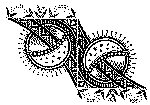
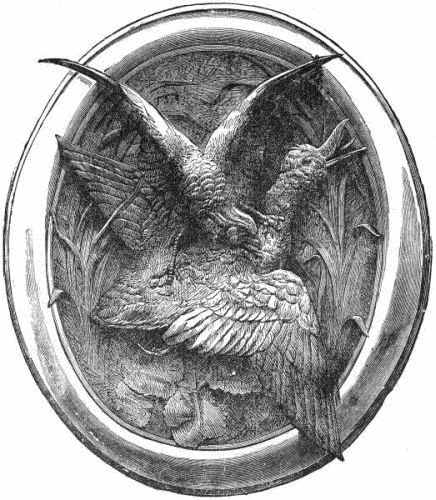

M. E. B.

It's strange how little boys' mothers,
Can find it all out as they do,
If a fellow does anything naughty,
Or says anything that's not true!
They'll look at you just a moment,
Till your heart in your bosom swells,
And then they know all about it—
For a little bird tells!
Now, where the little bird comes from,
Or where the little bird goes,
If he's covered with beautiful plumage,
Or black as the king of the crows.
If his voice is as hoarse as a raven,
Or clear as the ringing of bells,
I know not—but this I am sure of—
A little bird tells!
The moment you think a thing wicked,
[Pg 275]
The moment you do a thing bad,
Are angry, or sullen, or hateful,
Get ugly, or stupid, or mad,
Or tease a dear brother or sister—
That instant your sentence he knells,
And the whole to mamma in a minute
That little bird tells!
You may be in the depths of a closet,
Where nobody sees but a mouse,
You may be all alone in the cellar,
You may be on the top of the house,
You may be in the dark and the silence,
Or out in the woods and the dells—
No matter! wherever it happens
The little bird tells!
And the only contrivance to stop him,
Is just to be sure what you say—
Sure of your facts and your fancies,
Sure of your work and your play;
Be honest, be brave and be kindly,
Be gentle and loving as well,
And then—you can laugh at the stories
The little bird tells!


There was once an old goat, who had seven kids, whom she loved as dearly as any mother could. One day she wished to go into the wood, to fetch some provision; so she called them all together, and said, "My dear children, I am going into the wood; but while I am gone, pray take care of the wolf; if he comes in here he will devour you, skin and all. He often disguises himself; but you will always be able to know him by his gruff voice and black feet." The little kids replied, "Mother, dear, you may go without any fear, for we will take all possible care of ourselves." So the old goat bleated, to express her satisfaction, and went away without mistrust.
Before long, a knock was heard at the door, and a voice said, "Open the door, dear children; your mother is here, and has brought something for each of you." But the little kids discovered very easily by the gruff [Pg 277] voice who it was, and cried out, "No, no; we shall not open the door, you are not our mother; she has a gentle, loving voice, but yours is harsh; for you are the wolf."
When he heard this, he went away and got a great lump of chalk, which he swallowed to make his voice more delicate; then returning to the cottage, he knocked at the door, saying, "Open the door, dear children; your affectionate mother is here, and has brought something for each of you." But, as he spoke the wolf laid his black foot on the window-sill; so the children saw it and cried, "No, no, we shall not open the door; our mother has not black feet like you; you are the wolf!"
Then the wolf ran to the baker, and said, "I have hurt my foot, spread some dough over it." The baker did as he requested; and the wolf hastened to the miller, whom he asked to strew some of his white flour over his foot. The miller thought to himself that the wolf wished to deceive somebody, so he refused to do it. But the wolf said, fiercely, "Do it instantly, or I will eat you up." The man, therefore, being dreadfully afraid, made his paw white as he desired. The rogue now went for the third time to the cottage, knocked at the door, and cried, "Children, your affectionate mother has returned home, and brought [Pg 278] each of you something out of the wood." The kids exclaimed, "Show us first your foot, that we may know truly if you are our dear mother." The wolf had his paw on the window; and when they saw that it was white, they believed all that he said, and opened the door. But it was their enemy, the wolf, who, to their great terror, came in. They tried in vain to hide themselves: one went under the table, another into bed, the third into the oven, the fourth into the kitchen, the fifth into the closet, the sixth under the washing-tub, and the seventh into the clock-case. But the wolf found them all but one, and made no bones of them, for he swallowed them all except the youngest, who was hidden in the clock-case, and whom he did not find. When he had satisfied his appetite, he rolled out of the cottage, and feeling rather drowsy, laid himself down under a tree in a green meadow, and fell fast asleep.
Not long afterwards, the goat came home out of the wood. Ah! a sight met her view! The house-door stood wide open, tables, stools, and chairs were overturned, the washing-tub in pieces, counterpanes and pillows strewed about in terrible confusion. She sought her children, but they were nowhere to be found; she called them by name, but no reply came.
At length, as she was passing near the place where the youngest was concealed, she heard a weak voice say, "Dear mother, I'm in the clock-case." She instantly opened it, and there was the kid, who related the misfortune that had befallen them through the wolf, and the dreadful fate of her brothers and sisters. The anger and sorrow of the old goat can scarcely be described; but at length she became calmer, and taking her kid with her, resolved to seek her enemy. When she arrived at the meadow, she discovered him under the tree, snoring so loudly that the twigs trembled. She examined him on all sides, and saw that something was moving and jumping inside him. "Can it be possible," said she, "that my poor children whom the monster has swallowed for his supper, are still alive?" Full of hope, she sent her kid quickly home for scissors, needle and thread, and upon her return ripped the wolf up; scarcely had she commenced, than a kid's head appeared, and when she had finished, all six sprang joyfully out, without having suffered the least harm, for the wolf had swallowed them whole. The mother caressed them and jumped for joy, then said, "Now go and fetch me some large paving stones, that I may fill up the wicked creature while he is yet asleep." The kids obeyed and dragged plenty of large stones to [Pg 280] the place, which the mother put inside the wolf; she then sewed him up, so quickly, that he neither stirred nor found out what she had done.
At length the wolf awoke, raised himself on his legs, and as the stones made him feel thirsty, he went towards the spring to quench it. But when he began to move, the stones moved likewise, and rattled loudly. Then he said, "What can it be that rattles about inside me, and feels so heavy? I thought I had eaten kids, but I feel as if they were paving-stones." He then came to the spring, and stooped down to drink, but the weight of the stones carried him in, for the bank was sloping, and he sank to the bottom and perished miserably. When the kids saw this, they danced and sprang about in great joy, crying out, "The wolf is drowned! The wolf is dead! We have nothing more to fear—the wolf is dead!"
Bryant.
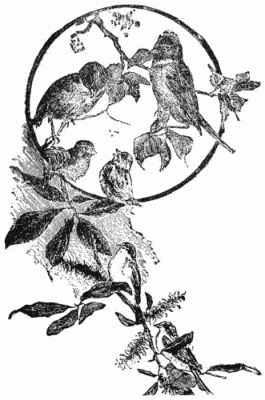
ALFRED TENNYSON.

What does little birdie say
In her nest at peep of day?
Let me fly, says little birdie,
Mother let me fly away.
Birdie rest a little longer,
Till the little wings are stronger.
So she rests a little longer,
Then she flies away.
What does little baby say,
[Pg 282]
In her bed at peep of day?
Baby says, like little birdie,
Let me rise and fly away.
Baby, sleep a little longer,
Till the little limbs are stronger.
If she sleeps a little longer,
Baby, too, shall fly away.
From the hour of the invention of printing, books, and not kings, were to rule in the world. Weapons forged in the mind, keen-edged, and brighter than a sunbeam, were to supplant the sword and the battle-axe. Books! light-houses built on the sea of time! Books! by whose sorcery the whole pageantry of the world's history moves in solemn procession before our eyes. From their pages great souls look down in all their grandeur, undimmed by the faults and follies of earthly existence, consecrated by time.
EDWIN P. WHIPPLE.

ELIZABETH AKERS.

Backward, turn backward, O Time, in your flight,
Make me a child again just for to-night!
Mother, come back from the echo-less shore,
Take me again to your heart as of yore;
Kiss from my forehead the furrows of care,
Smooth the few silver threads out of my hair;
Over my slumbers your loving watch keep;—
Rock me to sleep, mother,—rock me to sleep!
Backward, flow backward, oh, tide of the years!
I am so weary of toil and of tears,—
Toil without recompense, tears all in vain,—
Take them and give me my childhood again!
I have grown weary of dust and decay,—
Weary of flinging my soul-wealth away;
Weary of sowing for others to reap—
Rock me to sleep, mother—rock me to sleep!
Tired of the hollow, the base, the untrue,
[Pg 284]
Mother, O Mother, my heart calls for you!
Many a summer the grass has grown green,
Blossomed and faded, our faces between;
Yet, with strong yearning and passionate pain,
Long I to-night for your presence again.
Come from the silence so long and so deep,
Rock me to sleep, mother,—rock me to sleep!
Over my heart in the days that are flown,
No love like mother-love ever has shown;
No other worship abides and endures,—
Faithful, unselfish, and patient like yours;
None like a mother can charm away pain
From the sick soul and the world-weary brain.
Slumber's soft calms o'er my heavy lids creep;
Rock me to sleep, mother,—rock me to sleep!
Come, let your brown hair, just lighted with gold,
Fall on your shoulders again as of old;
Let it drop over my forehead to-night,
Shading my faint eyes away from the light;
For with its sunny-edged shadows once more
Haply will throng the sweet visions of yore;
Lovingly, softly, its bright billows sweep;—
Rock me to sleep, mother,—rock me to sleep!
Mother, dear mother, the years have been long
[Pg 285]
Since I last listened to your lullaby song;
Sing, then, and unto my soul it shall seem
Womanhood's years have been only a dream.
Clasped to your heart in a loving embrace,
With your light lashes just sweeping my face,
Never hereafter to wake or to weep,—
Rock me to sleep, mother,—rock me to sleep.
RALPH WALDO EMERSON.

EMMA ALICE BROWN.

We measured the riotous baby
Against the cottage wall—
A lily grew on the threshold,
And the boy was just as tall;
A royal tiger-lily,
With spots of purple and gold,
And a heart like a jeweled chalice,
The fragrant dew to hold.
Without, the bluebirds whistled
High up in the old roof-trees,
And to and fro at the window
The red rose rocked her bees;
And the wee pink fists of the baby
Were never a moment still,
Snatching at shine and shadow
That danced on the lattice-sill.
His eyes were wide as bluebells—
[Pg 287]
His mouth like a flower unblown—
Two little bare feet like funny white mice,
Peeped out from his snowy gown;
And we thought, with a thrill of rapture
That yet had a touch of pain,
When June rolls around with her roses,
We'll measure the boy again.
Ah me! in a darkened chamber,
With the sunshine shut away,
Through tears that fell like a bitter rain,
We measured the boy to-day;
And the little bare feet, that were dimpled
And sweet as a budding rose,
Lay side by side together,
In a hush of a long repose!
Up from the dainty pillow,
White as the risen dawn,
The fair little face lay smiling,
With the light of Heaven thereon;
And the dear little hands, like rose-leaves
Dropped from a rose, lay still,
Never to snatch at the sunshine
That crept to the shrouded sill.
We measured the sleeping baby
[Pg 288]
With ribbons white as snow,
For the shining rosewood casket
That waited him below;
And out of the darkened chamber
We went with a childless moan—
To the height of the sinless angels
Our little one had grown.
SCHILLER
JOHN G. SAXE.


No, children, my trips are over,
The engineer needs rest;
My hand is shaky, I'm feeling
A tugging pain i' my breast;
But here, as the twilight gathers,
I'll tell you a tale of the road,
That will ring in my head forever,
Until it rests beneath the sod.
We were lumbering along in the twilight,
The night was dropping her shade,
And the "Gladiator" labored—
Climbing the top of the grade;
The train was heavily laden,
So I let my engine rest,
Climbing the grading slowly,
Till we reached the upland's crest.
I held my watch to the lamplight—
[Pg 290]
Ten minutes behind the time!
Lost in the slackened motion
Of the up grade's heavy climb;
But I knew the miles of the prairie
That stretched a level track,
So I touched the gauge of the boiler,
And pulled the lever back.
Over the rails a-gleaming,
Thirty an hour, or so,
The engine leaped like a demon,
Breathing a fiery glow;
But to me—ahold of the lever—
It seemed a child alway,
Trustful and always ready
My lightest touch to obey.
I was proud, you know, of my engine,
Holding it steady that night,
And my eye on the track before us,
Ablaze with the Drummond light.
We neared a well-known cabin,
Where a child of three or four,
As the up-train passed, oft called me,
A-playing around the door.
My hand was firm on the throttle
[Pg 291]
As we swept around the curve,
When something afar in the shadow,
Struck fire through every nerve.
I sounded the brakes, and crashing
The reverse lever down in dismay,
Groaning to Heaven,—eighty paces
Ahead was a child at its play!
One instant—one awful and only,
The world flew around in my brain,
And I smote my hand hard on my forehead
To keep back the terrible pain;
The train I thought flying forever,
With mad, irresistible roll,
While the cries of the dying, the night-wind
Swept into my shuddering soul.
Then I stood on the front of the engine,
How I got there I never could tell,—
My feet planted down on the cross-bar
Where the cow-catcher slopes to the rail,
One hand firmly locked on the coupler,
And one held out in the night,
While my eye gauged the distance and measured,
The speed of our slackening flight.
My mind, thank the Lord! it was steady;
[Pg 292]
I saw the curls of her hair,
And the face that turning in wonder,
Was lit by the deadly glare.
I know little more—but I heard it—
The groan of the anguished wheels,
And remember thinking—the engine
In agony trembles and reels.
One rod! to the day of my dying,
I shall think the old engine reared back,
And as it recoiled with a shudder
I swept my hand over the track;
Then darkness fell over my eyelids,
But I heard the surge of the train,
And the poor old engine creaking,
As racked by a deadly pain.
They found us, they said, on the gravel,
My fingers enmeshed in her hair,
And she on my bosom a climbing,
To nestle securely there.
We are not much given to crying—
We men that run on the road—
But that night, they said there were faces,
With tears on them, lifted to God.
For years in the eve and the morning,
[Pg 293]
As I neared the cabin again,
My hand on the lever pressed downward
And slackened the speed of the train.
When my engine had blown her a greeting,
She always would come to the door;
And her look with a fullness of Heaven,
Blessed me evermore.
I do not know what I may appear to the world, but to myself I seem to have been only like a boy playing on the sea-shore, and diverting myself in now and then finding a smoother pebble, or a prettier shell than ordinary, whilst the great ocean of truth lay all undiscovered before me.
SIR ISAAC NEWTON.
WALTER SCOTT.

FROM PRITT'S BORDER LIFE.

During the early pioneer days of Ohio, there lived on the Ohio river, not far from Cincinnati, a family named Johnson.
The two sons, John and Henry, aged respectively thirteen and eleven years, were one day seated on an old log some distance from the house. Presently they saw two men coming toward them, whom they supposed to be white men from the nearest settlement. To the great dismay of the boys, they discovered when too late for escape, that two Indians were beside them.
They were made prisoners and taken about four miles into the deep forests, when, after eating some roasted meat and parched corn, given them by their captors, they arranged for the night, by being placed [Pg 295] between the two Indians and each encircled in the arms of the one next him.
Henry, the younger, had grieved much at the idea of being carried off by the Indians. John had in vain tried to comfort him with the hope that they should escape and return to their parents; but he refused to be comforted. The ugly red man, with his tomahawk and scalping-knife, which had often been called in to quiet his cries in infancy, was now actually before him; and every scene of torture and cruelty of which early settlers knew so much, rose up to terrify his mind.
But when the fire was kindled in the forest, that night, the supper prepared and offered to him, all idea of his future fate was forgotten, and Henry soon sank to peaceful sleep, though he was enclosed in the arms of a red savage.
It was different with John. He felt the reality of their situation; he was alive to the fears which he knew would possess his dear mother when night came and her boys did not return. His thoughts of how to restore his brother and himself to their friends drove sleep from his eyes.
Finding all others locked in deep repose, he gently slipped from the arms of his captor and walked to the fire. To test the soundness of [Pg 296] their sleep, he rekindled the dying fire and moved freely about it. All remained sound asleep—now was the time to escape. He gently awoke Henry and told him to get up; he obeyed and both stood by the fire.
"I think," said John, "we had better go home now."
"Oh!" replied Henry, "they will follow and catch us."
"Never fear that," replied John, "we'll kill them before we go."
The idea was for some time opposed by Henry, but when he beheld the savages so soundly asleep, and listened to his brother's plan of executing his wish, he finally consented to act the part prescribed him.
The only gun which the Indians had was resting against a tree, at the foot of which lay their tomahawks. John placed it on a log, with the muzzle near to the head of one of the savages, and, leaving Henry with his finger on the trigger, ready to pull on the signal being given, he repaired to his own station. Holding in his hand one of their tomahawks, he stood astride of the other Indian, and, as he raised his arm to deal death to the sleeping savage, Henry fired, and, shooting off the lower part of the Indian's jaw, called to his brother, "Lay [Pg 297] on; for I've done for this one," seized up the gun and ran off. The first blow of the tomahawk took effect on the back of the neck and was not fatal. The Indian attempted to spring up, but John repeated his strokes with such force and so quickly that he soon brought him again to the ground, and leaving him dead proceeded on after his brother.
They presently came to a path which they recollected to have traveled the preceding evening, and, keeping along it, arrived at the station awhile before day. The inhabitants were, however, all up, and in much uneasiness for the fate of the boys; and when they came near, and heard a well-known voice exclaim, in accents of deep distress, "Poor little fellows! they are either killed or taken prisoners," John called aloud, "No, mother, we are here again."
When the tale of their captivity and the means by which they escaped, were told, they did not receive full belief, upon which John said, "You had better go and see." "But can you again find the spot?" said one; "Yes," he said, "I hung my cap up at the place where we turned into the path." So, with a number of men, John led the way, and when they came to the fire they found the Indian who had been tomahawked, dead, while [Pg 298] they tracked the one who had been shot, by his blood, until they found him, not quite dead yet, but so weak that he would die, so they left him.
I am positive I have a Soul; nor can all the books with which materialists have pestered the world ever convince me to the contrary.
STERNE.
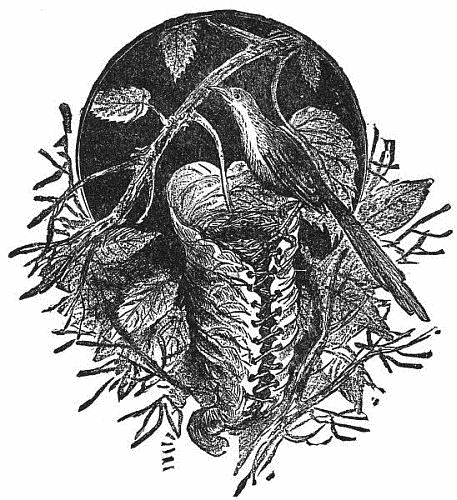

GEORGE D. PRENTICE.

Gone! gone for ever!—like a rushing wave
Another year has burst upon the shore
Of earthly being—and its last low tones,
Wandering in broken accents on the air,
Are dying to an echo.
The gay Spring
With its young charms, has gone—gone with its leaves—
Its atmosphere of roses, its white clouds
Slumbering like seraphs in the air—its birds
Telling their loves in music—and its streams
Leaping and shouting from the up-piled rocks
To make earth echo with the joy of waves.
And Summer, with its dews and showers, has gone—
Its rainbows glowing on the distant cloud
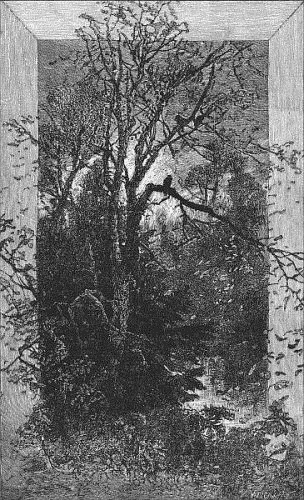
"ITS PEACEFUL LAKES SMILING IN THEIR SWEET SLEEP."
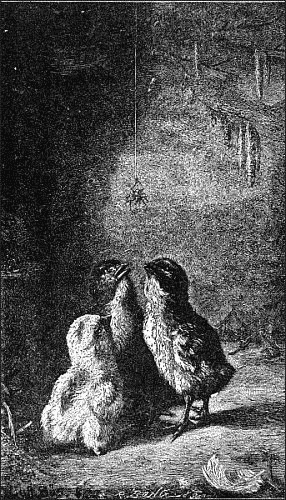
WHICH WILL GET IT?
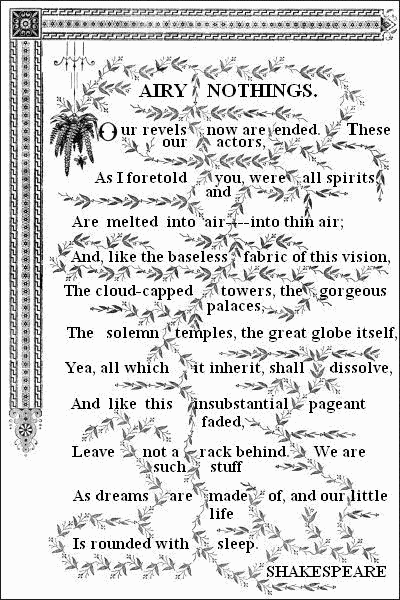
End of the Project Gutenberg EBook of Golden Grain, by Various
*** END OF THIS PROJECT GUTENBERG EBOOK GOLDEN GRAIN ***
***** This file should be named 47507-h.htm or 47507-h.zip *****
This and all associated files of various formats will be found in:
http://www.gutenberg.org/4/7/5/0/47507/
Produced by Juliet Sutherland, Brian Wilsden and the Online
Distributed Proofreading Team at http://www.pgdp.net
Updated editions will replace the previous one--the old editions
will be renamed.
Creating the works from public domain print editions means that no
one owns a United States copyright in these works, so the Foundation
(and you!) can copy and distribute it in the United States without
permission and without paying copyright royalties. Special rules,
set forth in the General Terms of Use part of this license, apply to
copying and distributing Project Gutenberg-tm electronic works to
protect the PROJECT GUTENBERG-tm concept and trademark. Project
Gutenberg is a registered trademark, and may not be used if you
charge for the eBooks, unless you receive specific permission. If you
do not charge anything for copies of this eBook, complying with the
rules is very easy. You may use this eBook for nearly any purpose
such as creation of derivative works, reports, performances and
research. They may be modified and printed and given away--you may do
practically ANYTHING with public domain eBooks. Redistribution is
subject to the trademark license, especially commercial
redistribution.
*** START: FULL LICENSE ***
THE FULL PROJECT GUTENBERG LICENSE
PLEASE READ THIS BEFORE YOU DISTRIBUTE OR USE THIS WORK
To protect the Project Gutenberg-tm mission of promoting the free
distribution of electronic works, by using or distributing this work
(or any other work associated in any way with the phrase "Project
Gutenberg"), you agree to comply with all the terms of the Full Project
Gutenberg-tm License available with this file or online at
www.gutenberg.org/license.
Section 1. General Terms of Use and Redistributing Project Gutenberg-tm
electronic works
1.A. By reading or using any part of this Project Gutenberg-tm
electronic work, you indicate that you have read, understand, agree to
and accept all the terms of this license and intellectual property
(trademark/copyright) agreement. If you do not agree to abide by all
the terms of this agreement, you must cease using and return or destroy
all copies of Project Gutenberg-tm electronic works in your possession.
If you paid a fee for obtaining a copy of or access to a Project
Gutenberg-tm electronic work and you do not agree to be bound by the
terms of this agreement, you may obtain a refund from the person or
entity to whom you paid the fee as set forth in paragraph 1.E.8.
1.B. "Project Gutenberg" is a registered trademark. It may only be
used on or associated in any way with an electronic work by people who
agree to be bound by the terms of this agreement. There are a few
things that you can do with most Project Gutenberg-tm electronic works
even without complying with the full terms of this agreement. See
paragraph 1.C below. There are a lot of things you can do with Project
Gutenberg-tm electronic works if you follow the terms of this agreement
and help preserve free future access to Project Gutenberg-tm electronic
works. See paragraph 1.E below.
1.C. The Project Gutenberg Literary Archive Foundation ("the Foundation"
or PGLAF), owns a compilation copyright in the collection of Project
Gutenberg-tm electronic works. Nearly all the individual works in the
collection are in the public domain in the United States. If an
individual work is in the public domain in the United States and you are
located in the United States, we do not claim a right to prevent you from
copying, distributing, performing, displaying or creating derivative
works based on the work as long as all references to Project Gutenberg
are removed. Of course, we hope that you will support the Project
Gutenberg-tm mission of promoting free access to electronic works by
freely sharing Project Gutenberg-tm works in compliance with the terms of
this agreement for keeping the Project Gutenberg-tm name associated with
the work. You can easily comply with the terms of this agreement by
keeping this work in the same format with its attached full Project
Gutenberg-tm License when you share it without charge with others.
1.D. The copyright laws of the place where you are located also govern
what you can do with this work. Copyright laws in most countries are in
a constant state of change. If you are outside the United States, check
the laws of your country in addition to the terms of this agreement
before downloading, copying, displaying, performing, distributing or
creating derivative works based on this work or any other Project
Gutenberg-tm work. The Foundation makes no representations concerning
the copyright status of any work in any country outside the United
States.
1.E. Unless you have removed all references to Project Gutenberg:
1.E.1. The following sentence, with active links to, or other immediate
access to, the full Project Gutenberg-tm License must appear prominently
whenever any copy of a Project Gutenberg-tm work (any work on which the
phrase "Project Gutenberg" appears, or with which the phrase "Project
Gutenberg" is associated) is accessed, displayed, performed, viewed,
copied or distributed:
This eBook is for the use of anyone anywhere at no cost and with
almost no restrictions whatsoever. You may copy it, give it away or
re-use it under the terms of the Project Gutenberg License included
with this eBook or online at www.gutenberg.org
1.E.2. If an individual Project Gutenberg-tm electronic work is derived
from the public domain (does not contain a notice indicating that it is
posted with permission of the copyright holder), the work can be copied
and distributed to anyone in the United States without paying any fees
or charges. If you are redistributing or providing access to a work
with the phrase "Project Gutenberg" associated with or appearing on the
work, you must comply either with the requirements of paragraphs 1.E.1
through 1.E.7 or obtain permission for the use of the work and the
Project Gutenberg-tm trademark as set forth in paragraphs 1.E.8 or
1.E.9.
1.E.3. If an individual Project Gutenberg-tm electronic work is posted
with the permission of the copyright holder, your use and distribution
must comply with both paragraphs 1.E.1 through 1.E.7 and any additional
terms imposed by the copyright holder. Additional terms will be linked
to the Project Gutenberg-tm License for all works posted with the
permission of the copyright holder found at the beginning of this work.
1.E.4. Do not unlink or detach or remove the full Project Gutenberg-tm
License terms from this work, or any files containing a part of this
work or any other work associated with Project Gutenberg-tm.
1.E.5. Do not copy, display, perform, distribute or redistribute this
electronic work, or any part of this electronic work, without
prominently displaying the sentence set forth in paragraph 1.E.1 with
active links or immediate access to the full terms of the Project
Gutenberg-tm License.
1.E.6. You may convert to and distribute this work in any binary,
compressed, marked up, nonproprietary or proprietary form, including any
word processing or hypertext form. However, if you provide access to or
distribute copies of a Project Gutenberg-tm work in a format other than
"Plain Vanilla ASCII" or other format used in the official version
posted on the official Project Gutenberg-tm web site (www.gutenberg.org),
you must, at no additional cost, fee or expense to the user, provide a
copy, a means of exporting a copy, or a means of obtaining a copy upon
request, of the work in its original "Plain Vanilla ASCII" or other
form. Any alternate format must include the full Project Gutenberg-tm
License as specified in paragraph 1.E.1.
1.E.7. Do not charge a fee for access to, viewing, displaying,
performing, copying or distributing any Project Gutenberg-tm works
unless you comply with paragraph 1.E.8 or 1.E.9.
1.E.8. You may charge a reasonable fee for copies of or providing
access to or distributing Project Gutenberg-tm electronic works provided
that
- You pay a royalty fee of 20% of the gross profits you derive from
the use of Project Gutenberg-tm works calculated using the method
you already use to calculate your applicable taxes. The fee is
owed to the owner of the Project Gutenberg-tm trademark, but he
has agreed to donate royalties under this paragraph to the
Project Gutenberg Literary Archive Foundation. Royalty payments
must be paid within 60 days following each date on which you
prepare (or are legally required to prepare) your periodic tax
returns. Royalty payments should be clearly marked as such and
sent to the Project Gutenberg Literary Archive Foundation at the
address specified in Section 4, "Information about donations to
the Project Gutenberg Literary Archive Foundation."
- You provide a full refund of any money paid by a user who notifies
you in writing (or by e-mail) within 30 days of receipt that s/he
does not agree to the terms of the full Project Gutenberg-tm
License. You must require such a user to return or
destroy all copies of the works possessed in a physical medium
and discontinue all use of and all access to other copies of
Project Gutenberg-tm works.
- You provide, in accordance with paragraph 1.F.3, a full refund of any
money paid for a work or a replacement copy, if a defect in the
electronic work is discovered and reported to you within 90 days
of receipt of the work.
- You comply with all other terms of this agreement for free
distribution of Project Gutenberg-tm works.
1.E.9. If you wish to charge a fee or distribute a Project Gutenberg-tm
electronic work or group of works on different terms than are set
forth in this agreement, you must obtain permission in writing from
both the Project Gutenberg Literary Archive Foundation and Michael
Hart, the owner of the Project Gutenberg-tm trademark. Contact the
Foundation as set forth in Section 3 below.
1.F.
1.F.1. Project Gutenberg volunteers and employees expend considerable
effort to identify, do copyright research on, transcribe and proofread
public domain works in creating the Project Gutenberg-tm
collection. Despite these efforts, Project Gutenberg-tm electronic
works, and the medium on which they may be stored, may contain
"Defects," such as, but not limited to, incomplete, inaccurate or
corrupt data, transcription errors, a copyright or other intellectual
property infringement, a defective or damaged disk or other medium, a
computer virus, or computer codes that damage or cannot be read by
your equipment.
1.F.2. LIMITED WARRANTY, DISCLAIMER OF DAMAGES - Except for the "Right
of Replacement or Refund" described in paragraph 1.F.3, the Project
Gutenberg Literary Archive Foundation, the owner of the Project
Gutenberg-tm trademark, and any other party distributing a Project
Gutenberg-tm electronic work under this agreement, disclaim all
liability to you for damages, costs and expenses, including legal
fees. YOU AGREE THAT YOU HAVE NO REMEDIES FOR NEGLIGENCE, STRICT
LIABILITY, BREACH OF WARRANTY OR BREACH OF CONTRACT EXCEPT THOSE
PROVIDED IN PARAGRAPH 1.F.3. YOU AGREE THAT THE FOUNDATION, THE
TRADEMARK OWNER, AND ANY DISTRIBUTOR UNDER THIS AGREEMENT WILL NOT BE
LIABLE TO YOU FOR ACTUAL, DIRECT, INDIRECT, CONSEQUENTIAL, PUNITIVE OR
INCIDENTAL DAMAGES EVEN IF YOU GIVE NOTICE OF THE POSSIBILITY OF SUCH
DAMAGE.
1.F.3. LIMITED RIGHT OF REPLACEMENT OR REFUND - If you discover a
defect in this electronic work within 90 days of receiving it, you can
receive a refund of the money (if any) you paid for it by sending a
written explanation to the person you received the work from. If you
received the work on a physical medium, you must return the medium with
your written explanation. The person or entity that provided you with
the defective work may elect to provide a replacement copy in lieu of a
refund. If you received the work electronically, the person or entity
providing it to you may choose to give you a second opportunity to
receive the work electronically in lieu of a refund. If the second copy
is also defective, you may demand a refund in writing without further
opportunities to fix the problem.
1.F.4. Except for the limited right of replacement or refund set forth
in paragraph 1.F.3, this work is provided to you 'AS-IS', WITH NO OTHER
WARRANTIES OF ANY KIND, EXPRESS OR IMPLIED, INCLUDING BUT NOT LIMITED TO
WARRANTIES OF MERCHANTABILITY OR FITNESS FOR ANY PURPOSE.
1.F.5. Some states do not allow disclaimers of certain implied
warranties or the exclusion or limitation of certain types of damages.
If any disclaimer or limitation set forth in this agreement violates the
law of the state applicable to this agreement, the agreement shall be
interpreted to make the maximum disclaimer or limitation permitted by
the applicable state law. The invalidity or unenforceability of any
provision of this agreement shall not void the remaining provisions.
1.F.6. INDEMNITY - You agree to indemnify and hold the Foundation, the
trademark owner, any agent or employee of the Foundation, anyone
providing copies of Project Gutenberg-tm electronic works in accordance
with this agreement, and any volunteers associated with the production,
promotion and distribution of Project Gutenberg-tm electronic works,
harmless from all liability, costs and expenses, including legal fees,
that arise directly or indirectly from any of the following which you do
or cause to occur: (a) distribution of this or any Project Gutenberg-tm
work, (b) alteration, modification, or additions or deletions to any
Project Gutenberg-tm work, and (c) any Defect you cause.
Section 2. Information about the Mission of Project Gutenberg-tm
Project Gutenberg-tm is synonymous with the free distribution of
electronic works in formats readable by the widest variety of computers
including obsolete, old, middle-aged and new computers. It exists
because of the efforts of hundreds of volunteers and donations from
people in all walks of life.
Volunteers and financial support to provide volunteers with the
assistance they need are critical to reaching Project Gutenberg-tm's
goals and ensuring that the Project Gutenberg-tm collection will
remain freely available for generations to come. In 2001, the Project
Gutenberg Literary Archive Foundation was created to provide a secure
and permanent future for Project Gutenberg-tm and future generations.
To learn more about the Project Gutenberg Literary Archive Foundation
and how your efforts and donations can help, see Sections 3 and 4
and the Foundation information page at www.gutenberg.org
Section 3. Information about the Project Gutenberg Literary Archive
Foundation
The Project Gutenberg Literary Archive Foundation is a non profit
501(c)(3) educational corporation organized under the laws of the
state of Mississippi and granted tax exempt status by the Internal
Revenue Service. The Foundation's EIN or federal tax identification
number is 64-6221541. Contributions to the Project Gutenberg
Literary Archive Foundation are tax deductible to the full extent
permitted by U.S. federal laws and your state's laws.
The Foundation's principal office is located at 4557 Melan Dr. S.
Fairbanks, AK, 99712., but its volunteers and employees are scattered
throughout numerous locations. Its business office is located at 809
North 1500 West, Salt Lake City, UT 84116, (801) 596-1887. Email
contact links and up to date contact information can be found at the
Foundation's web site and official page at www.gutenberg.org/contact
For additional contact information:
Dr. Gregory B. Newby
Chief Executive and Director
[email protected]
Section 4. Information about Donations to the Project Gutenberg
Literary Archive Foundation
Project Gutenberg-tm depends upon and cannot survive without wide
spread public support and donations to carry out its mission of
increasing the number of public domain and licensed works that can be
freely distributed in machine readable form accessible by the widest
array of equipment including outdated equipment. Many small donations
($1 to $5,000) are particularly important to maintaining tax exempt
status with the IRS.
The Foundation is committed to complying with the laws regulating
charities and charitable donations in all 50 states of the United
States. Compliance requirements are not uniform and it takes a
considerable effort, much paperwork and many fees to meet and keep up
with these requirements. We do not solicit donations in locations
where we have not received written confirmation of compliance. To
SEND DONATIONS or determine the status of compliance for any
particular state visit www.gutenberg.org/donate
While we cannot and do not solicit contributions from states where we
have not met the solicitation requirements, we know of no prohibition
against accepting unsolicited donations from donors in such states who
approach us with offers to donate.
International donations are gratefully accepted, but we cannot make
any statements concerning tax treatment of donations received from
outside the United States. U.S. laws alone swamp our small staff.
Please check the Project Gutenberg Web pages for current donation
methods and addresses. Donations are accepted in a number of other
ways including checks, online payments and credit card donations.
To donate, please visit: www.gutenberg.org/donate
Section 5. General Information About Project Gutenberg-tm electronic
works.
Professor Michael S. Hart was the originator of the Project Gutenberg-tm
concept of a library of electronic works that could be freely shared
with anyone. For forty years, he produced and distributed Project
Gutenberg-tm eBooks with only a loose network of volunteer support.
Project Gutenberg-tm eBooks are often created from several printed
editions, all of which are confirmed as Public Domain in the U.S.
unless a copyright notice is included. Thus, we do not necessarily
keep eBooks in compliance with any particular paper edition.
Most people start at our Web site which has the main PG search facility:
www.gutenberg.org
This Web site includes information about Project Gutenberg-tm,
including how to make donations to the Project Gutenberg Literary
Archive Foundation, how to help produce our new eBooks, and how to
subscribe to our email newsletter to hear about new eBooks.